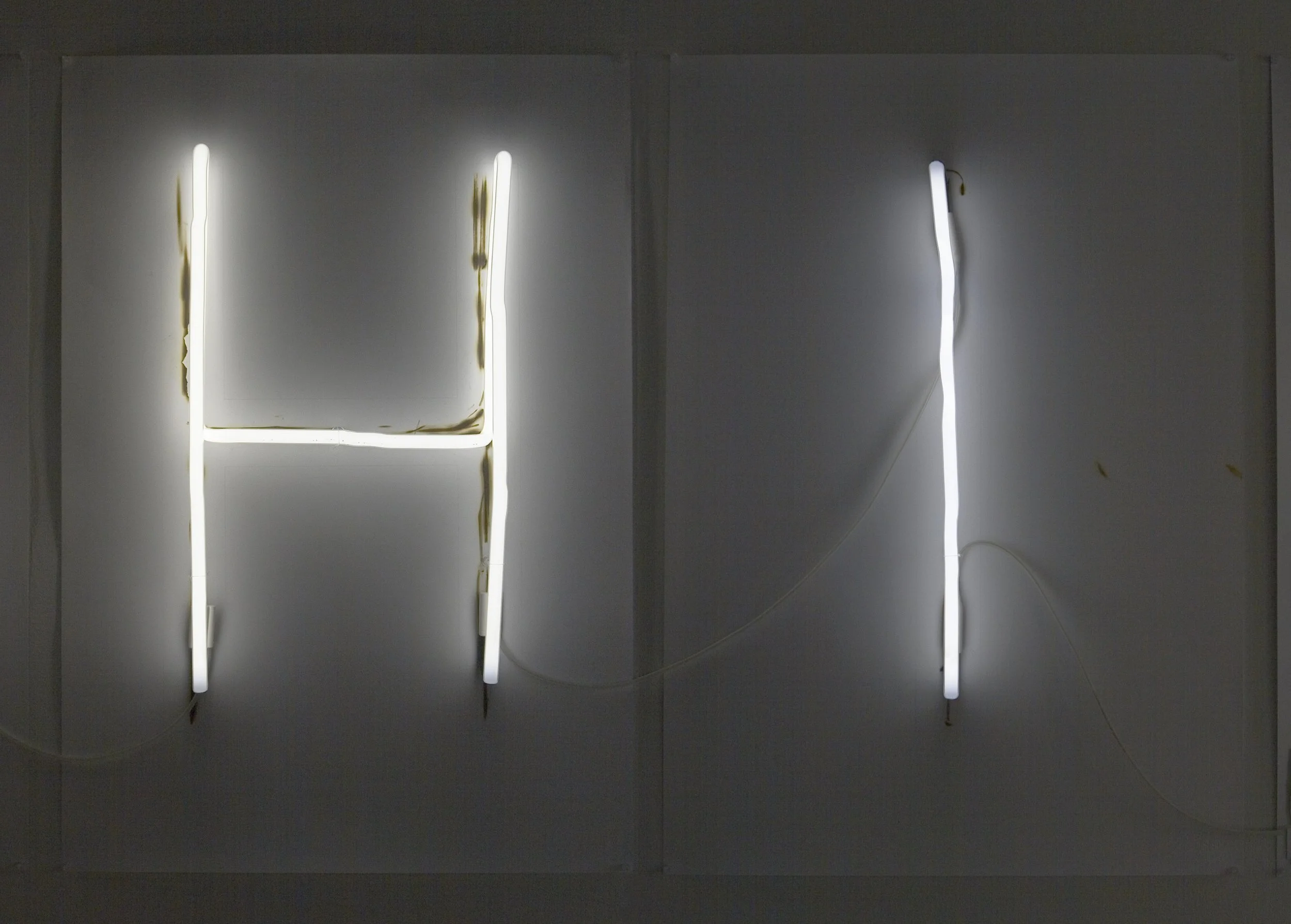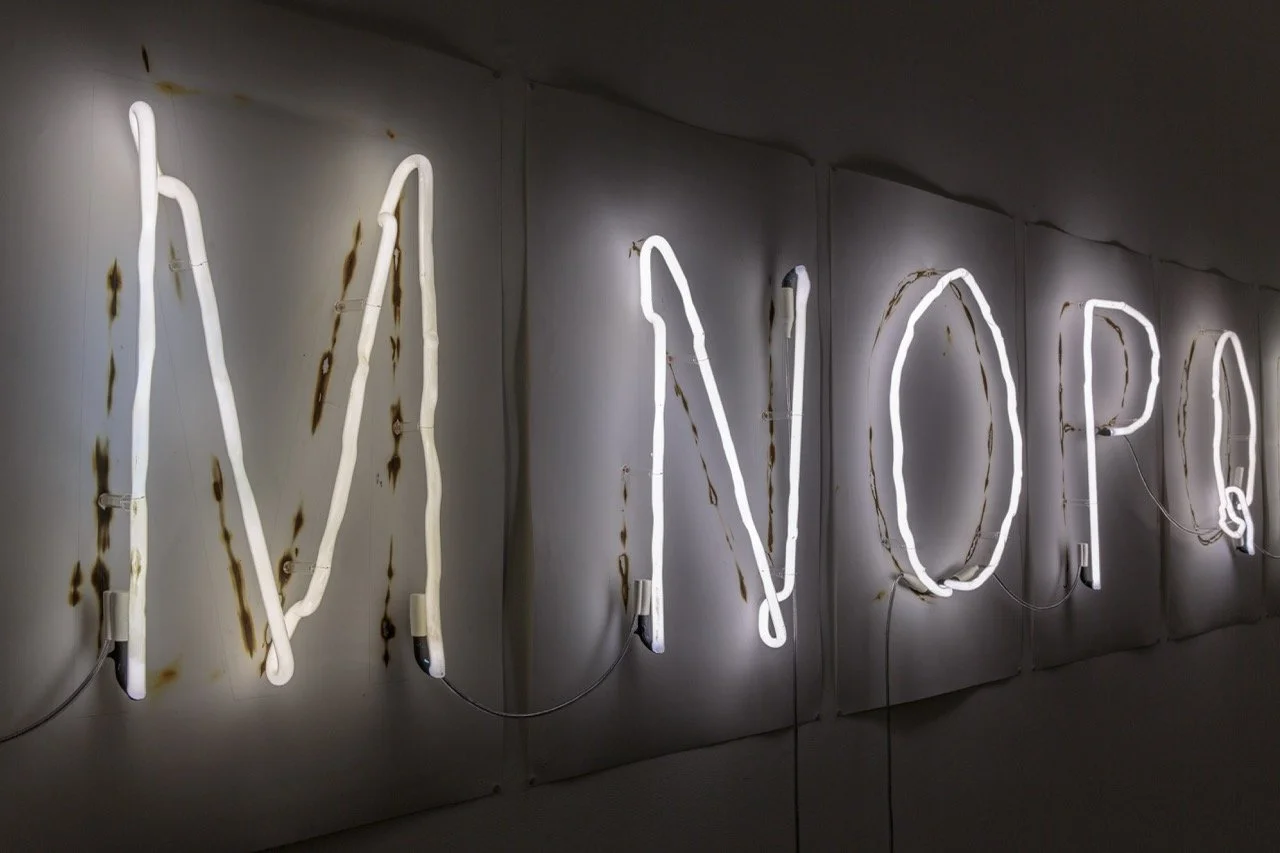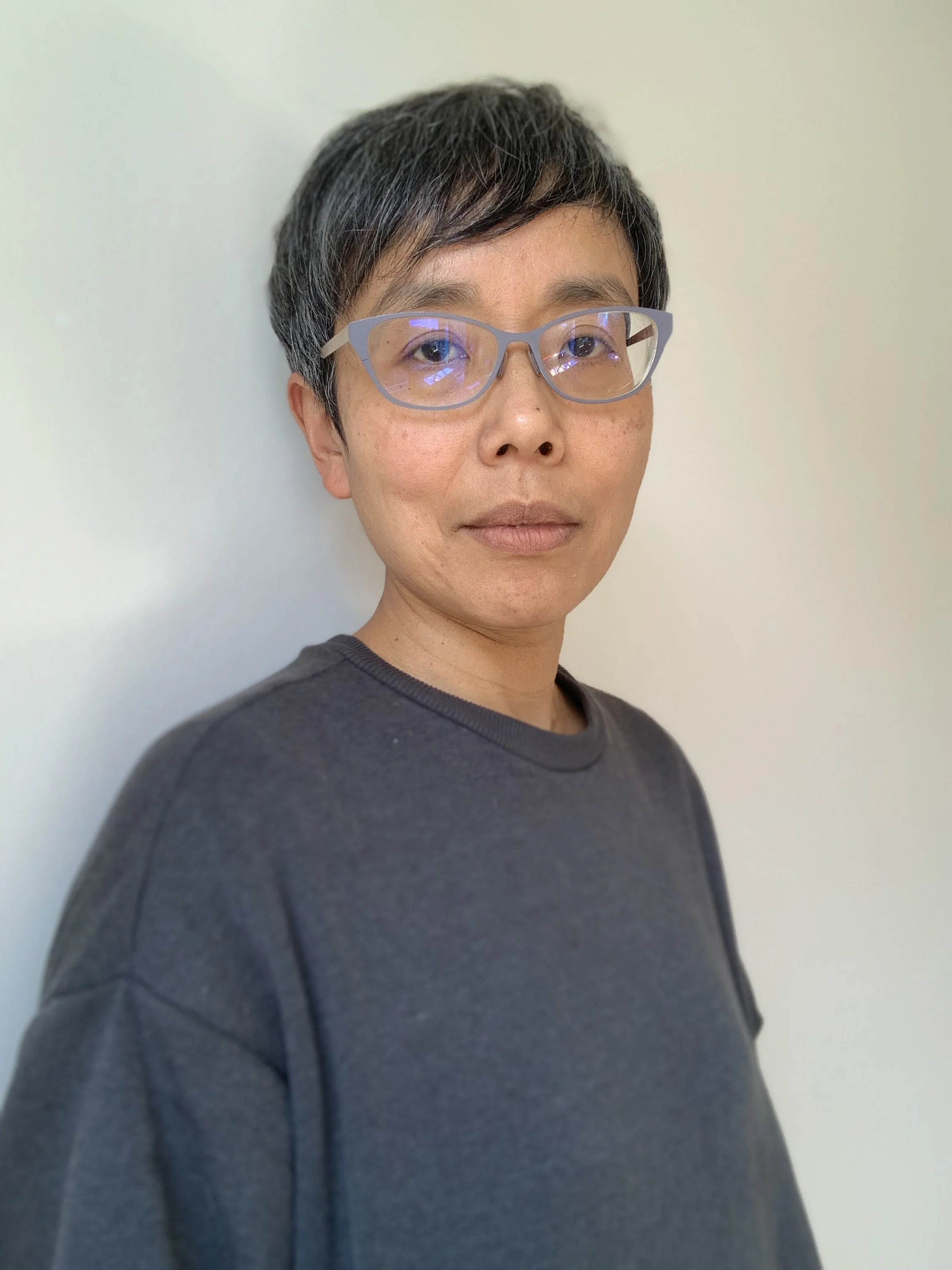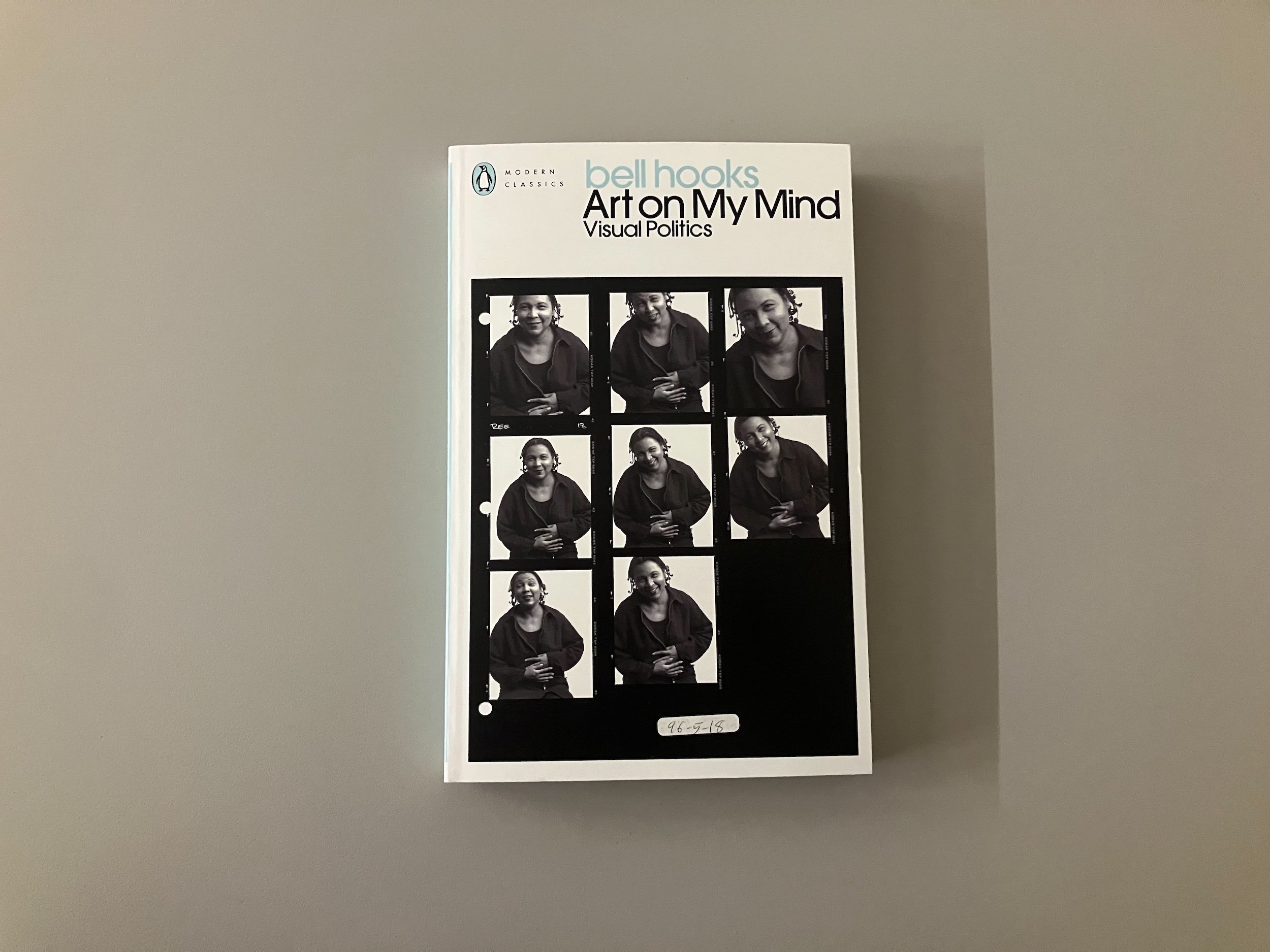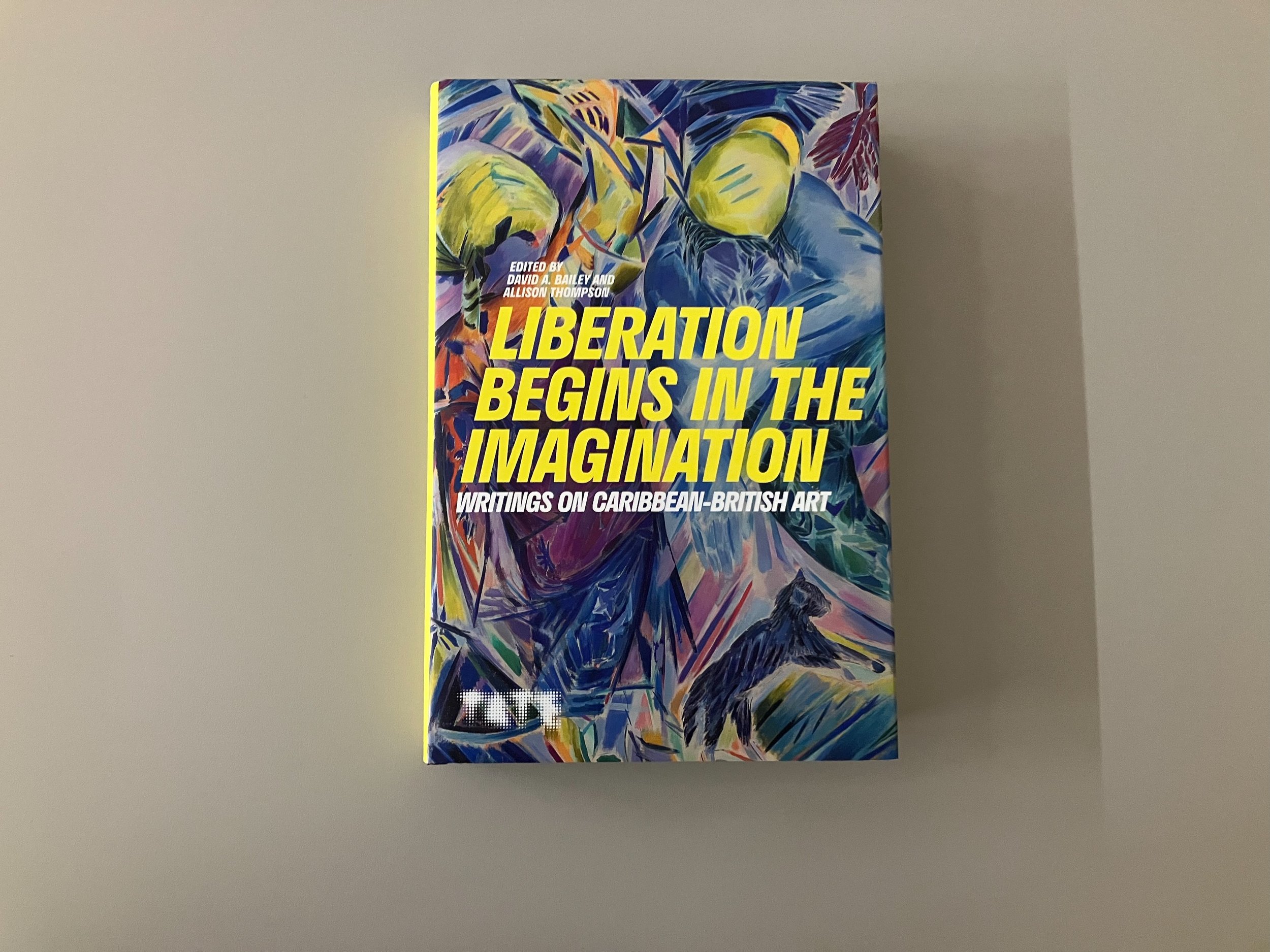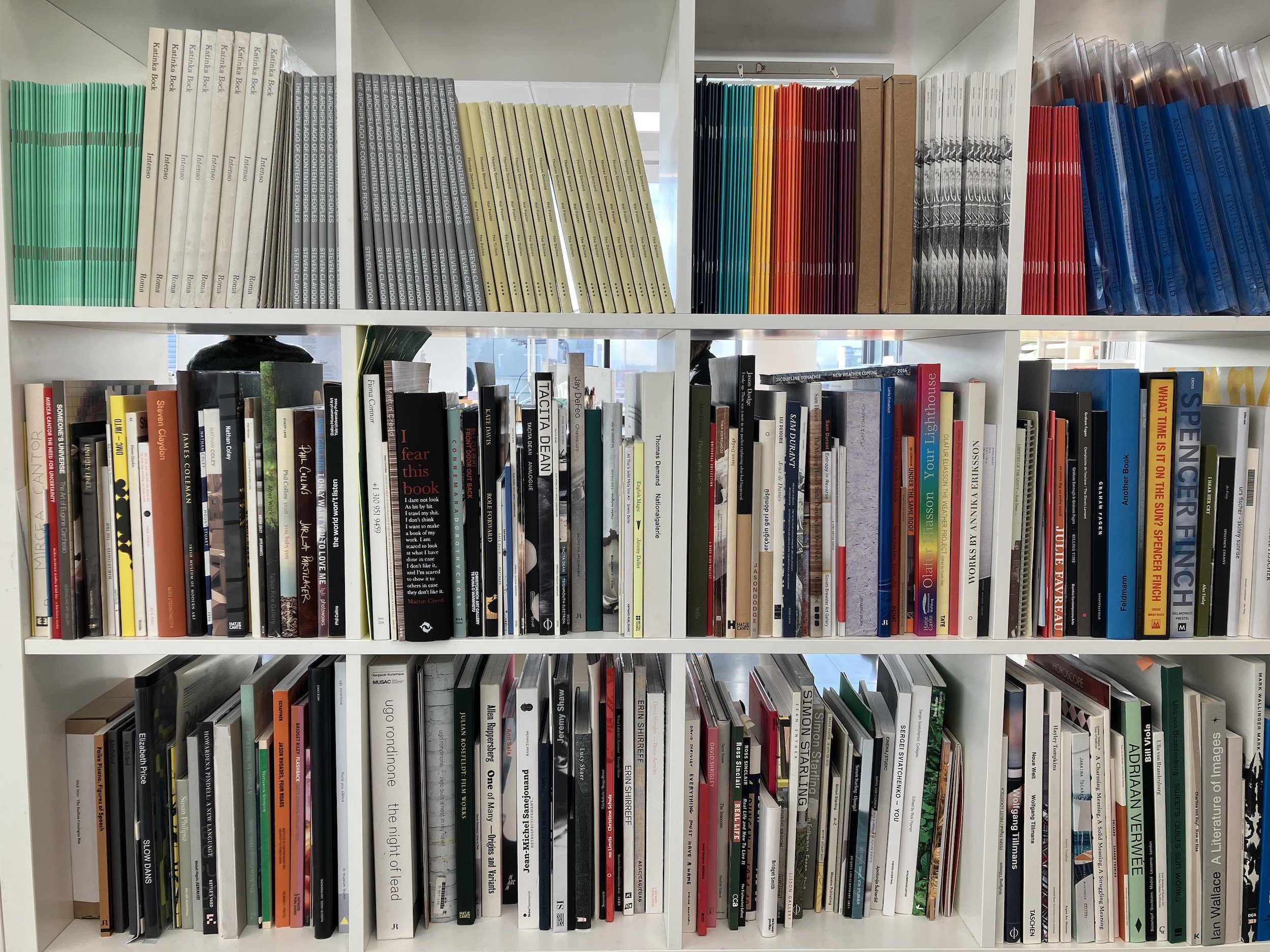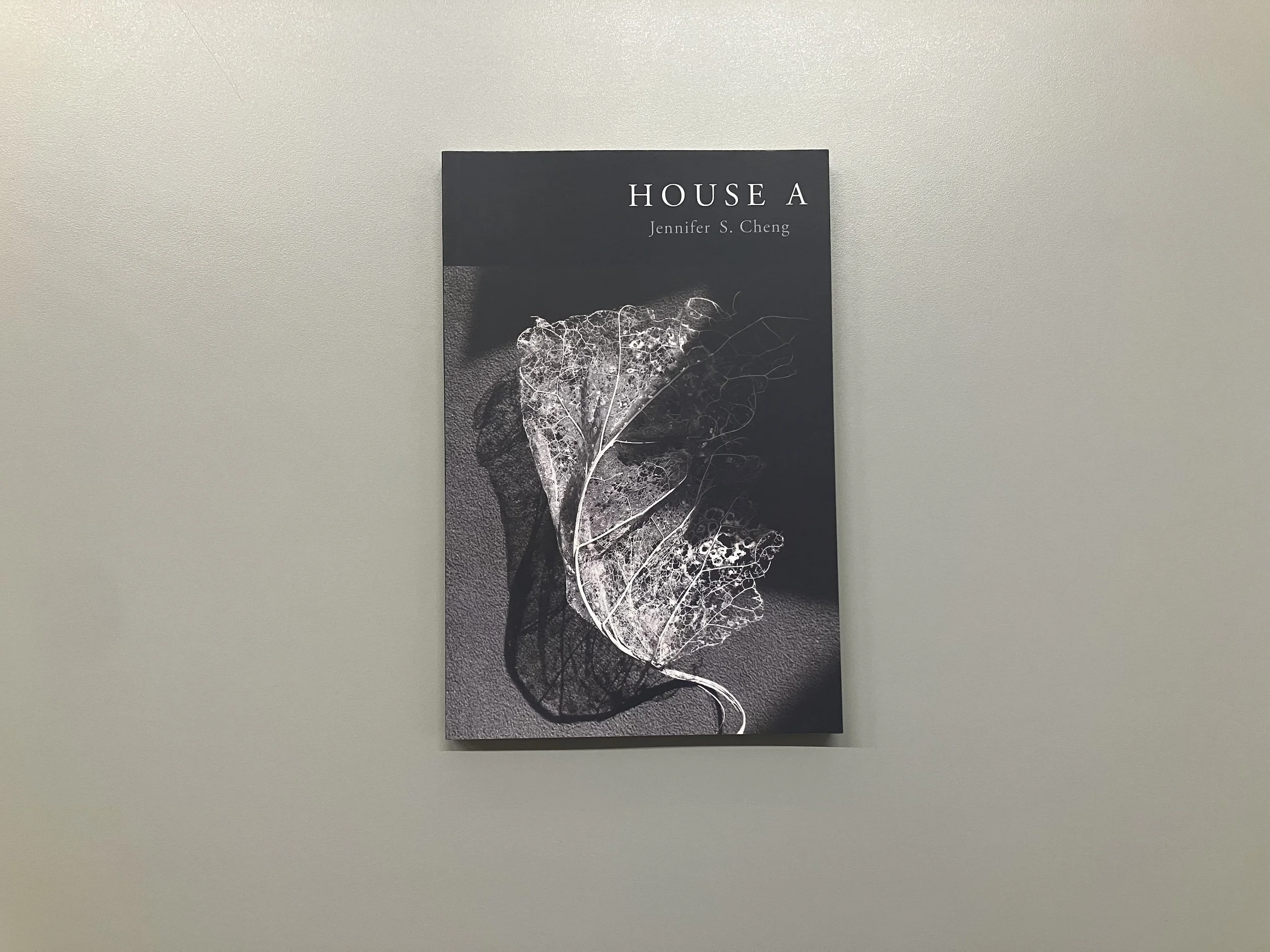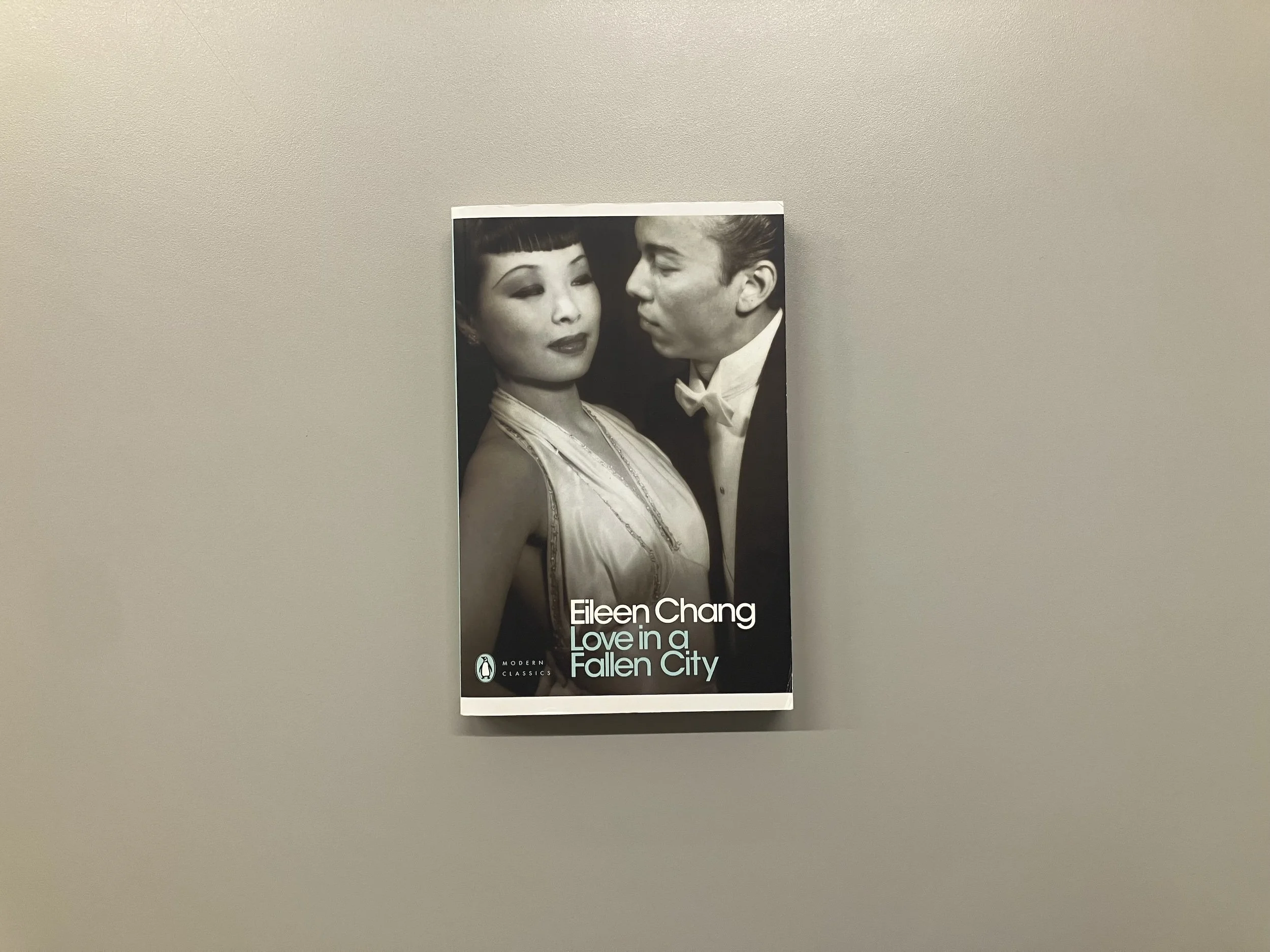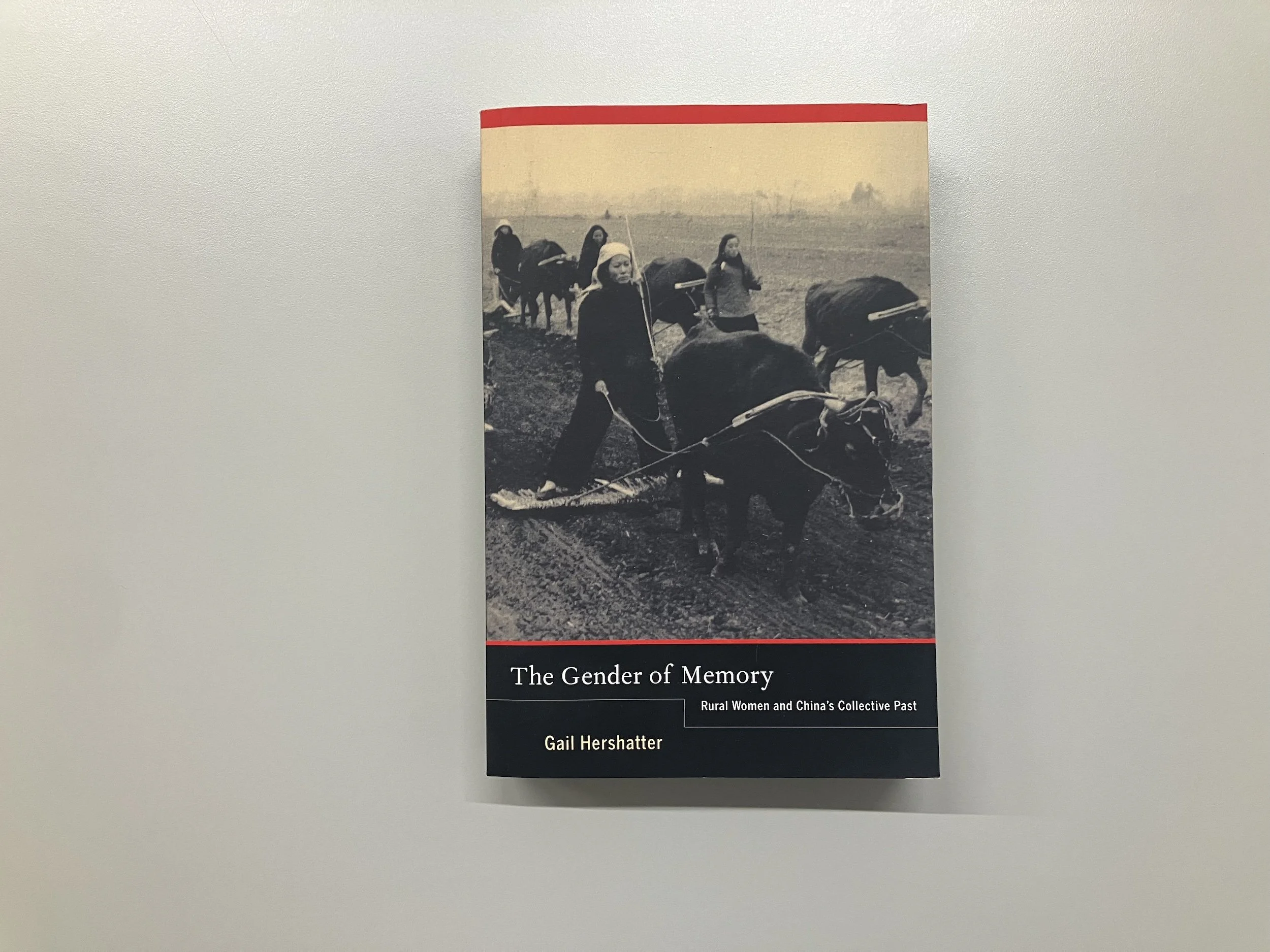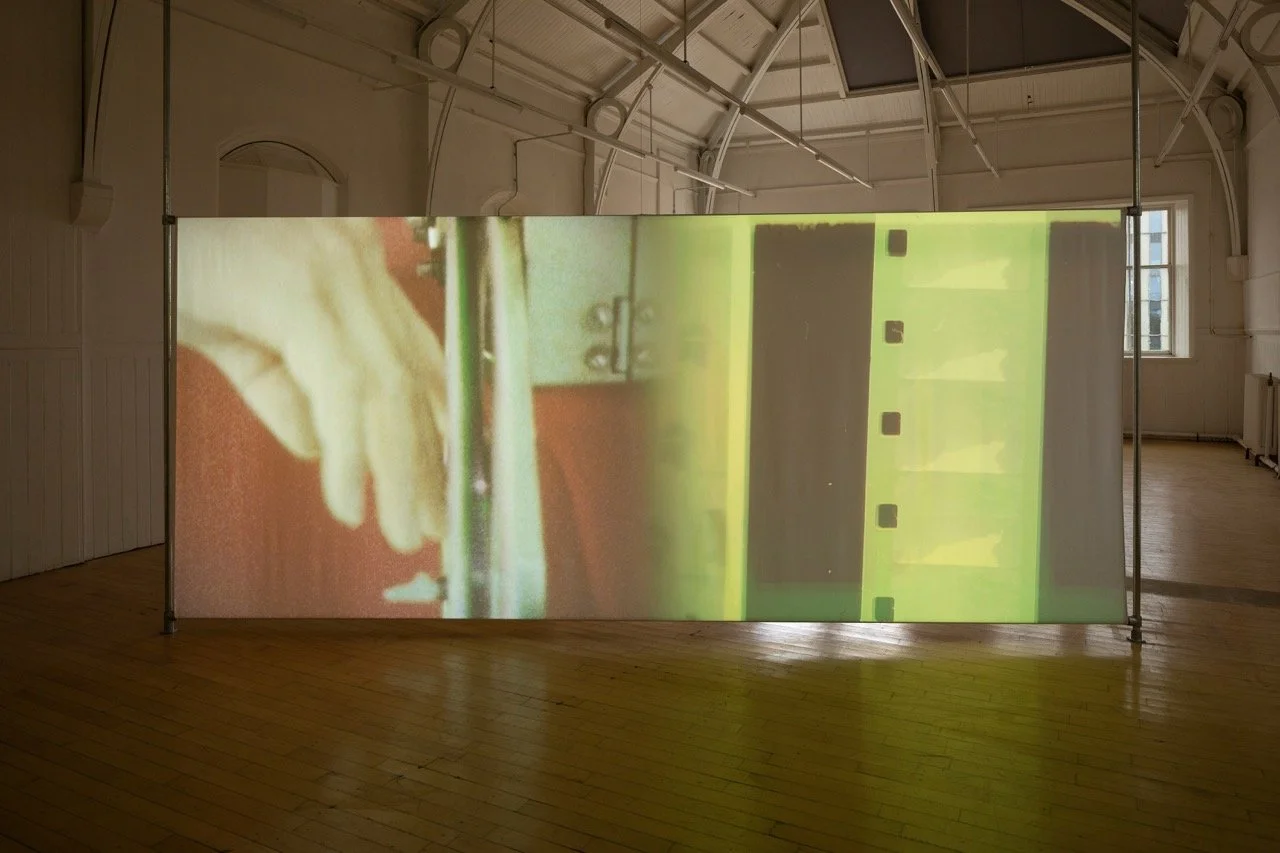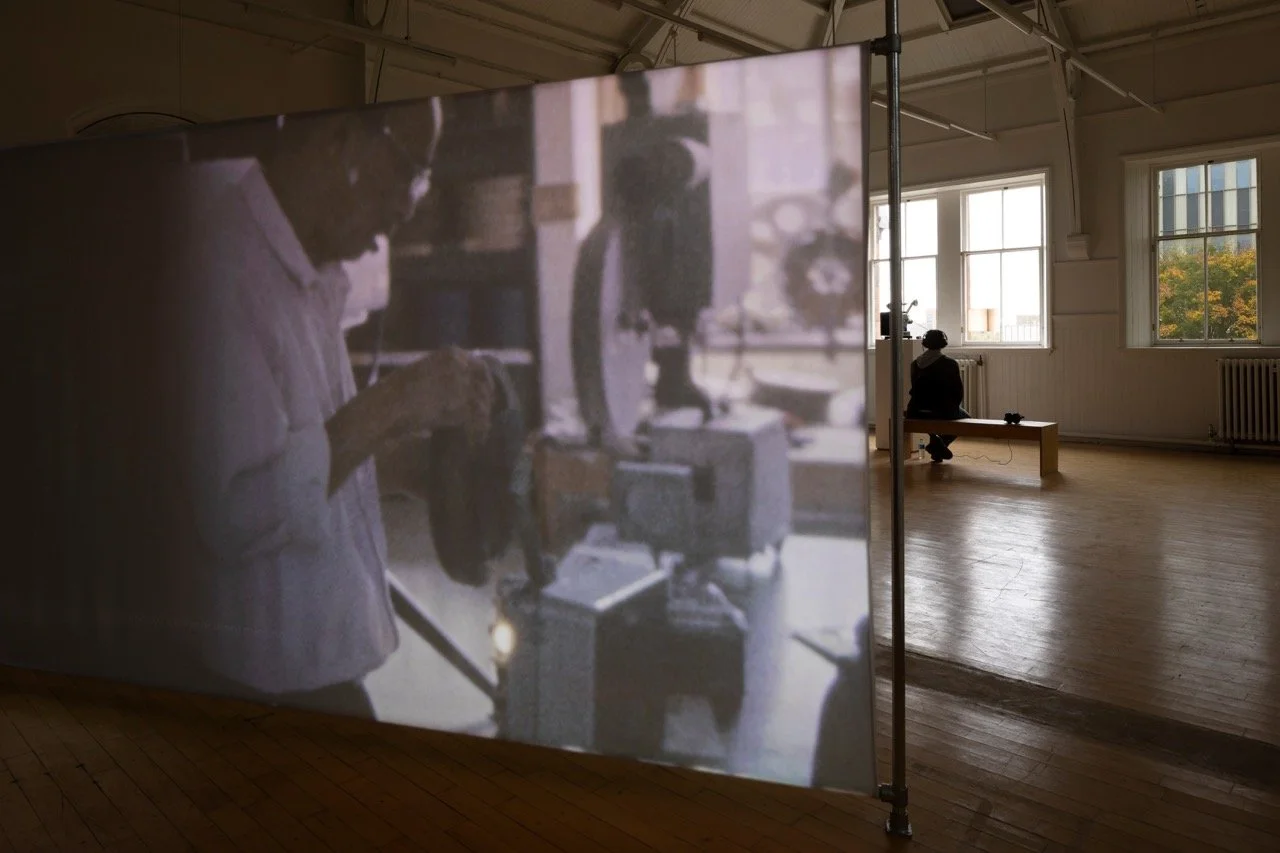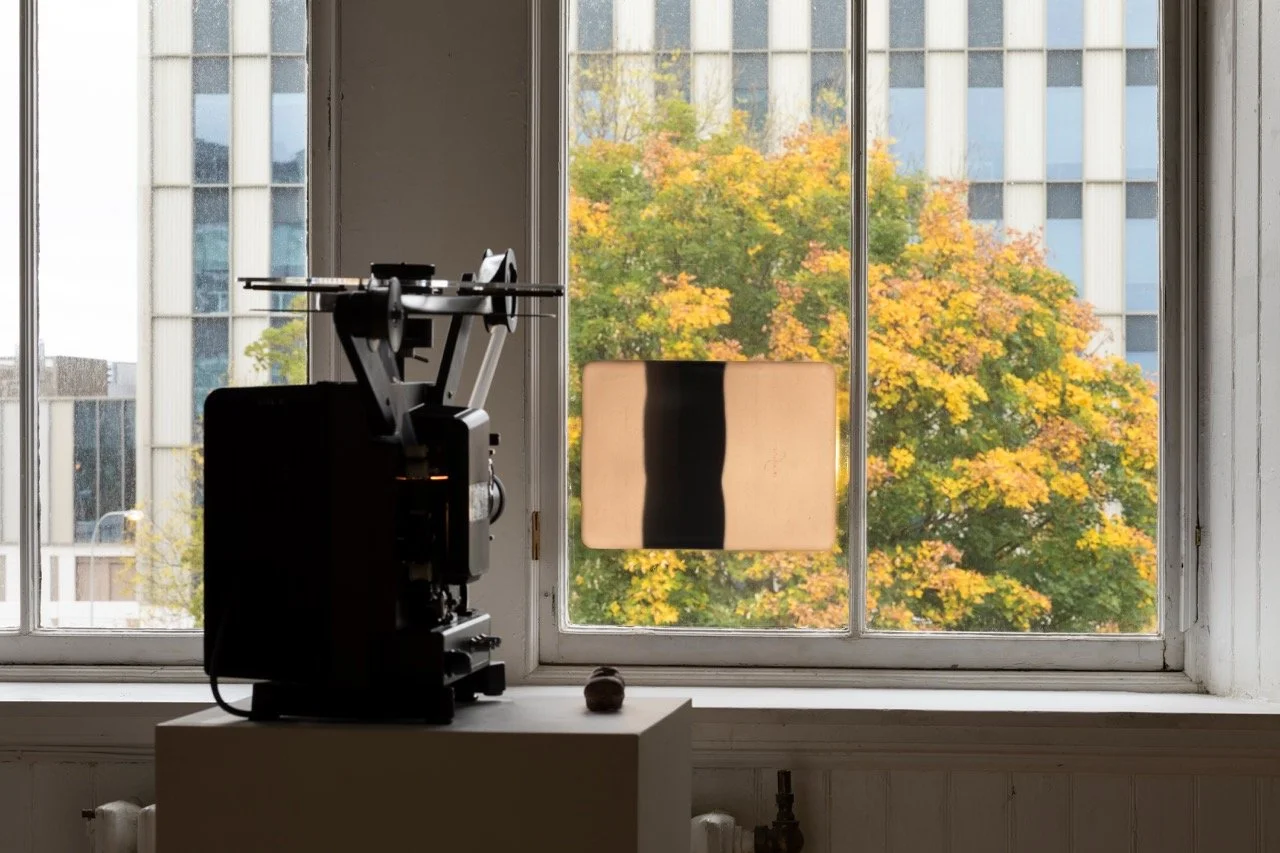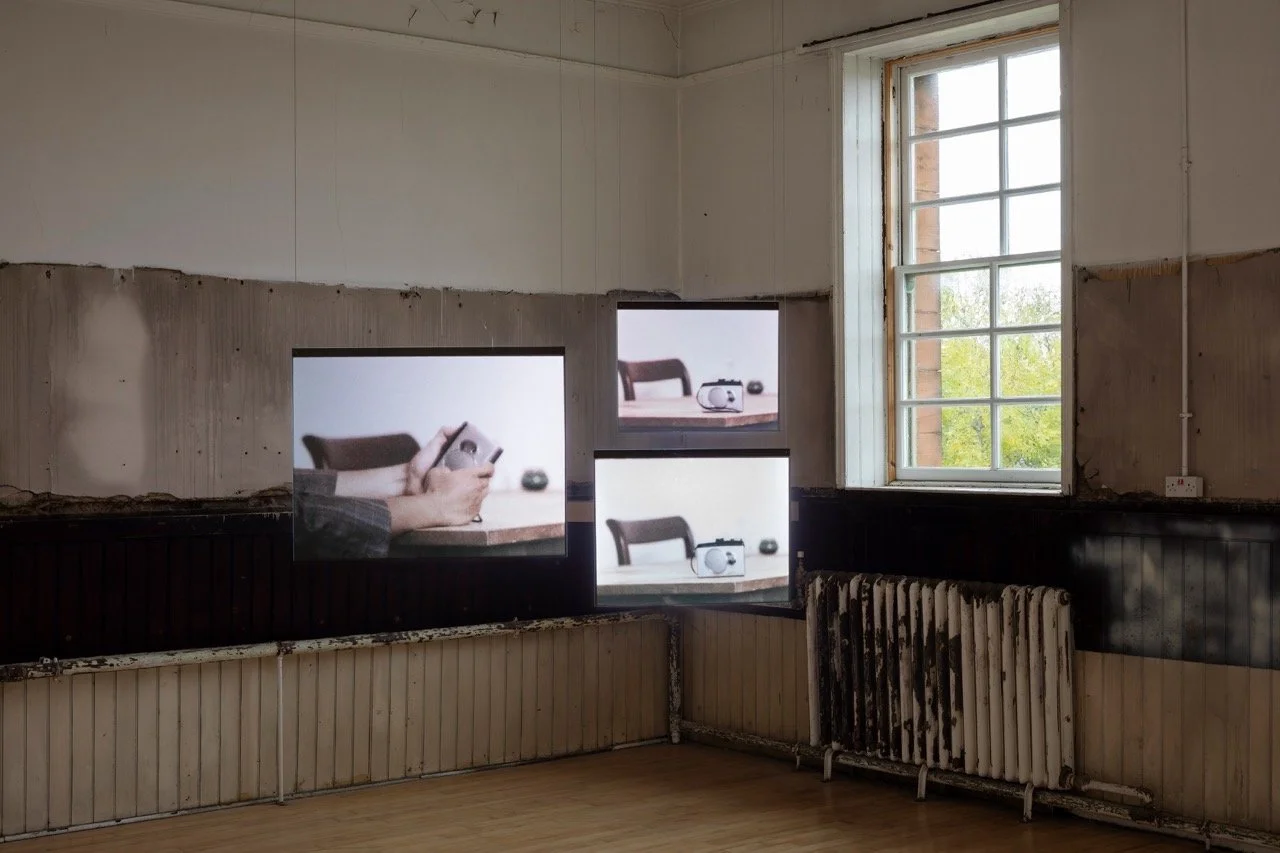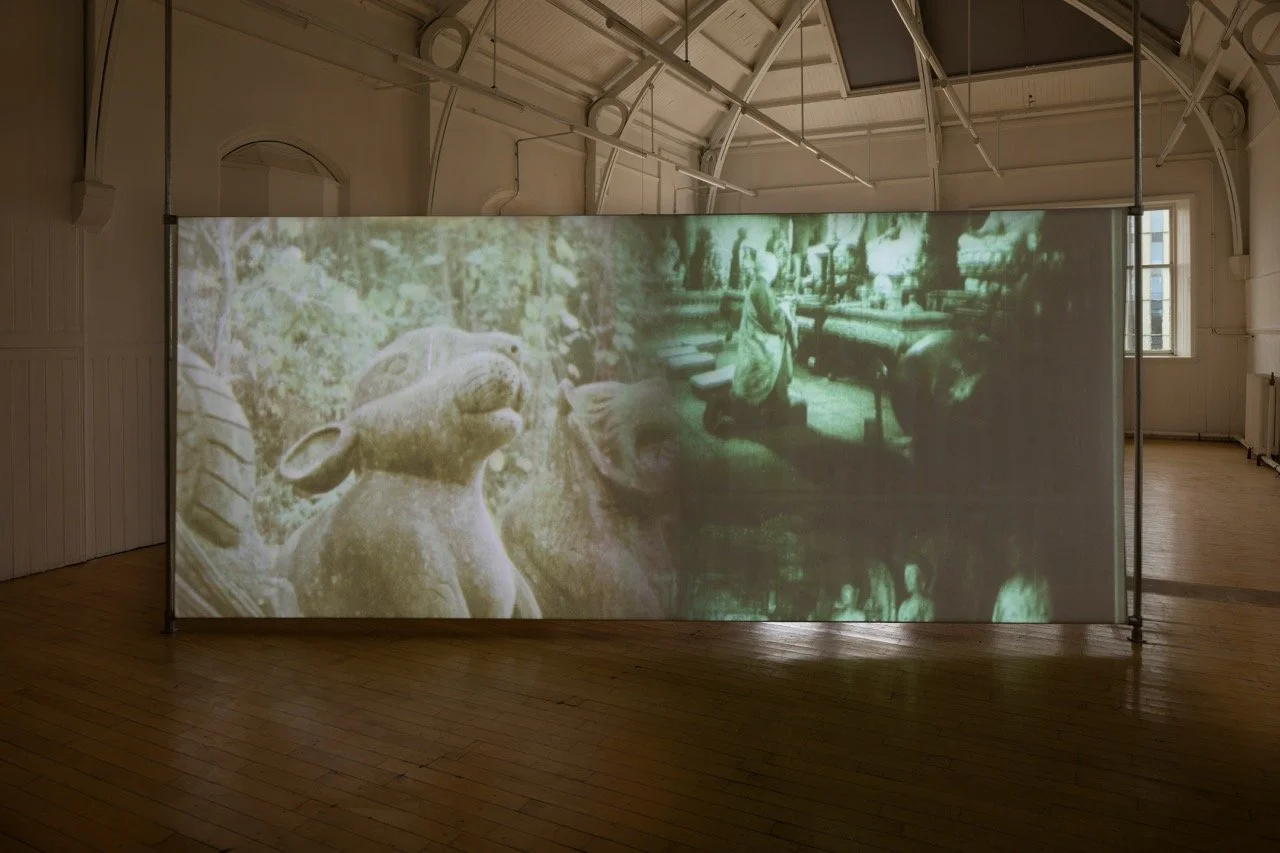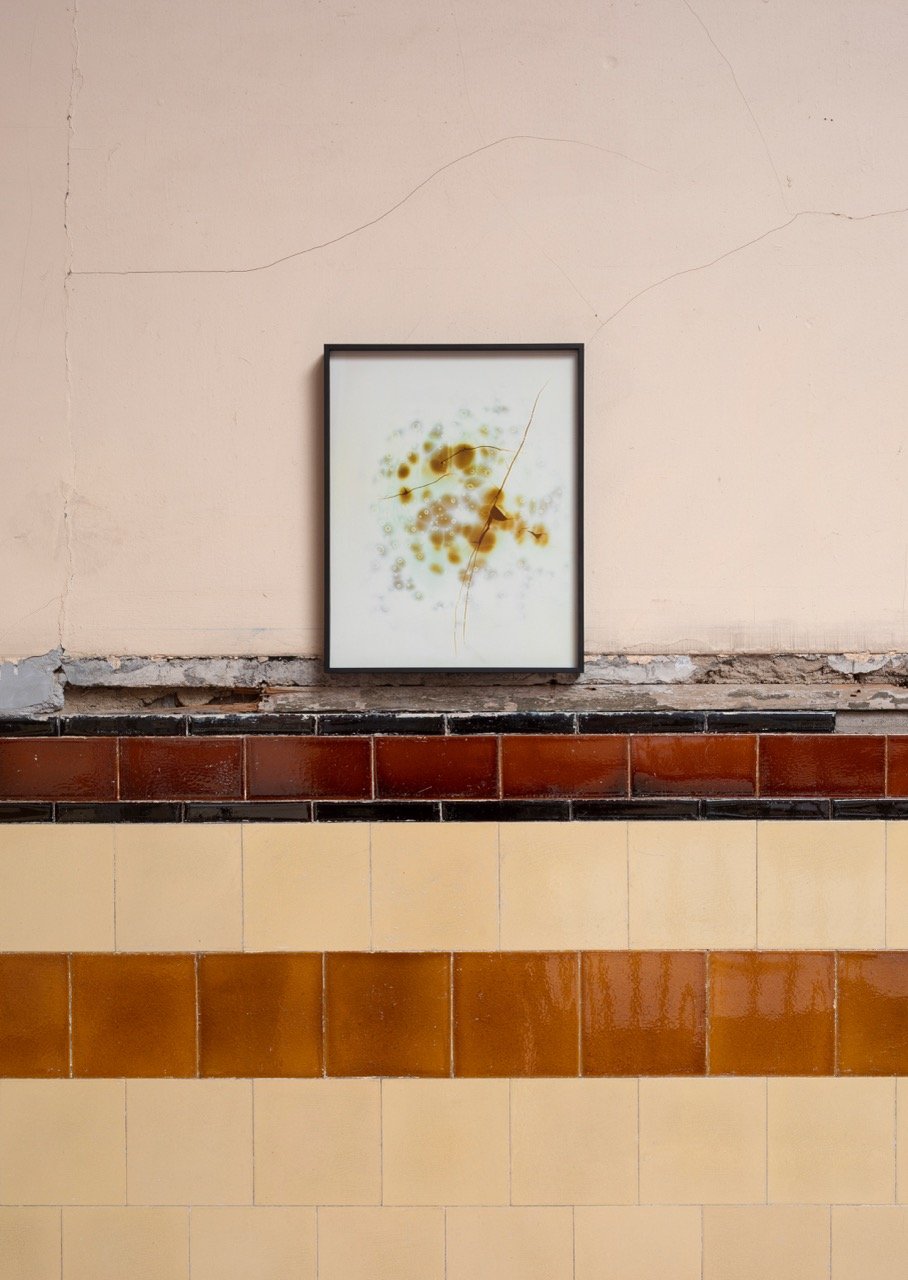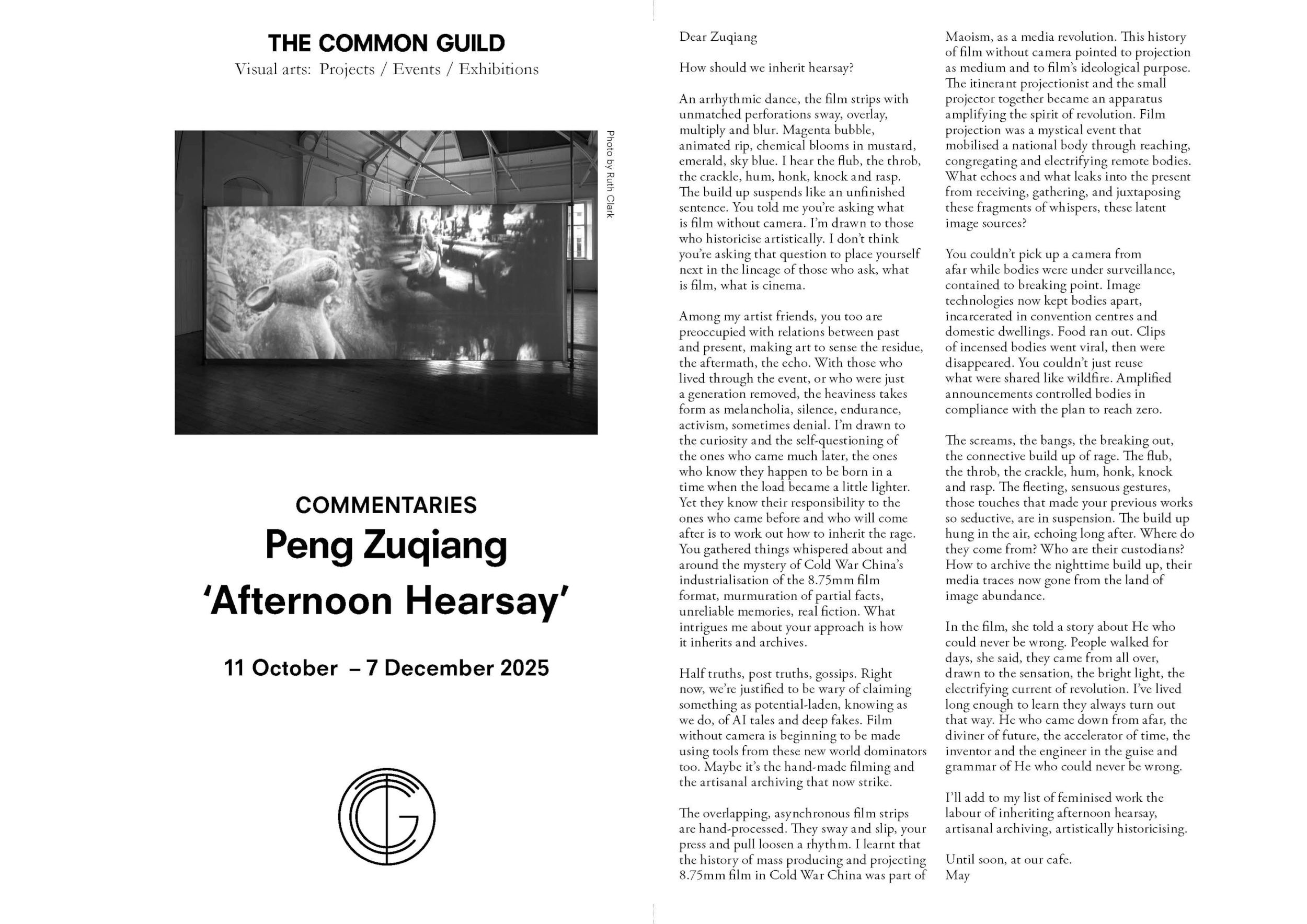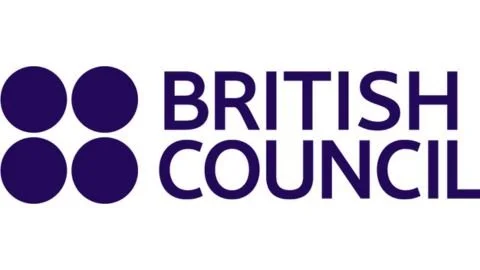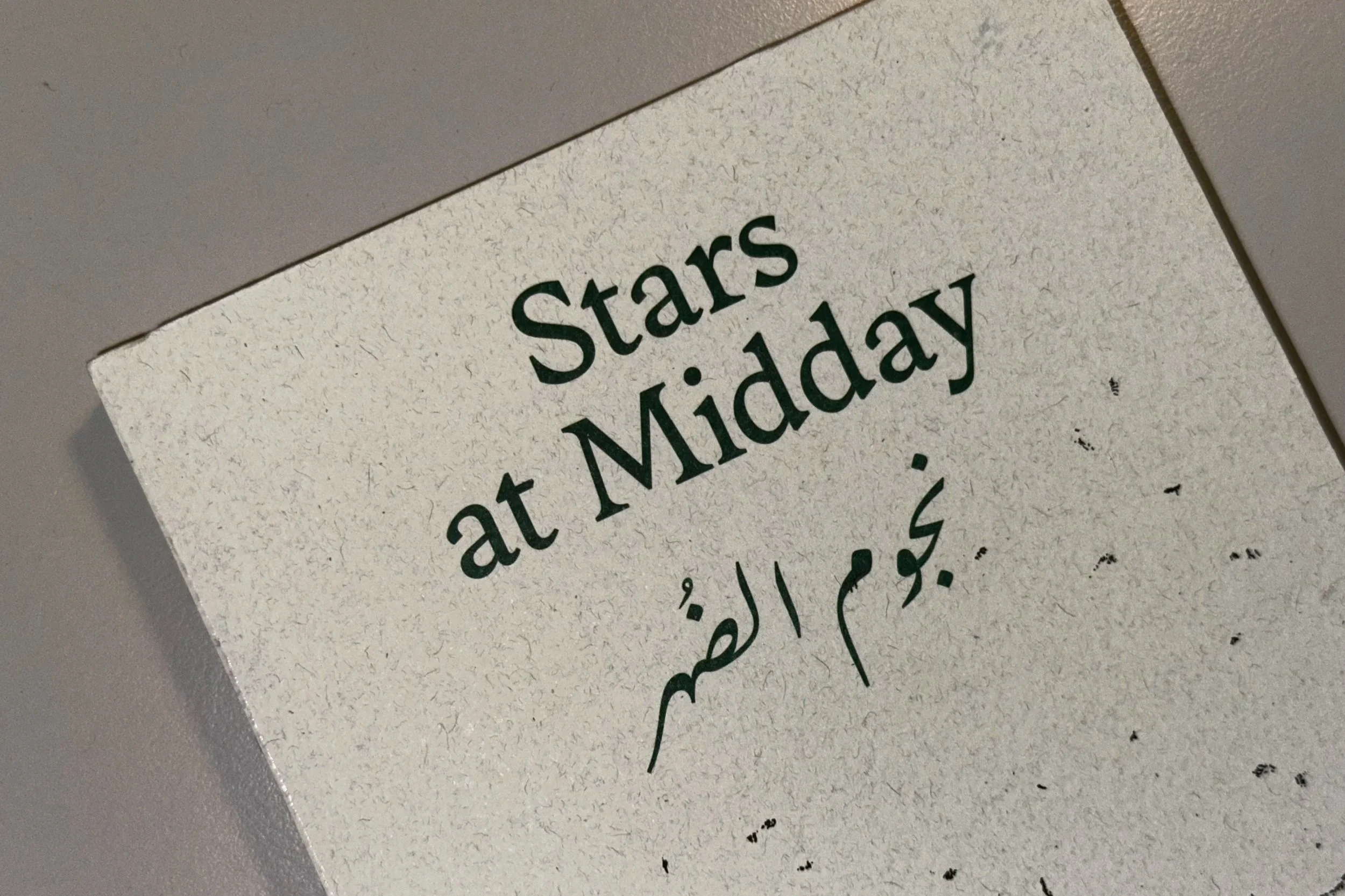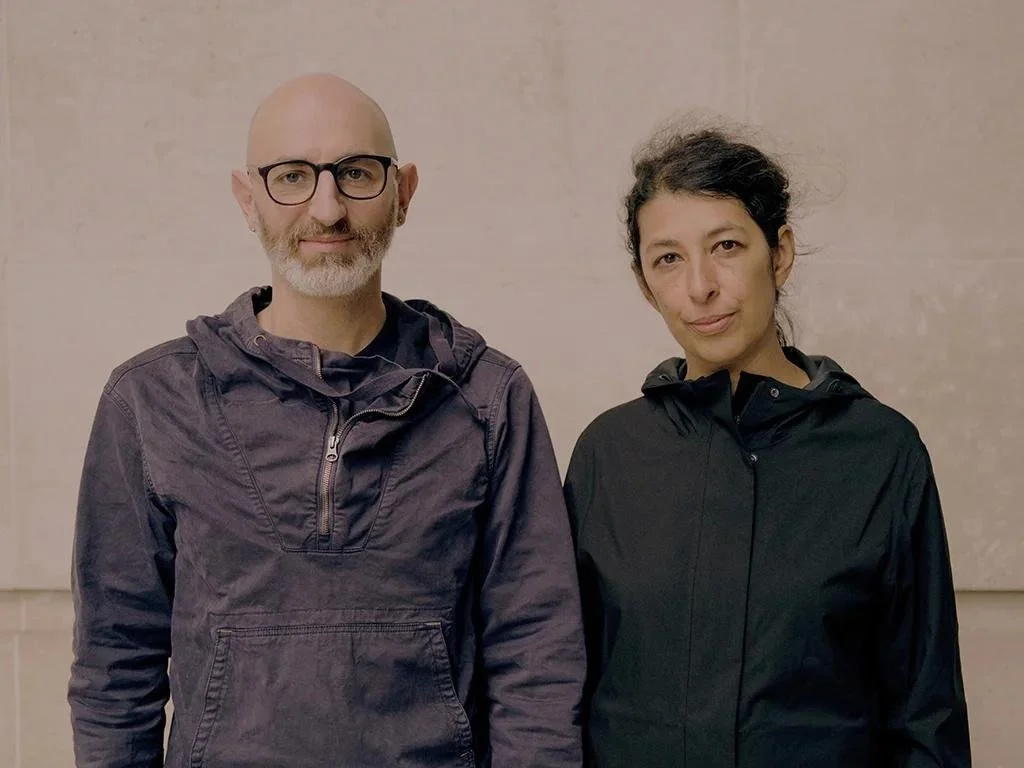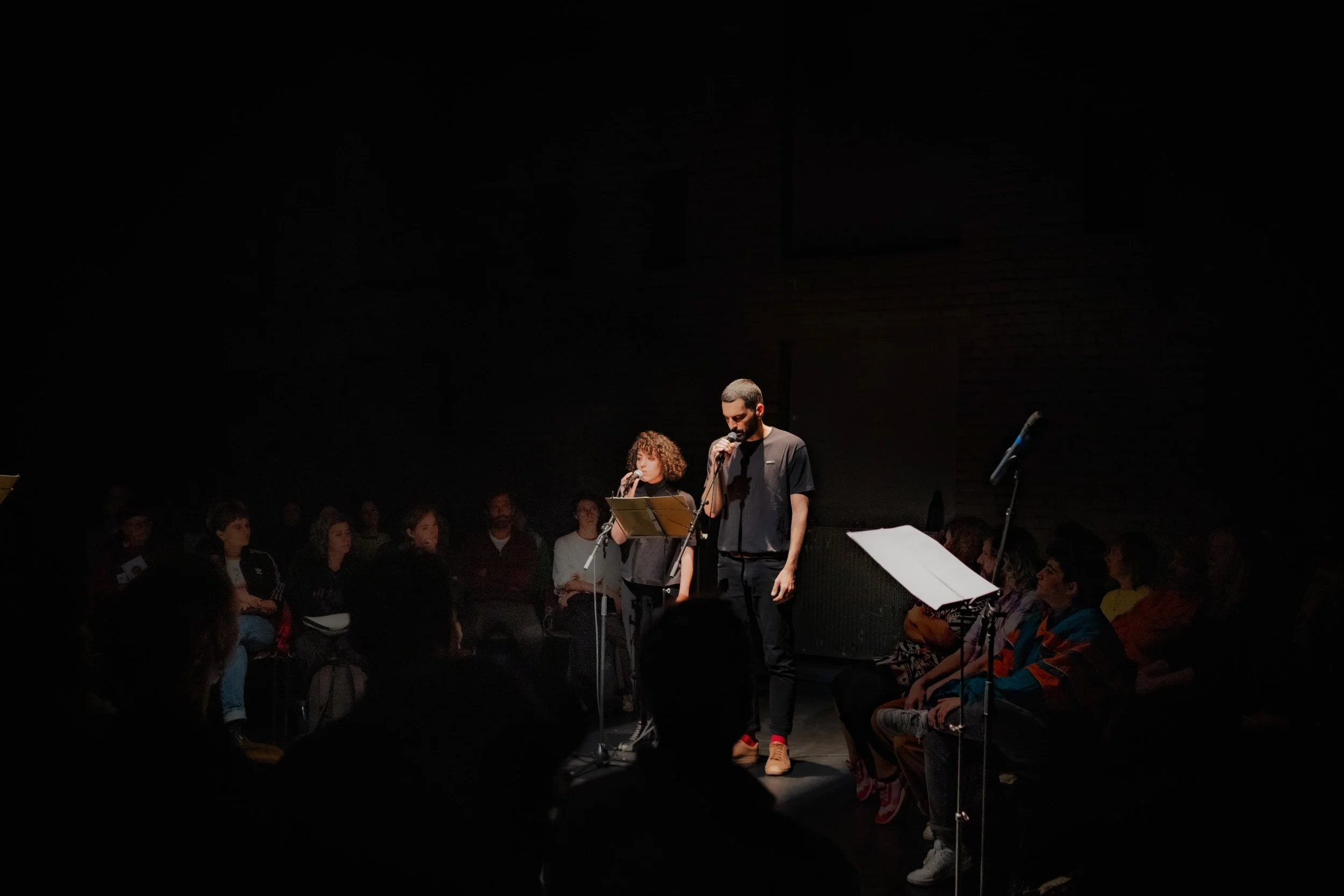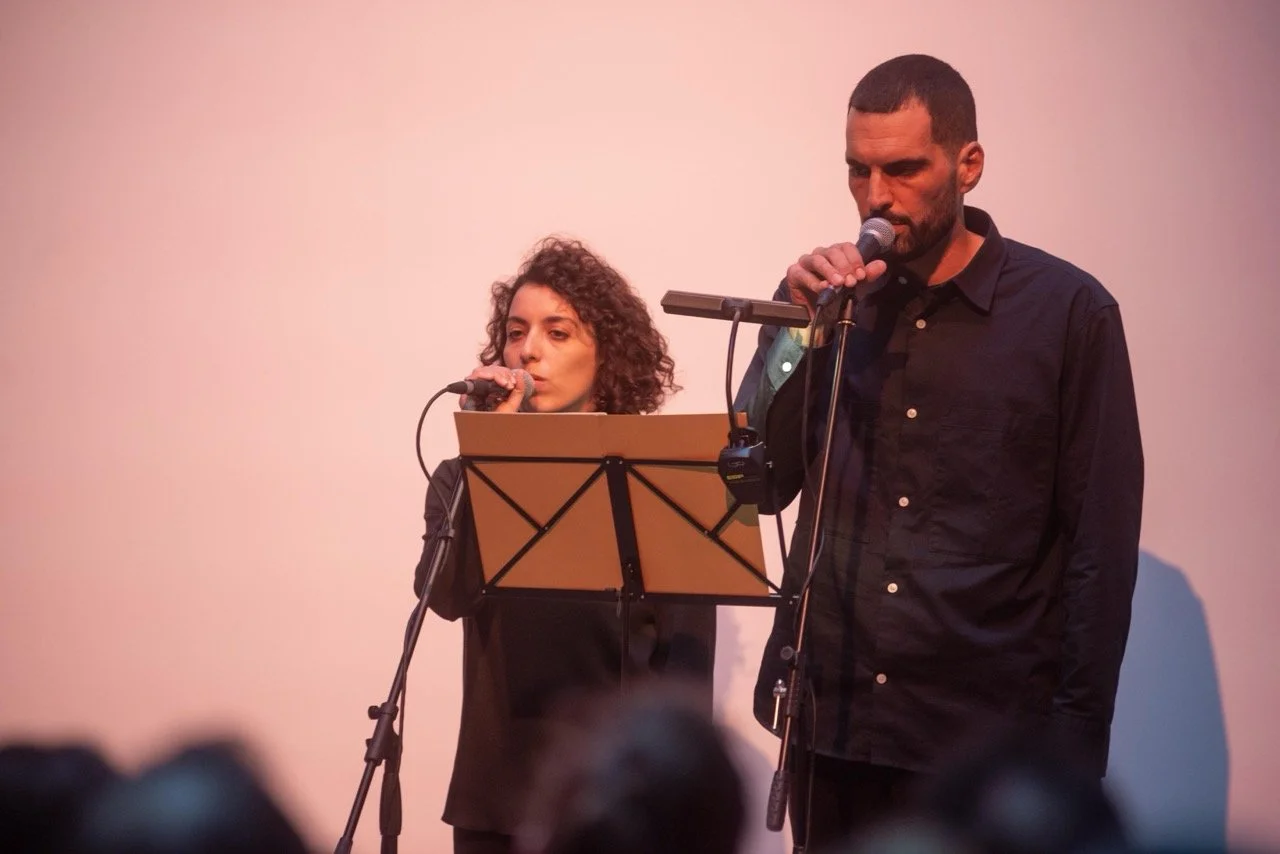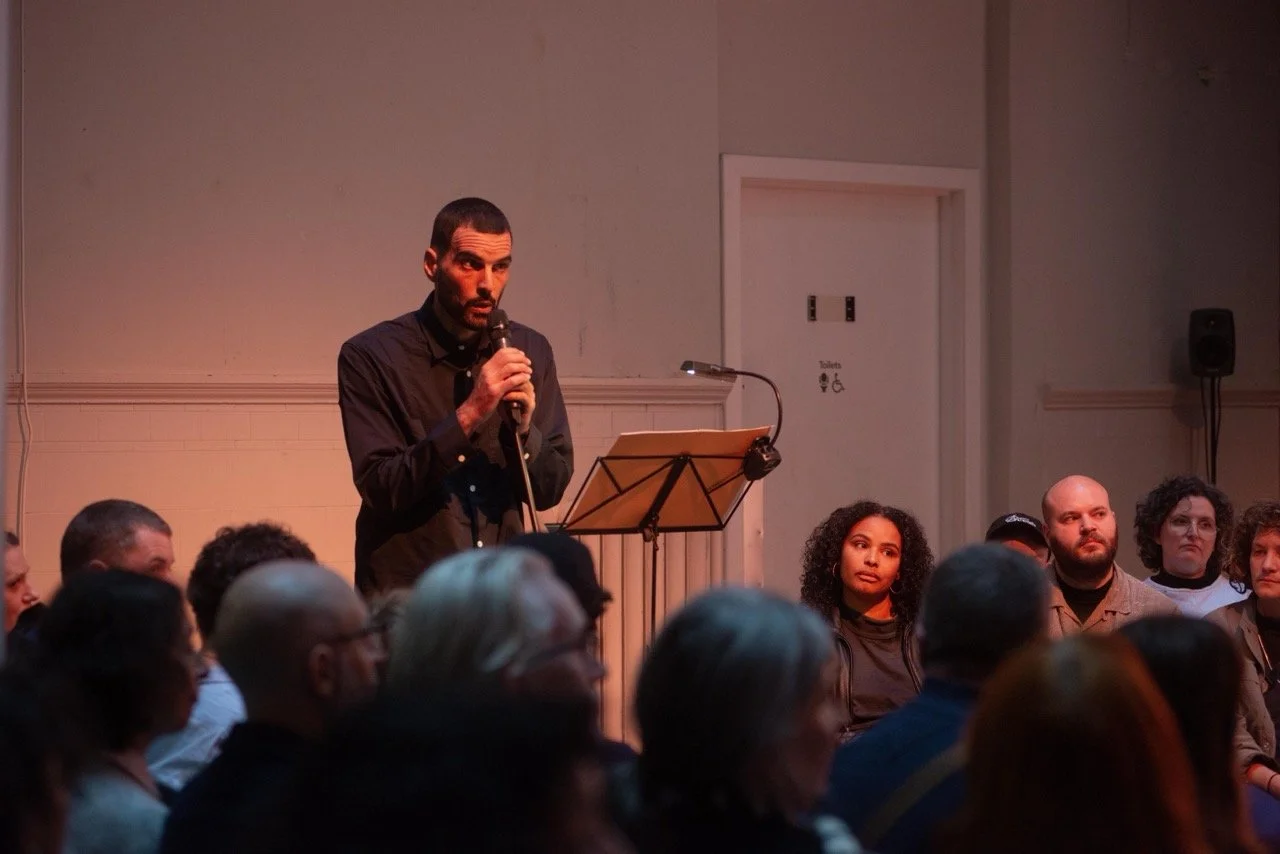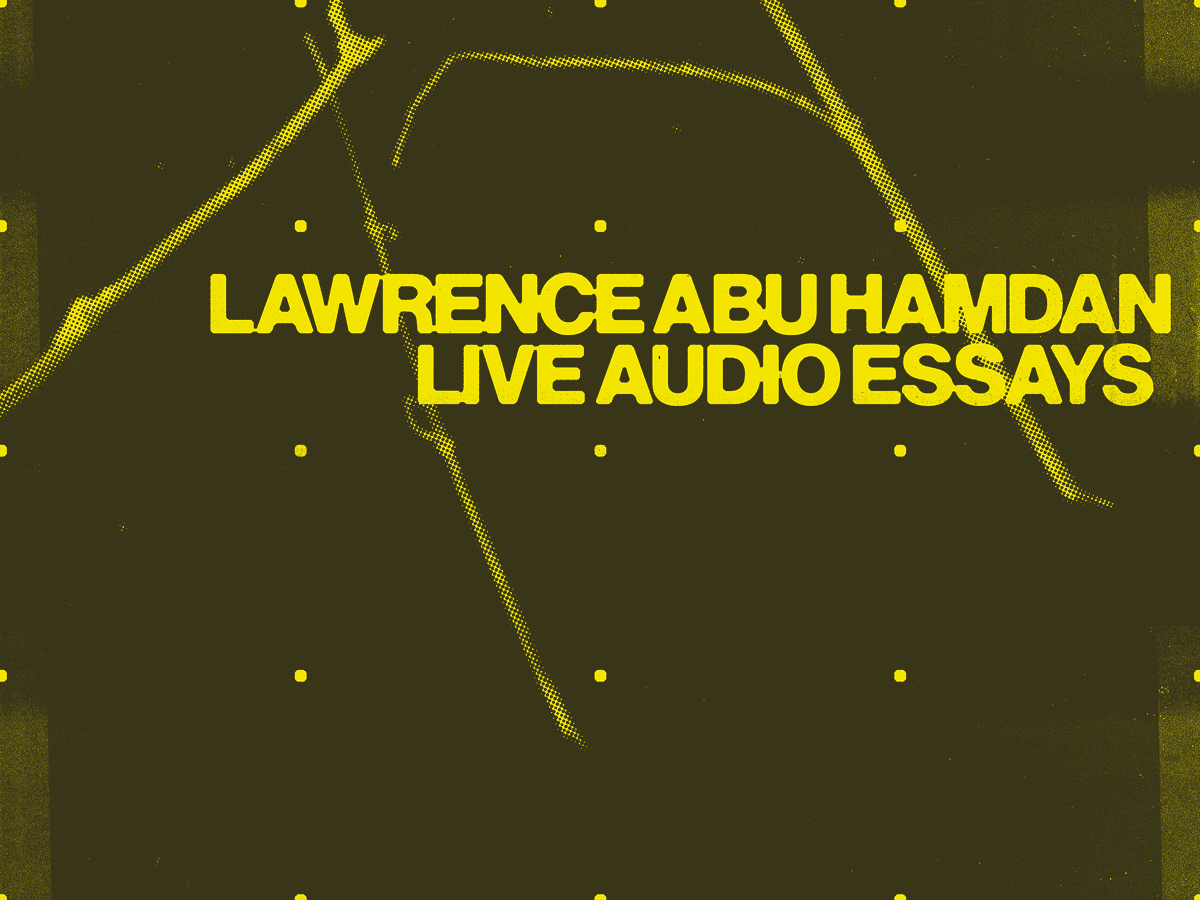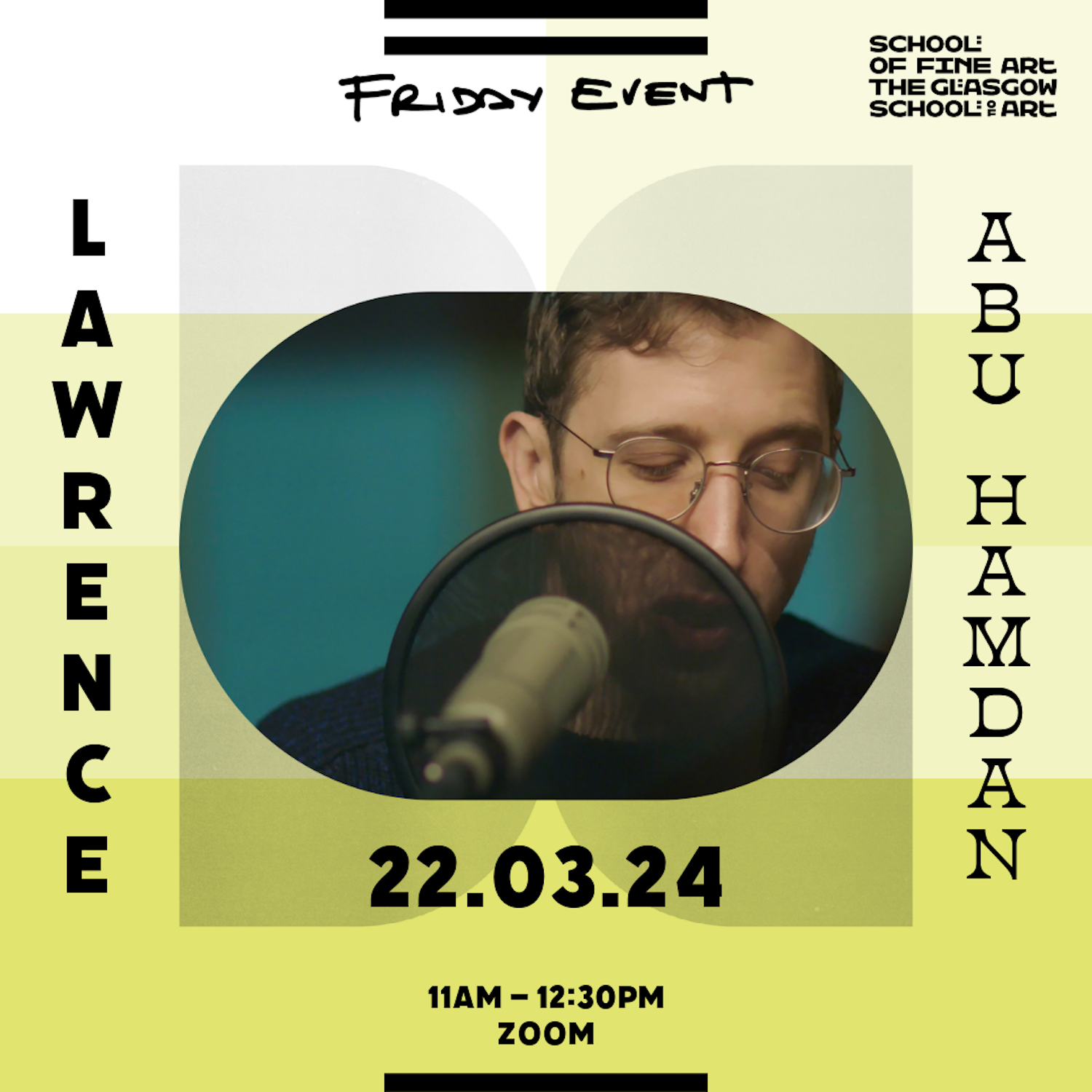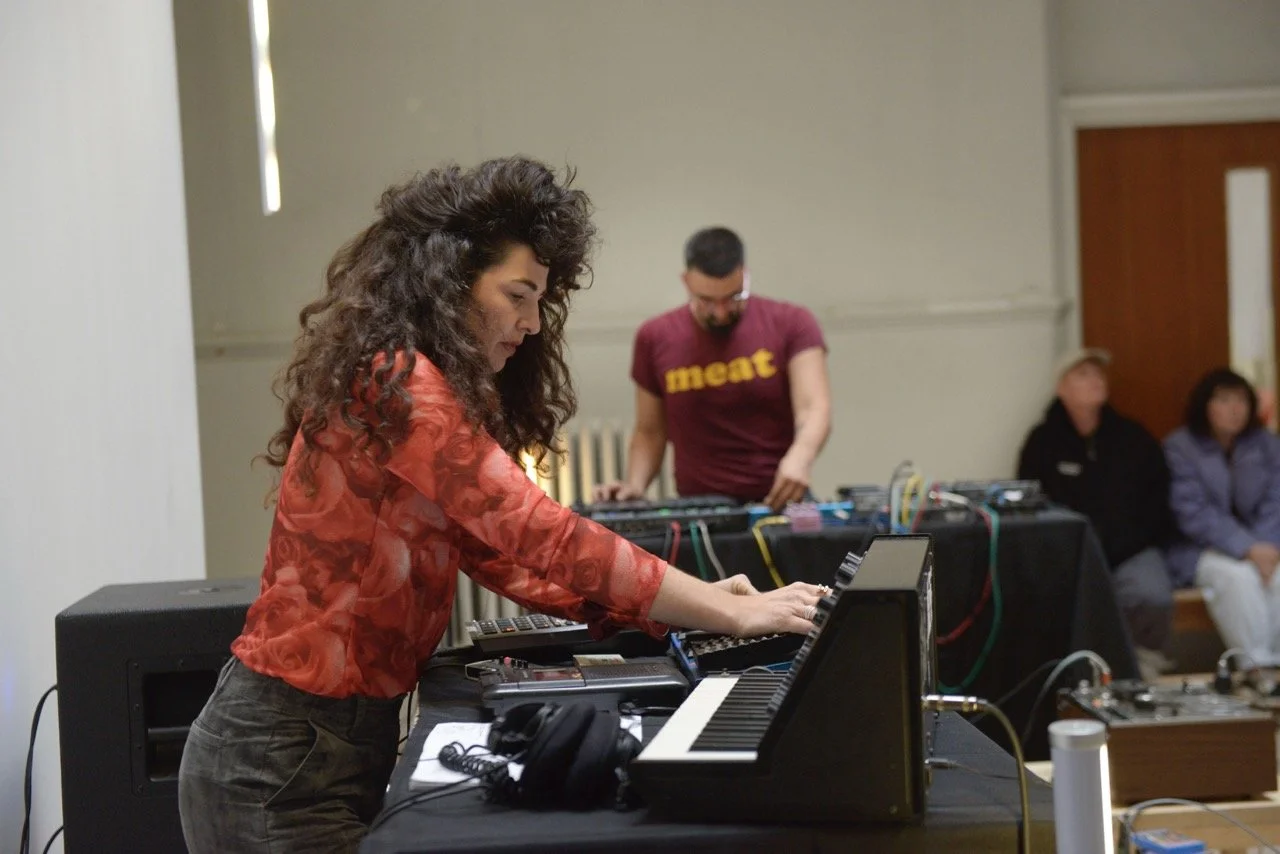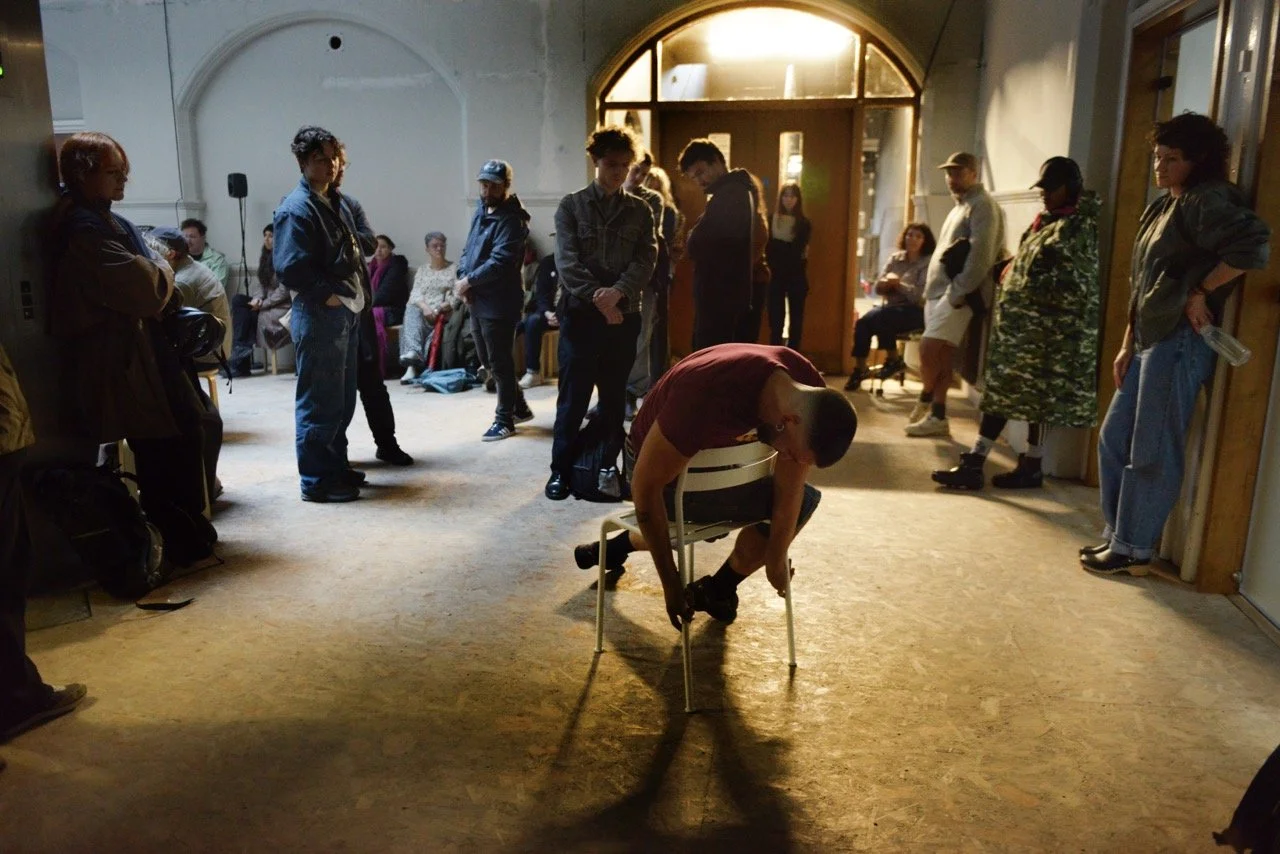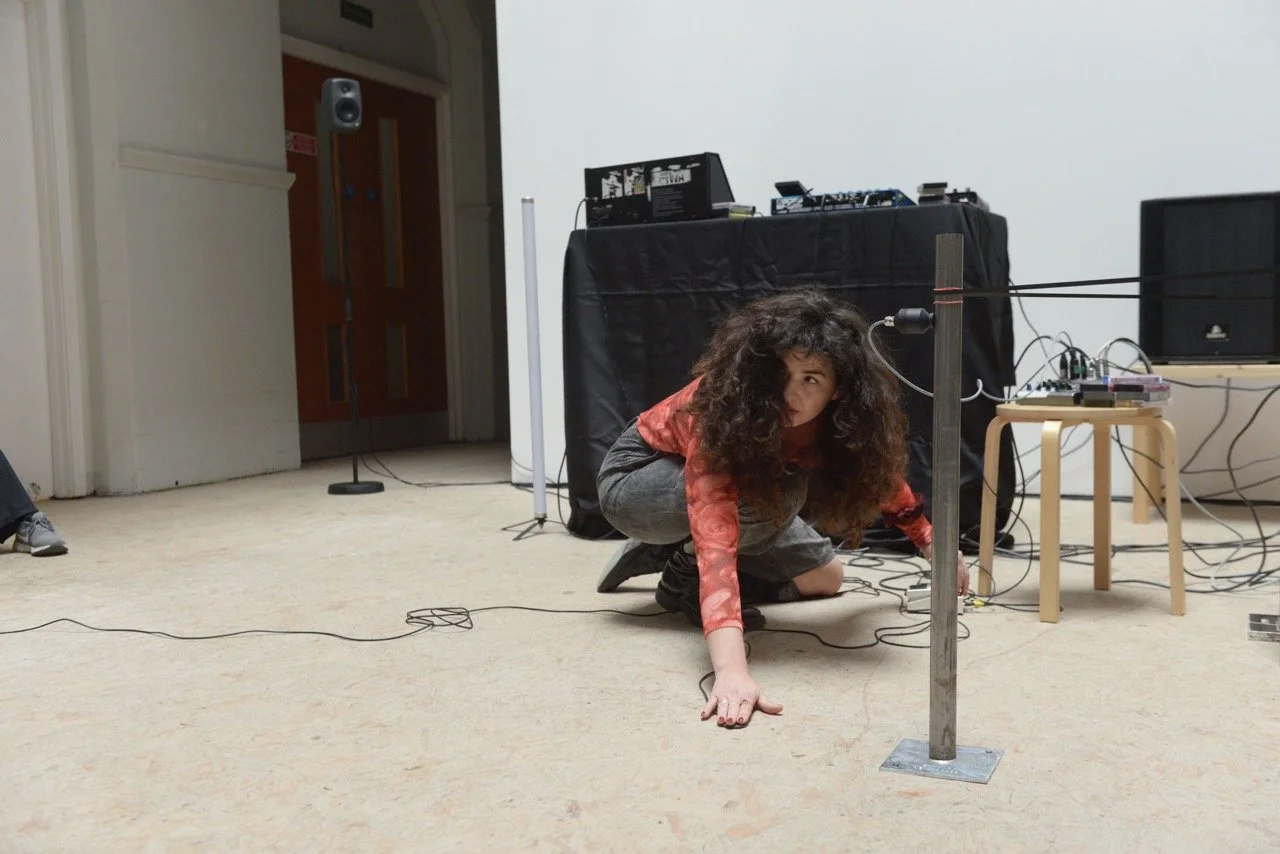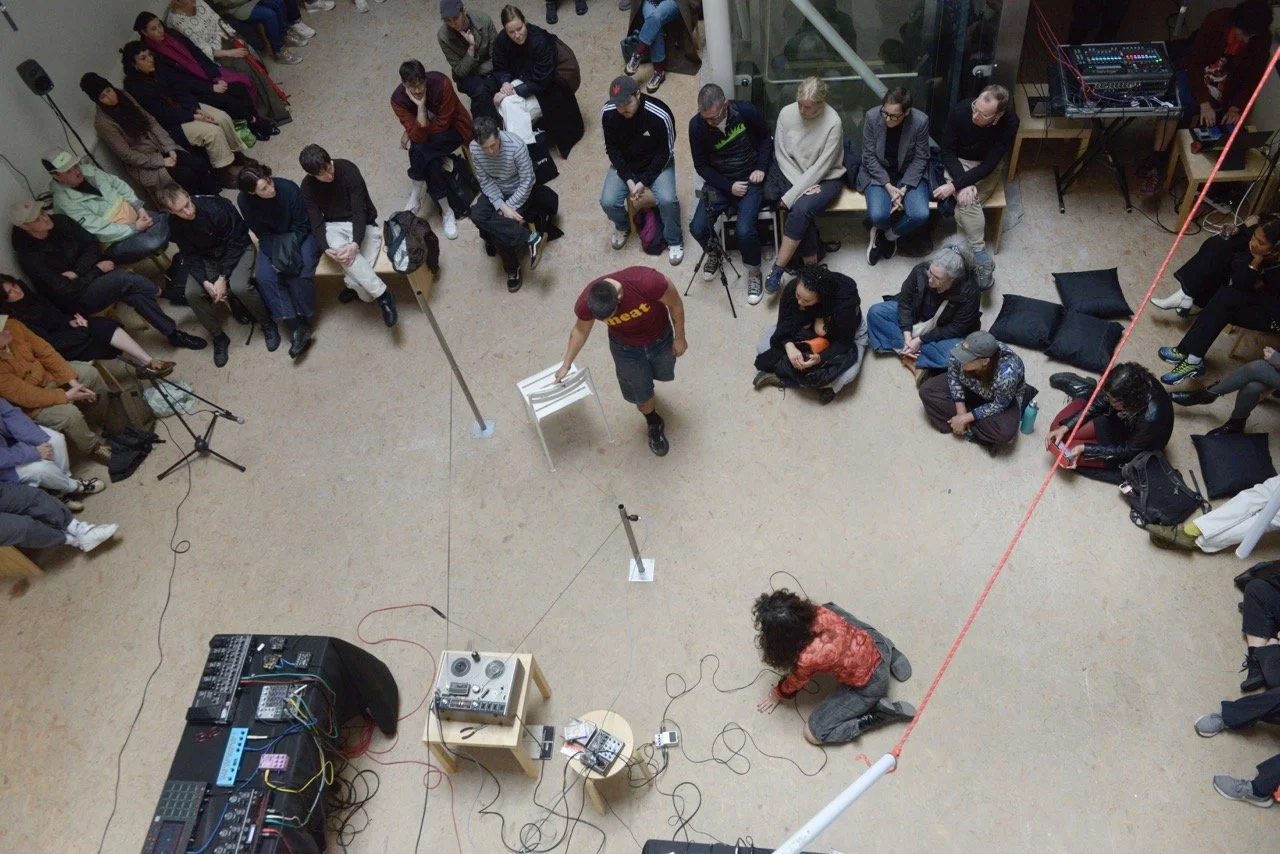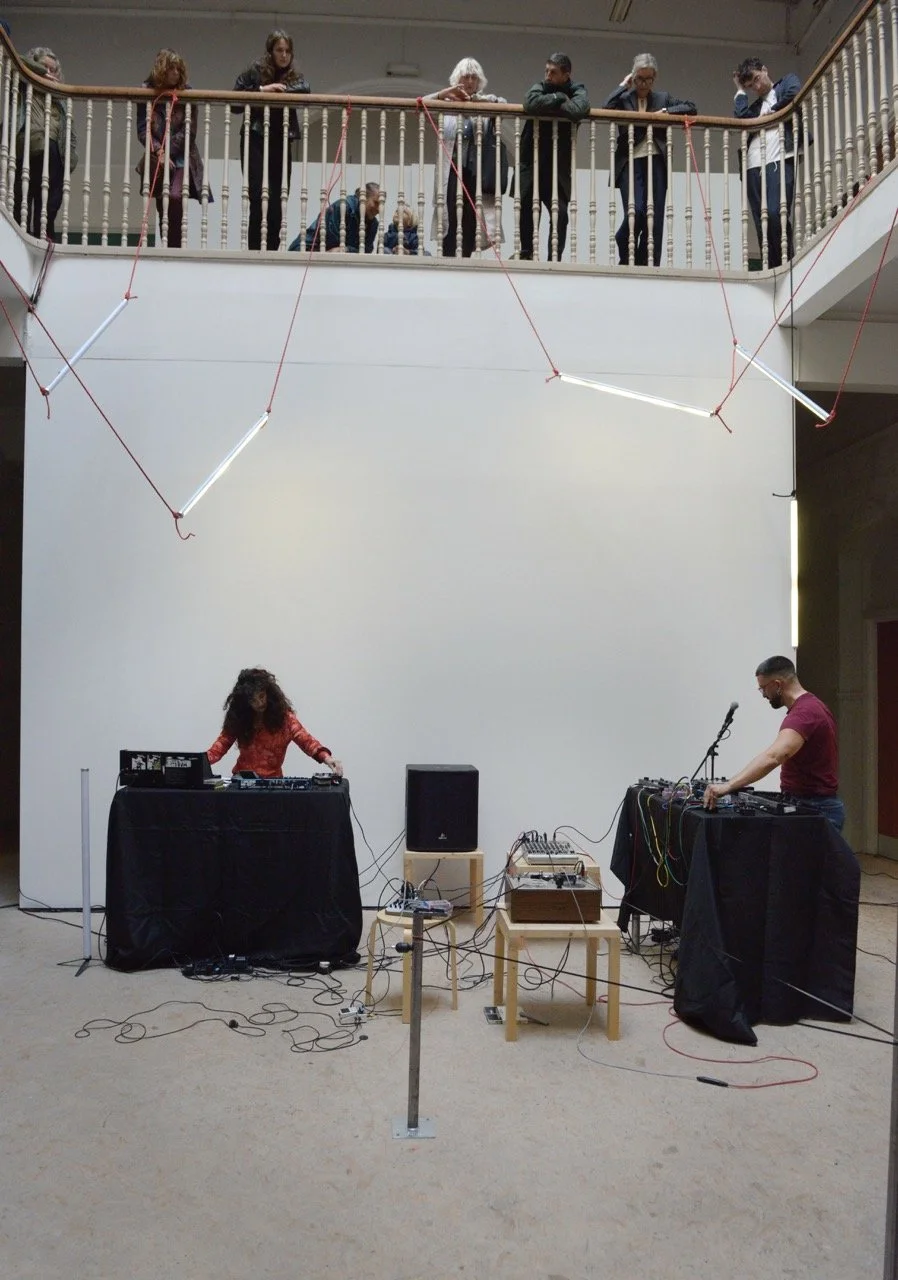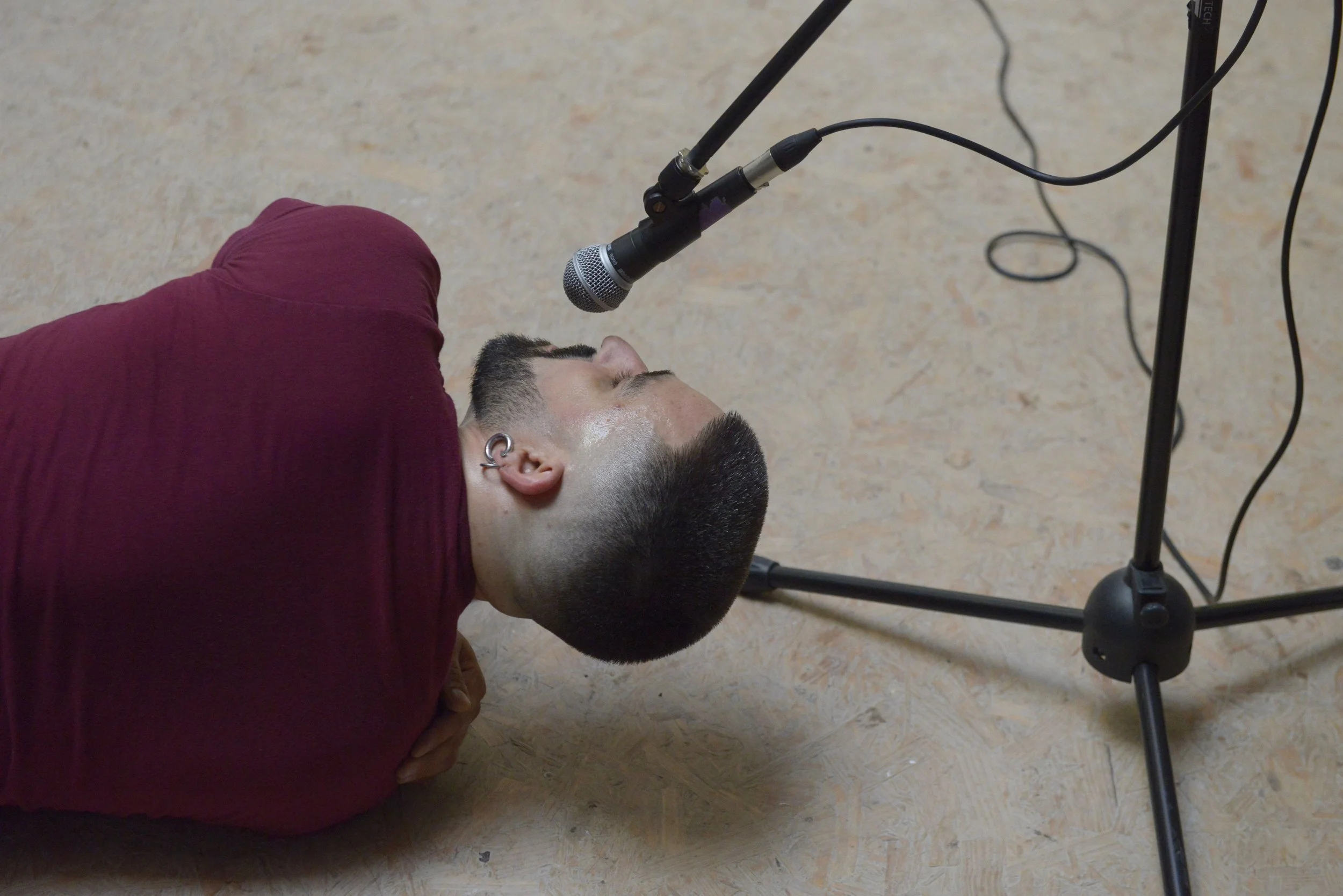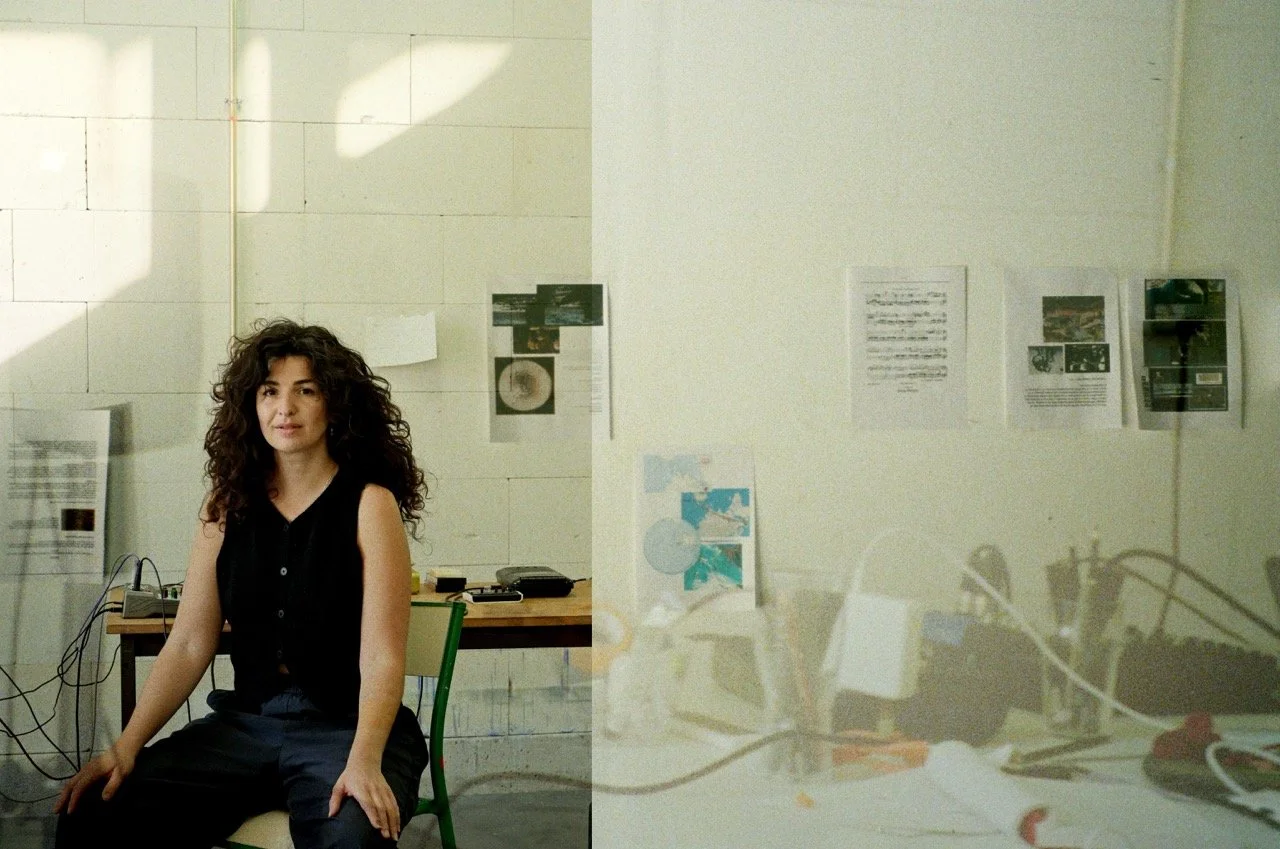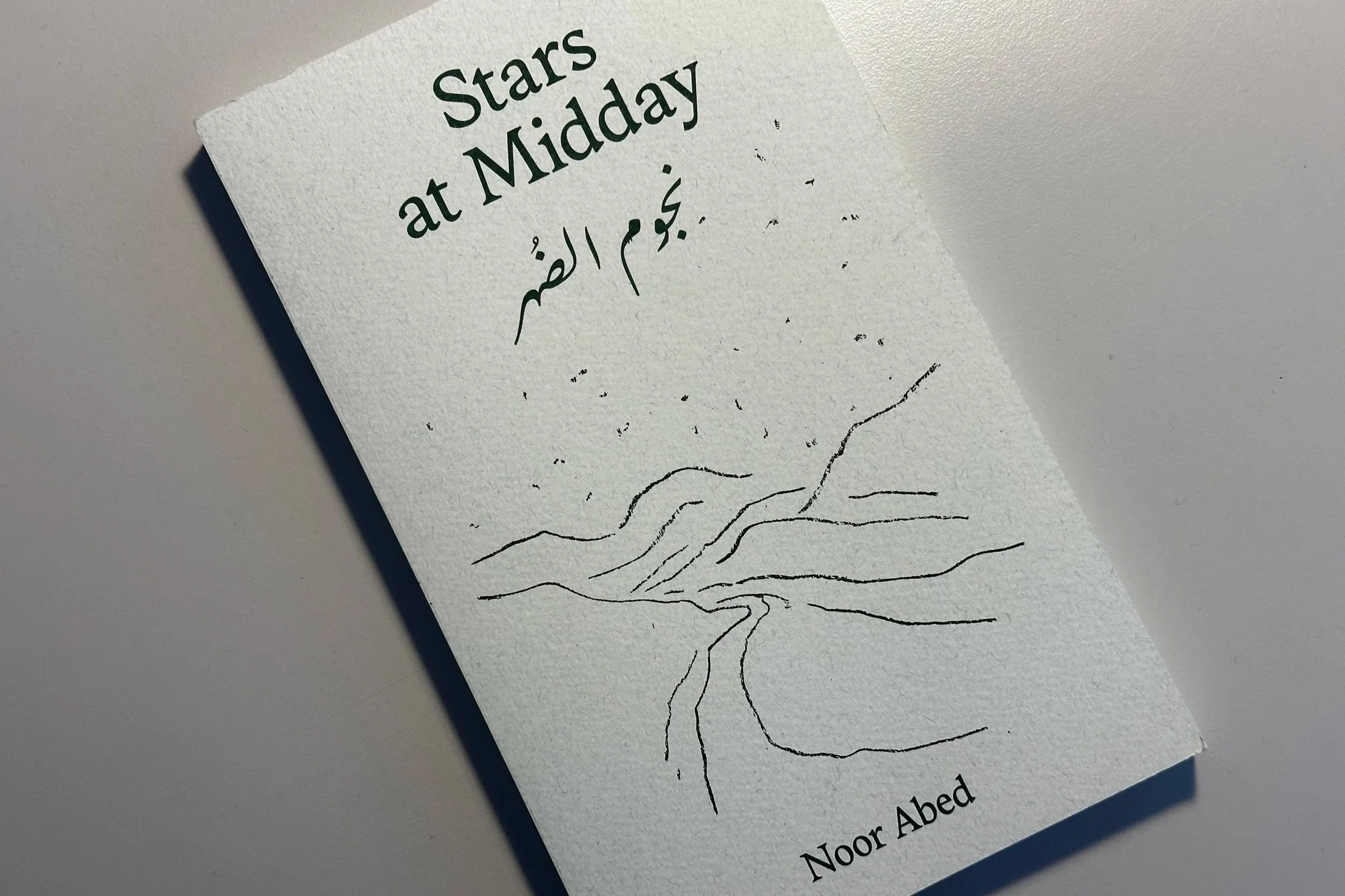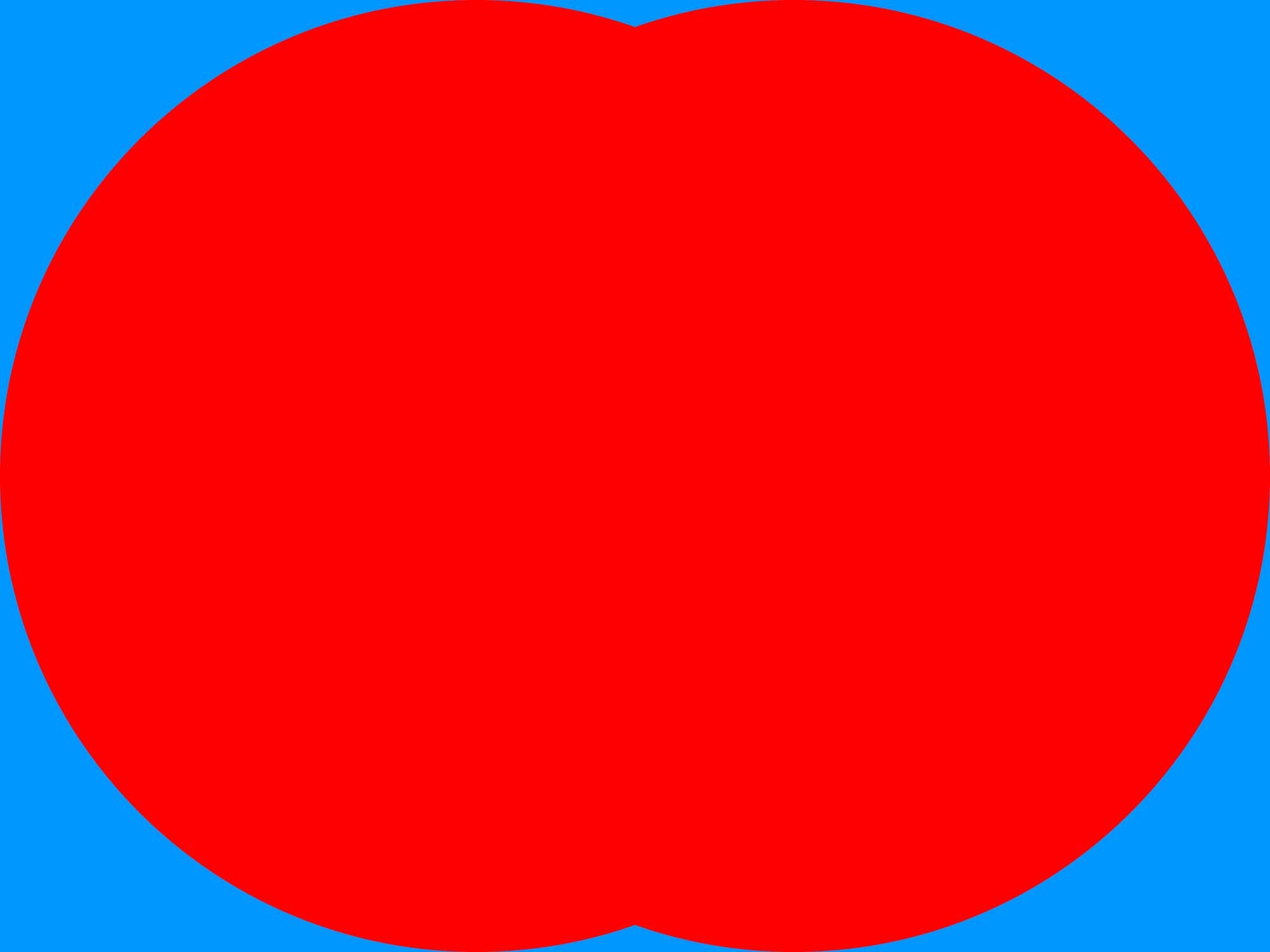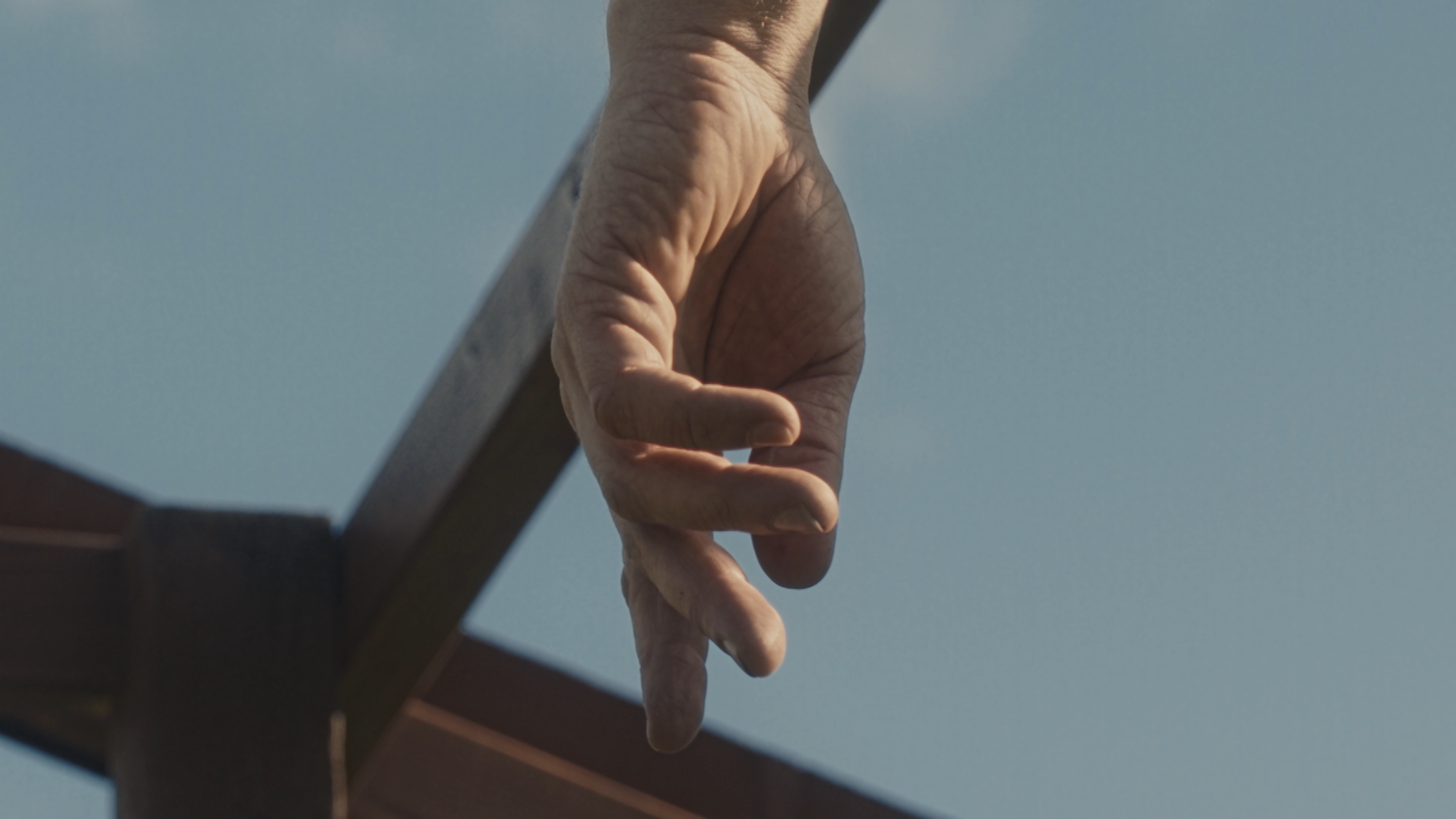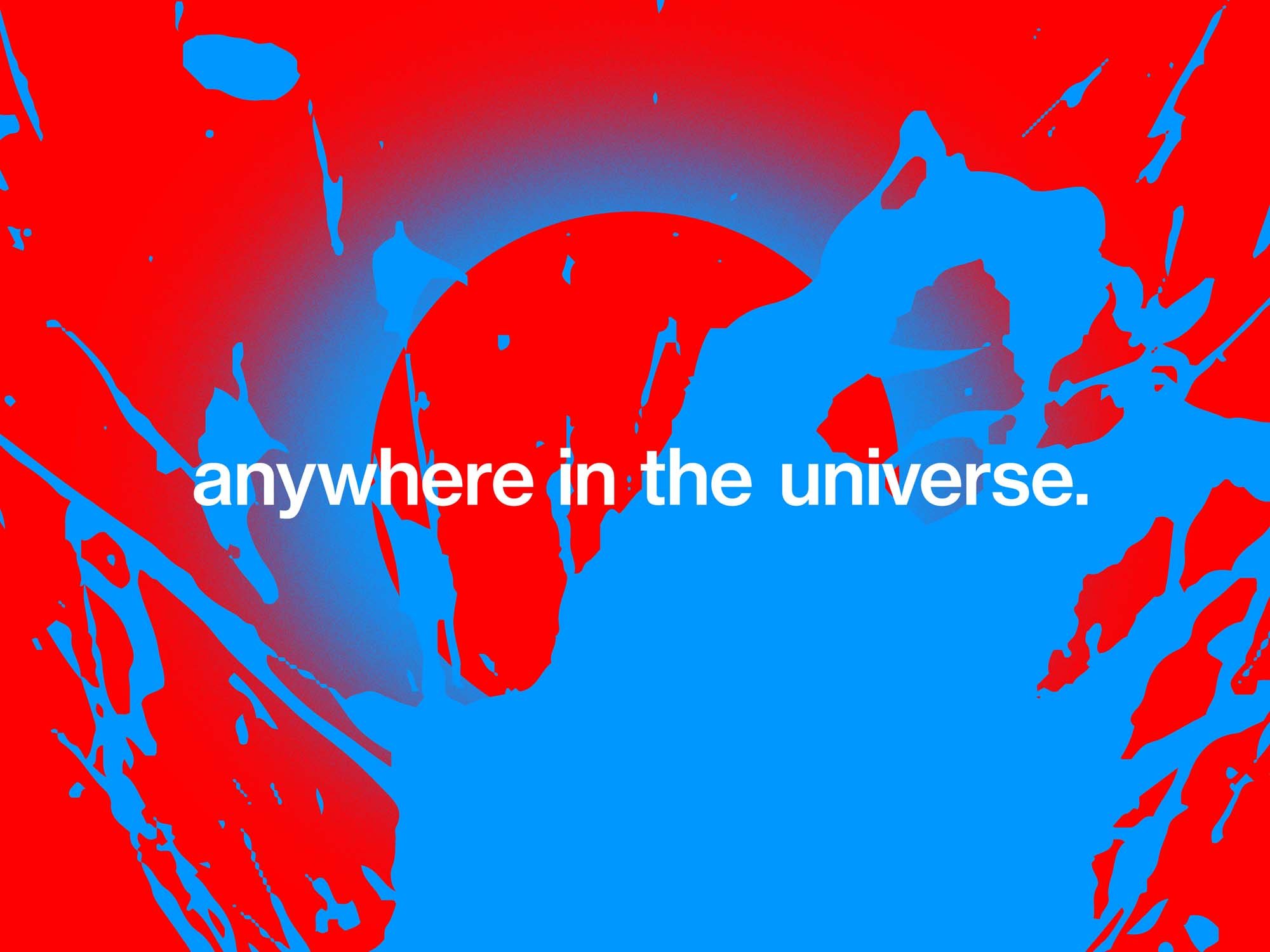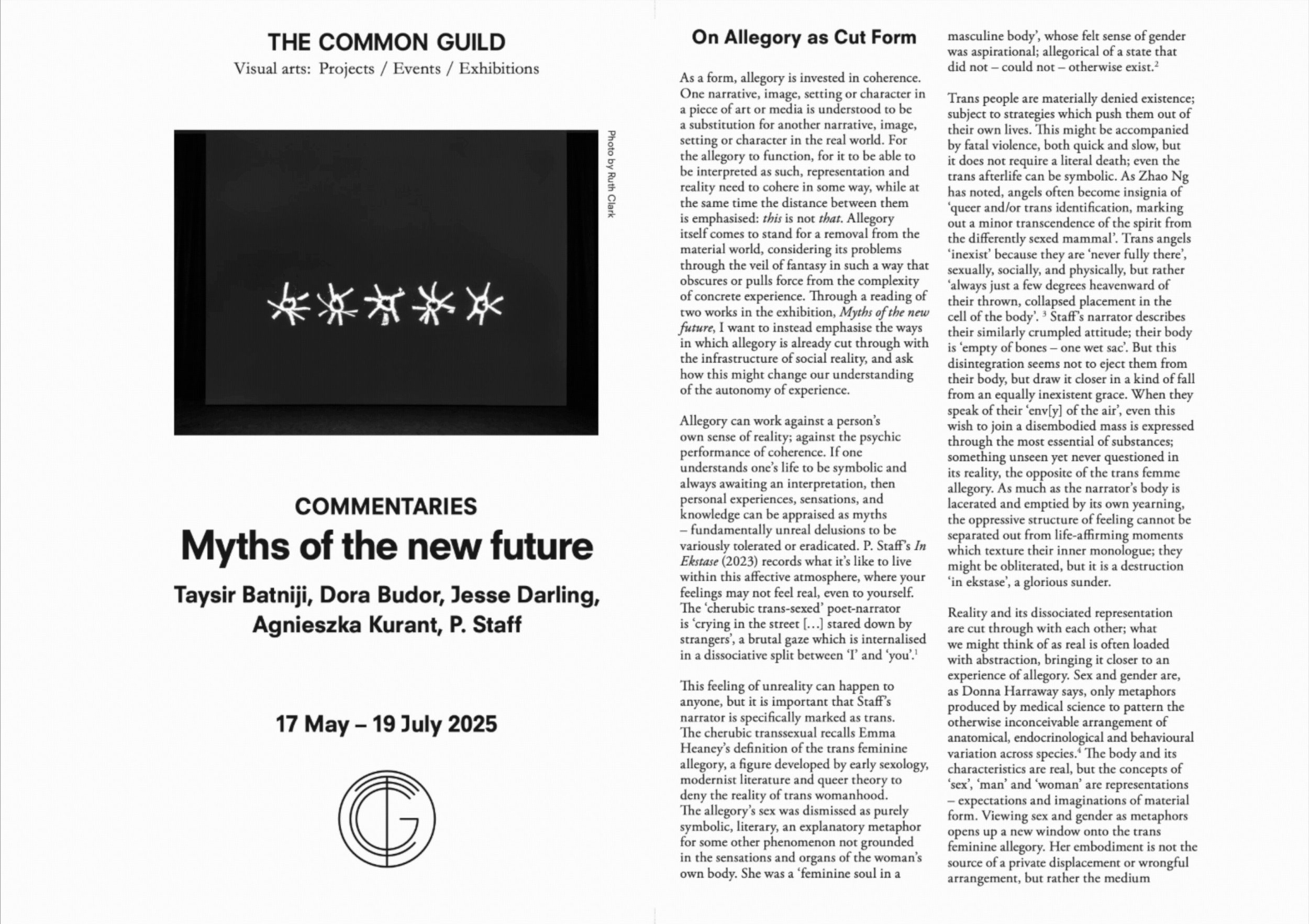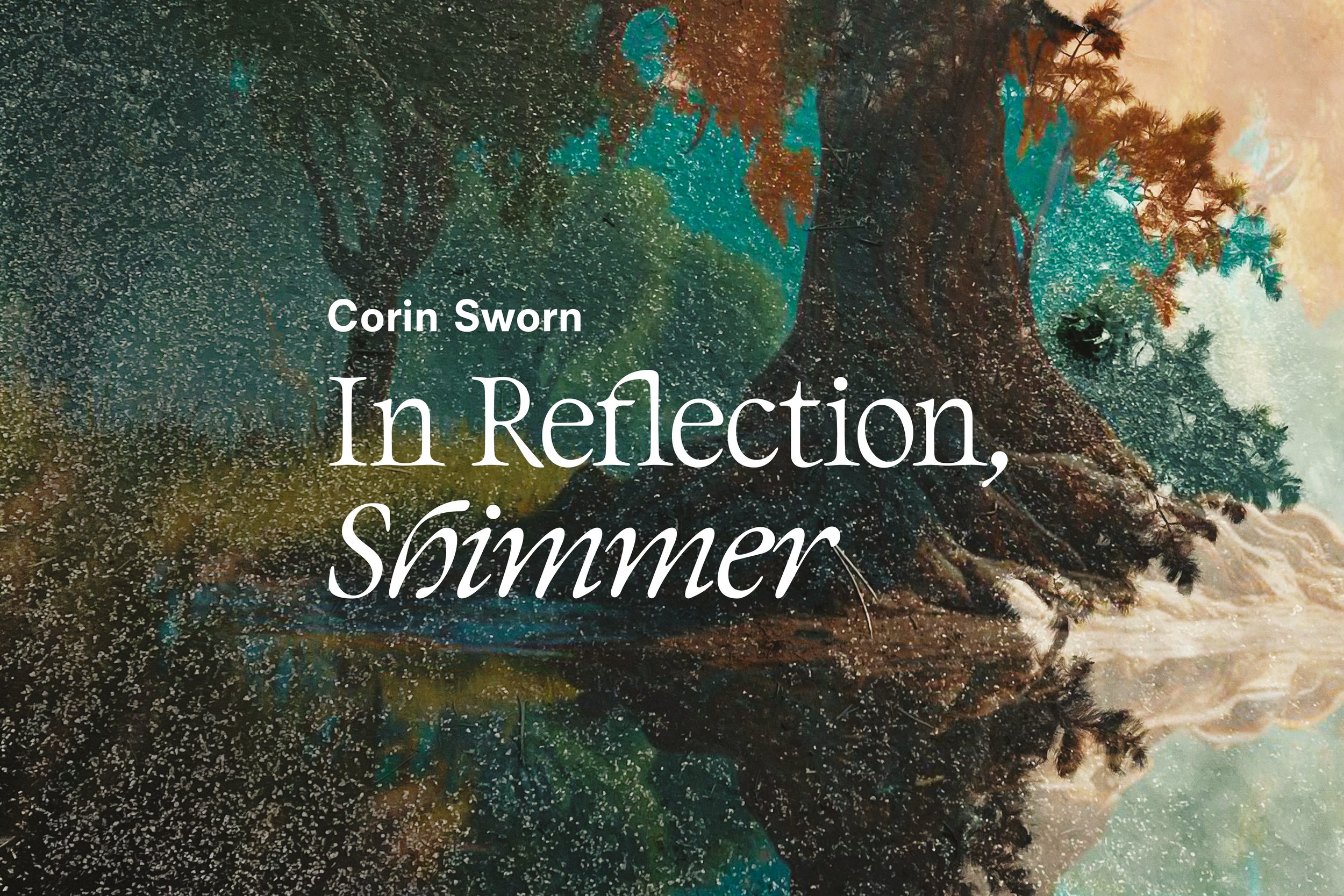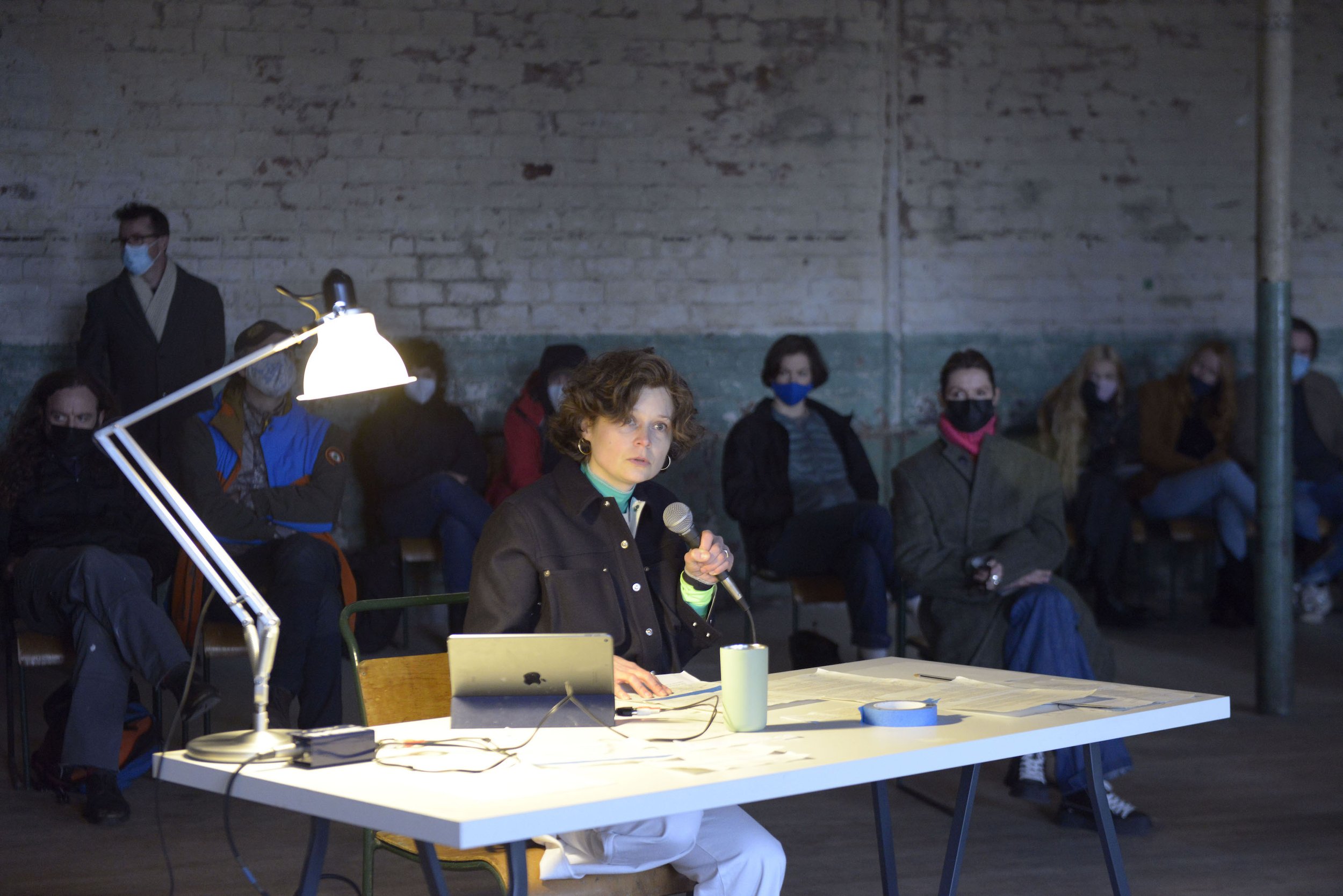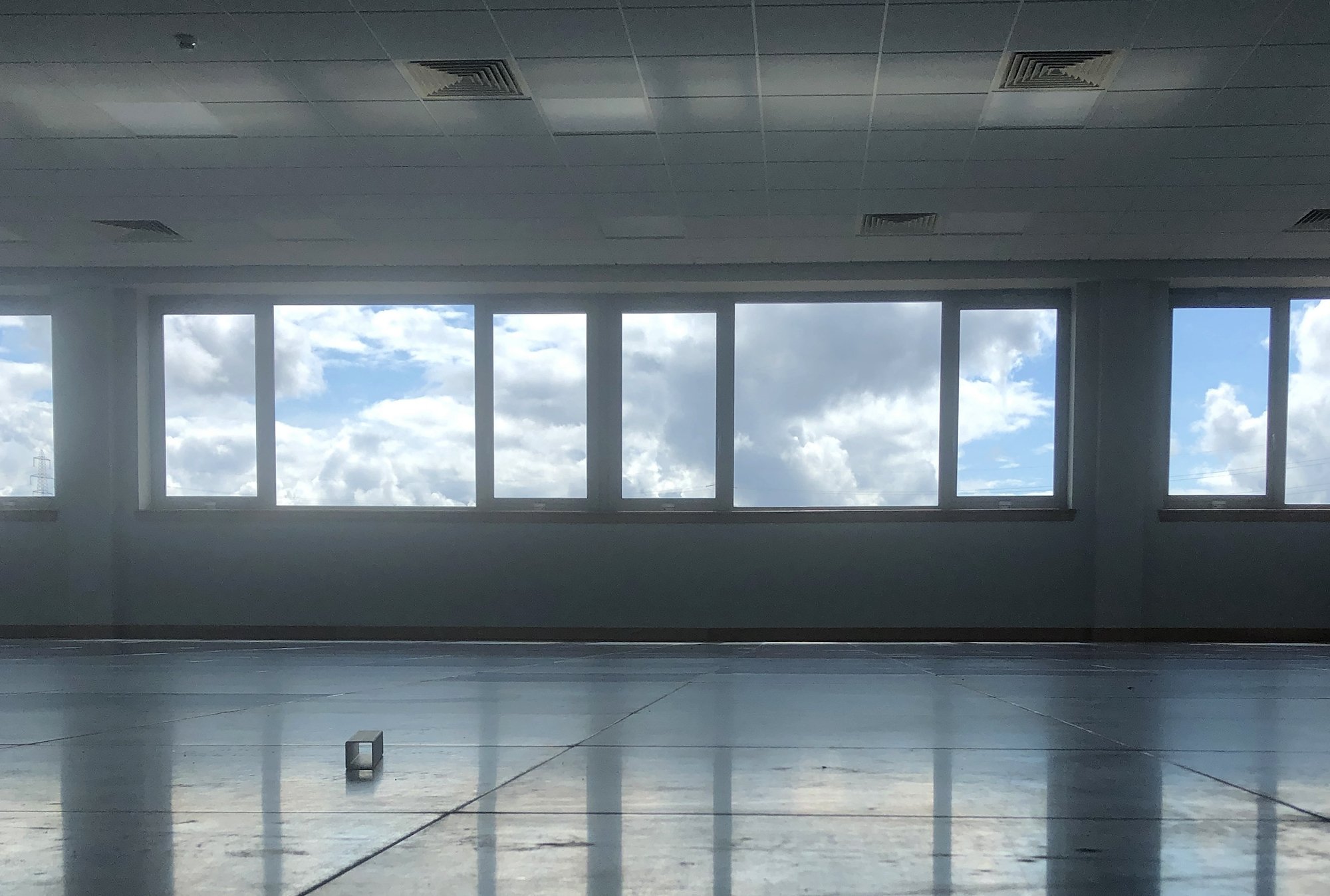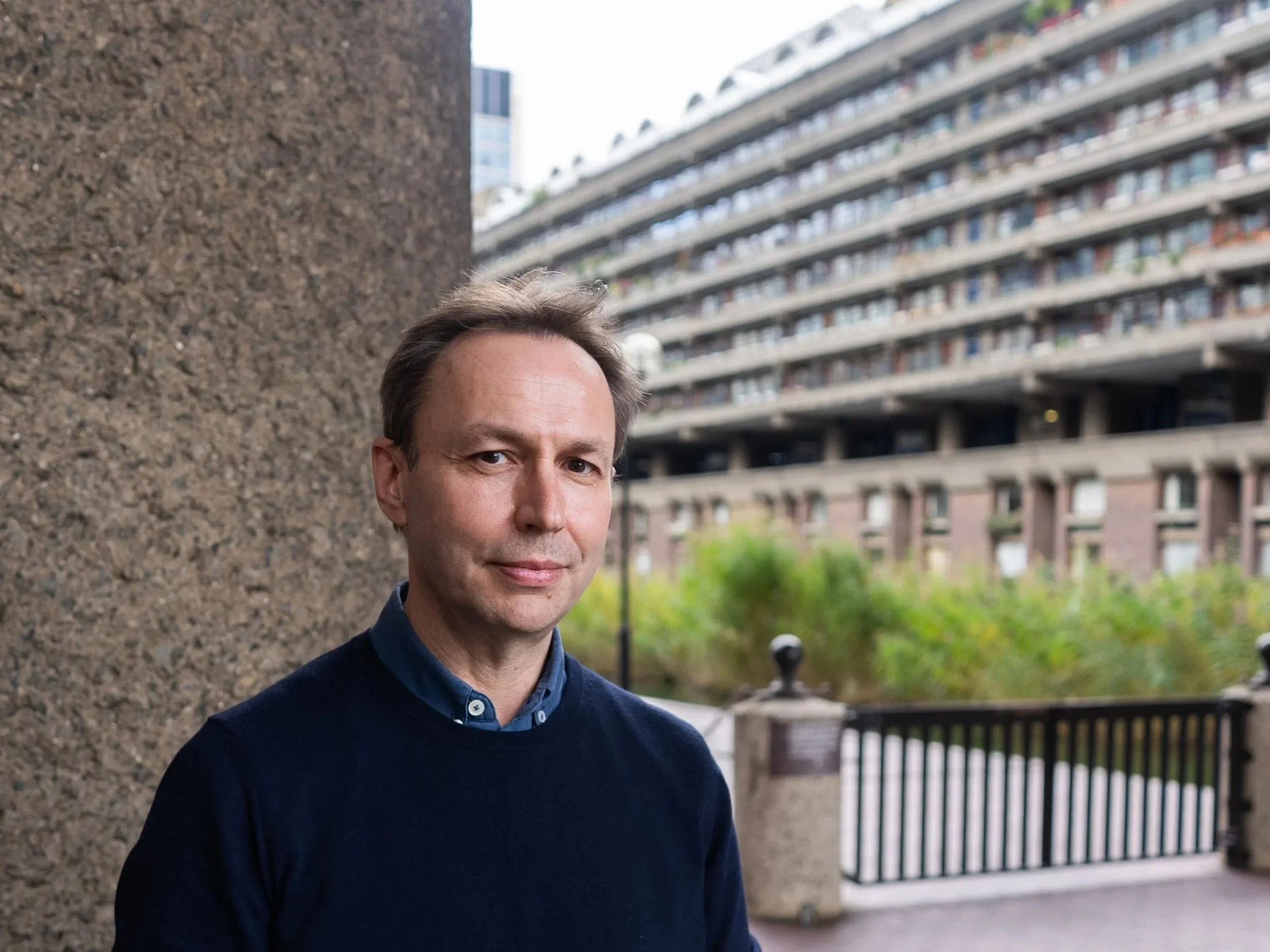
Library Session / Ben Luke
Courtesy of Ben Luke
Writer and broadcaster Ben Luke joins TCG’s founding Director Katrina Brown for a conversation focused on his book, ‘What is art for?’
‘What is art for?’ comprises 25 illustrated conversations from Luke’s podcast ‘A brush with…’, which has been running since 2020 and explores the influences, rituals and disciplines of artists working today through in-depth interviews.
About the speaker /
Ben Luke is a critic and broadcaster. He hosts the podcasts ‘A brush with…’ and ‘The Week in Art’ for The Art Newspaper, where he is also a contributing editor and columnist. From 2009 to 2024 he was an art critic at the London Evening Standard. He is a regular guest on BBC Radio 4’s Front Row. Ben has contributed to books on artists as diverse as Phyllida Barlow, Mark Dion, Matthew Krishanu and Christian Marclay. He was selected in the Critics’ Critics section of Artforum’s Best of 2024 issue. Ben’s book, ‘What is art for? Contemporary artists on their influences’, inspirations and disciplines, featuring 25 interviews from the A brush with… series along with new texts, was published in 2025 by HENI.
Event Details
Thursday 26 February 2026, 6–8pm.
Tickets
Free. Booking required as spaces are limited.
Access
This event takes place in the Library and event space on the ground floor and the exhibition spaces on the second floor of 5 Florence Street.
The building has step free access and a lift to the second floor.
Accessible toilets are available.
The nearest subway station is Bridge Street, a 14 minute walk away.
Related
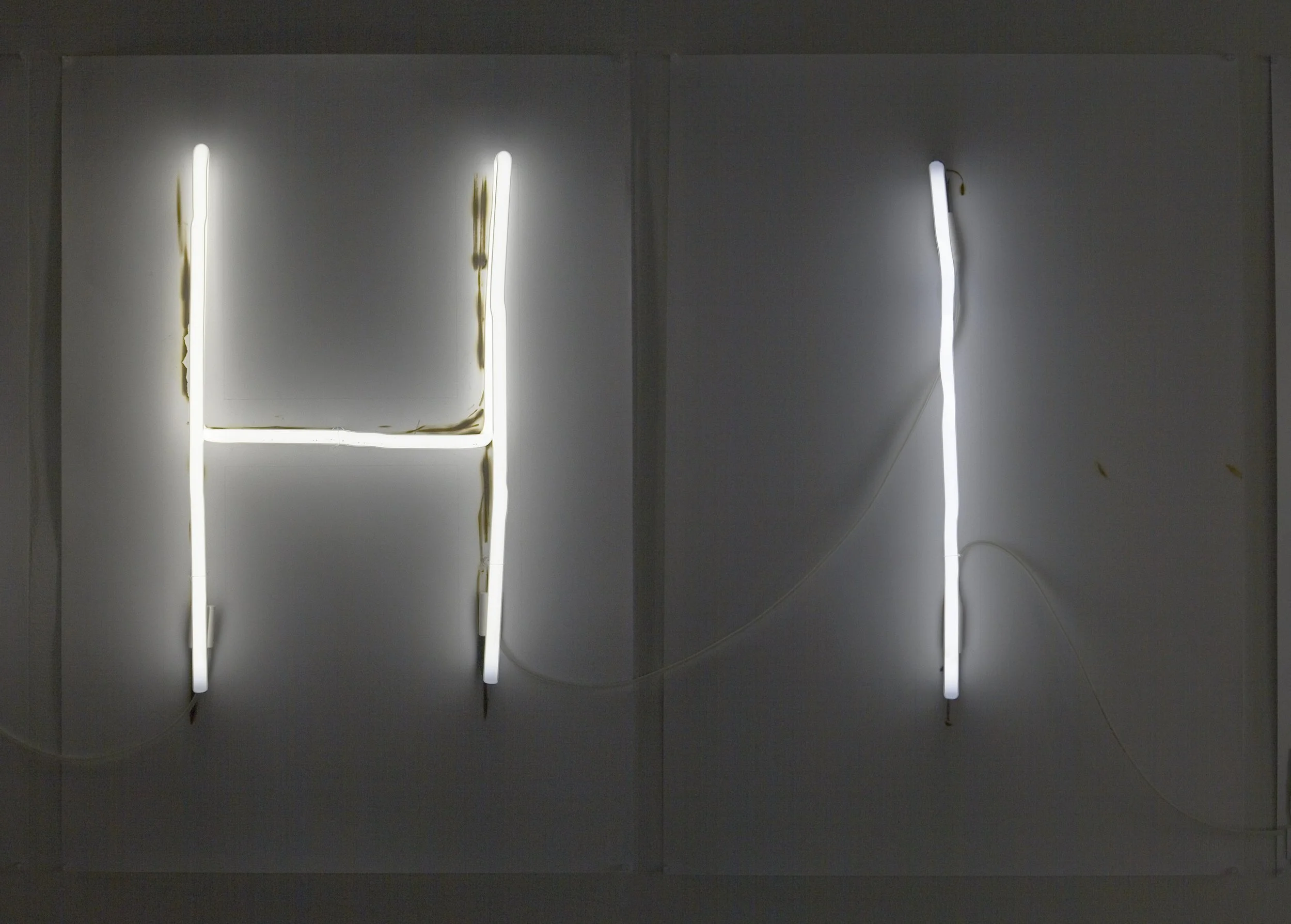
Studies / Fiona Banner aka The Vanity Press – ‘Every Word Unmade’
Fiona Banner aka The Vanity Press, ‘Every Word Unmade’, 2007 (detail). Courtesy the artist and Frith Street Gallery, London. Artwork courtesy the David and Indrė Roberts Collection.
Our first exhibition of 2026 is the first in a new, annual series, entitled ‘Studies’, developed in conjunction with the Roberts Institute of Art. Each exhibition will draw from the collection to present key works by major artists. ‘Studies’ centres upon well-established artistic practices and works made in the 1990s – 2000s that particularly connect with now. The first exhibition in the series is focussed on a work by Fiona Banner aka The Vanity Press.
‘Every Word Unmade’ (2006–7) is a neon alphabet, very evidently hand-made by the artist, who bent hot glass into the 26 letterforms of the alphabet. The struggle against and with the medium, and with language itself is evident. As Banner has said, “words are extensions of our physical selves, so I started to explore the physicality of words”.
Fiona Banner aka The Vanity Press, ‘Every Word Unmade’, 2007 (detail). Courtesy the artist and Frith Street Gallery, London. Artwork courtesy the David and Indrė Roberts.
It is a work, like many of Banner’s, about communication and the building blocks of language: here the fragile and faltering letter forms are combined, in its use of neon, with the seductive language of the street and commerce. ‘Every Word Unmade’ represented a departure from Banner’s densely verbal work that addressed the myths and narratives of conflict – a playful attempt to denude language of its manipulative power. ‘Every Word Unmade’ will be accompanied by a small selection of related works by the artist.
Loan courtesy of ‘Every Word Unmade’ courtesy of the David and Indrė Roberts Collection.
About the artist /
Fiona Banner aka The Vanity Press explores gender, language, interpretation and publishing through a range of media, including drawing, sculpture, performance and moving image. The struggle between language and its limitations is central to Banner’s conceptual approach. With an interest in how conflict is mythologised through popular culture, her early work took the form of ‘wordscapes’ or ‘still films’, blow-by-blow accounts in her own words of feature films, from war movies to porn, from intimate scenes to historical events. These works evolved into solid single blocks of text, often the same shape and size as a cinema screen.
In 1997 Banner started her own publishing imprint The Vanity Press, with her monumental The Nam. She has since published many works, as books, sculptural objects or performances. In 2009 she issued herself an ISBN number and registered herself as a publication under her own name.
About the Roberts Institute of Art /
The Roberts Institute of Art (RIA) is a non-profit contemporary arts organisation. They commission pioneering performance art, run a residency programme in Scotland, collaborate with national partners on exhibitions and work to research and share the David and Indrė Roberts Collection.
The David and Indrė Roberts Collection features nearly 2,500 works by over 900 artists, dating from the mid-20th century to today. The collection is rooted in a passion for contemporary art and an ambition to share extraordinary work by some of the world’s most influential artists and to support artists at different stages of their careers.
Further Info
Exhibition Details
Free exhibition open: Thursday – Saturday, 12–5pm
Preview will take place 12pm on Saturday 21 March.
Access
The exhibition takes place on the second floor of 5 Florence Street.
The building has step free access and a lift to the second floor.
Accessible toilets are available.
The nearest subway station is Bridge Street, a 14 minute walk away.
Additional links
Related
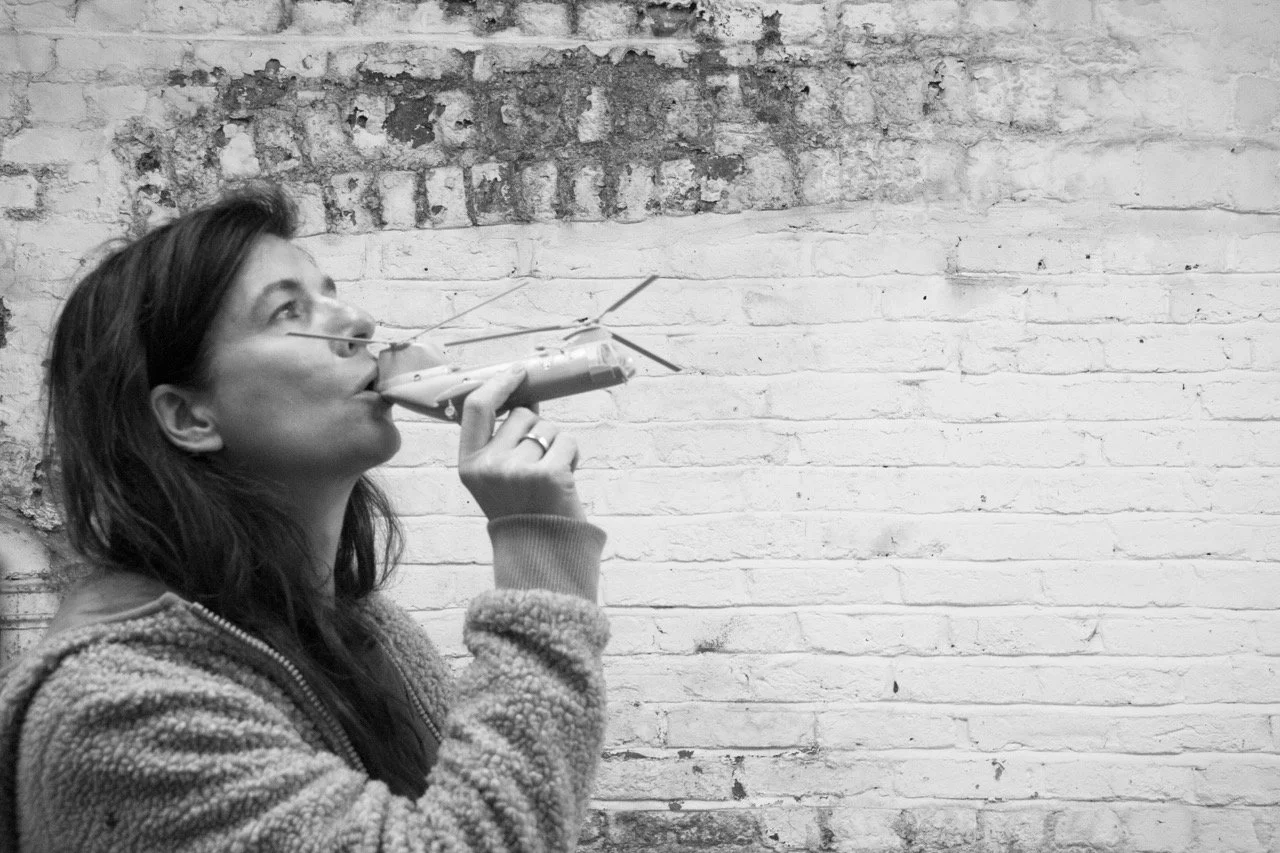
Artist Talk / Fiona Banner aka The Vanity Press
Courtesy of the artist.
Join us for an informal artist’s talk in our Library with Fiona Banner aka The Vanity Press, joined in conversation by TCG’s outgoing Director, Katrina Brown, who curated Banner’s major 2002 exhibition at Dundee Contemporary Arts.
Together they will discuss the developments in Banner’s work at the time of ‘Every Word Unmade’ and reflect on its resonance today. The artist’s talk will be followed by a preview of Studies / Fiona Banner aka The Vanity Press – ‘Every Word Unmade’, TCG’s opening exhibition of 2026 and the first in a new, annual series, developed in conjunction with the Roberts Institute of Art.
About the artist /
Fiona Banner aka The Vanity Press explores gender, language, interpretation and publishing through a range of media, including drawing, sculpture, performance and moving image. The struggle between language and its limitations is central to Banner’s conceptual approach. With an interest in how conflict is mythologised through popular culture, her early work took the form of ‘wordscapes’ or ‘still films’, blow-by-blow accounts in her own words of feature films, from war movies to porn, from intimate scenes to historical events. These works evolved into solid single blocks of text, often the same shape and size as a cinema screen.
In 1997 Banner started her own publishing imprint The Vanity Press, with her monumental The Nam. She has since published many works, as books, sculptural objects or performances. In 2009 she issued herself an ISBN number and registered herself as a publication under her own name.
Event Details
Saturday 21 March 2026, 3–4.30pm
Exhbition preview from 4.30. All welcome
Tickets
Free. Booking is recommended to ensure a place.
Access
This event takes place in the Library and event space on the ground floor and the exhibition spaces on the second floor of 5 Florence Street.
The building has step free access and a lift to the second floor.
Accessible toilets are available.
The nearest subway station is Bridge Street, a 14 minute walk away.
Related
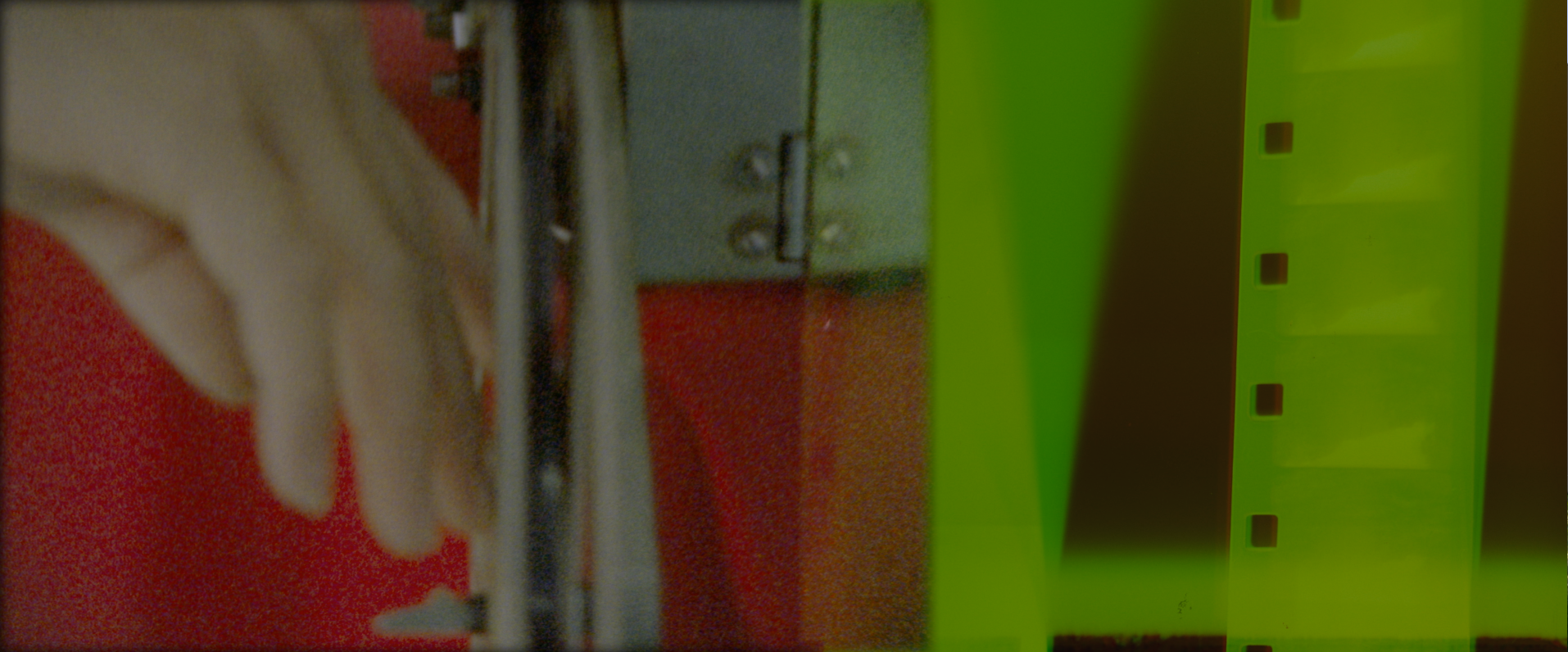
Exhibition Talk / May Adadol Ingawanij
Peng Zuqiang, ‘Afternoon Hearsay’ (2025). Film still. Courtesy of the artist and Antenna Space.
Dr. May Adadol Ingawanij is a writer, curator, and Professor of Cinematic Arts, University of Westminster. Her work concerns Southeast Asian artists moving image, art, and independent cinema.
Ingawanij will respond to the exhibition ‘Afternoon Hearsay’ and reflect on the personal narratives and shared histories explored in Peng’s latest film installations.
During the talk we will also launch Ingawanij’s Commentary text on ‘Afternoon Hearsay’ which will be freely available to read and take away.
Dr. May Adadol Ingawanij
Event Details
This event took place in the Library and event space on the ground floor of 5 Florence Street.
Related
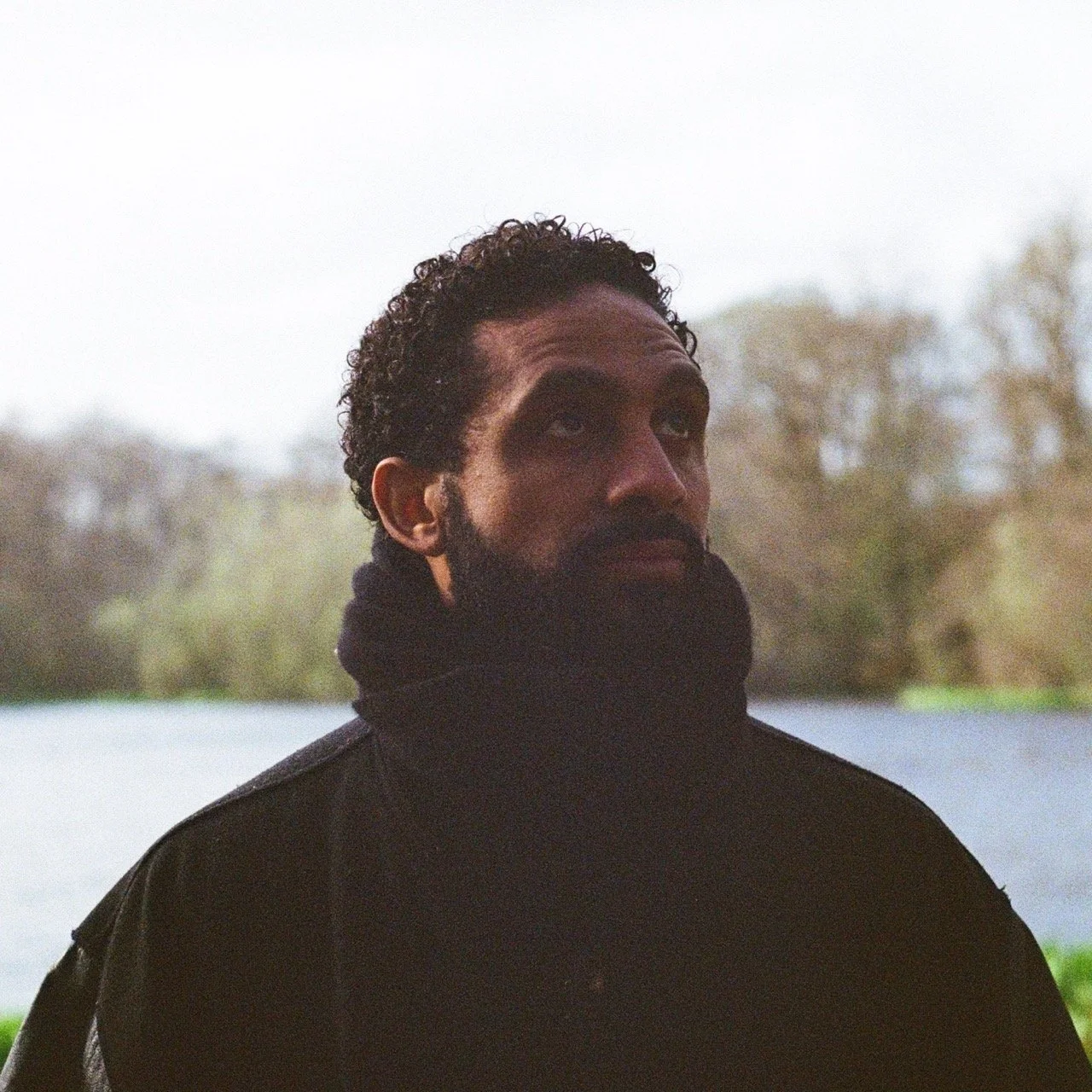
Library Session / Orsod Malik
Orsod Malik (2024). Photo: Emmy Yoneda.
Join us for a Library Session with curator, writer, and independent researcher Orsod Malik, Director of the Stuart Hall Foundation and a recently appointed member of our board.
Malik will discuss the relationship between Stuart Hall, his own curatorial practice, and his work at the Stuart Hall Foundation - established in 2015 to honour the life and legacy of the late Stuart Hall (1932-2014), the Jamaican-born British Marxist sociologist, cultural theorist, and political activist.
About the speaker /
Orsod Malik is a curator of exhibitions and archives, writer, independent researcher, and the Executive Director of the Stuart Hall Foundation. He currently serves as an Artist Mentor on the Prince Claus Fund’s Moving Narratives Programme. Malik’s work explores transnational cultural and political entanglements in historical narratives to consider the possibility of shared histories. He is particularly interested in the relationship between social movements, aesthetics, and public education, and their role in shaping collective identities.
Malik has curated exhibitions and developed programmes for several cultural organisations including, the Stuart Hall Foundation, International Curators Forum (ICF), Black Cultural Archives, Institute of International Visual Arts (iniva), Prince Claus Fund and the British Council.
Event Details
This event took place in the Library and event space on the ground floor of 5 Florence Street.
Listen to a recording of the talk here -
Related
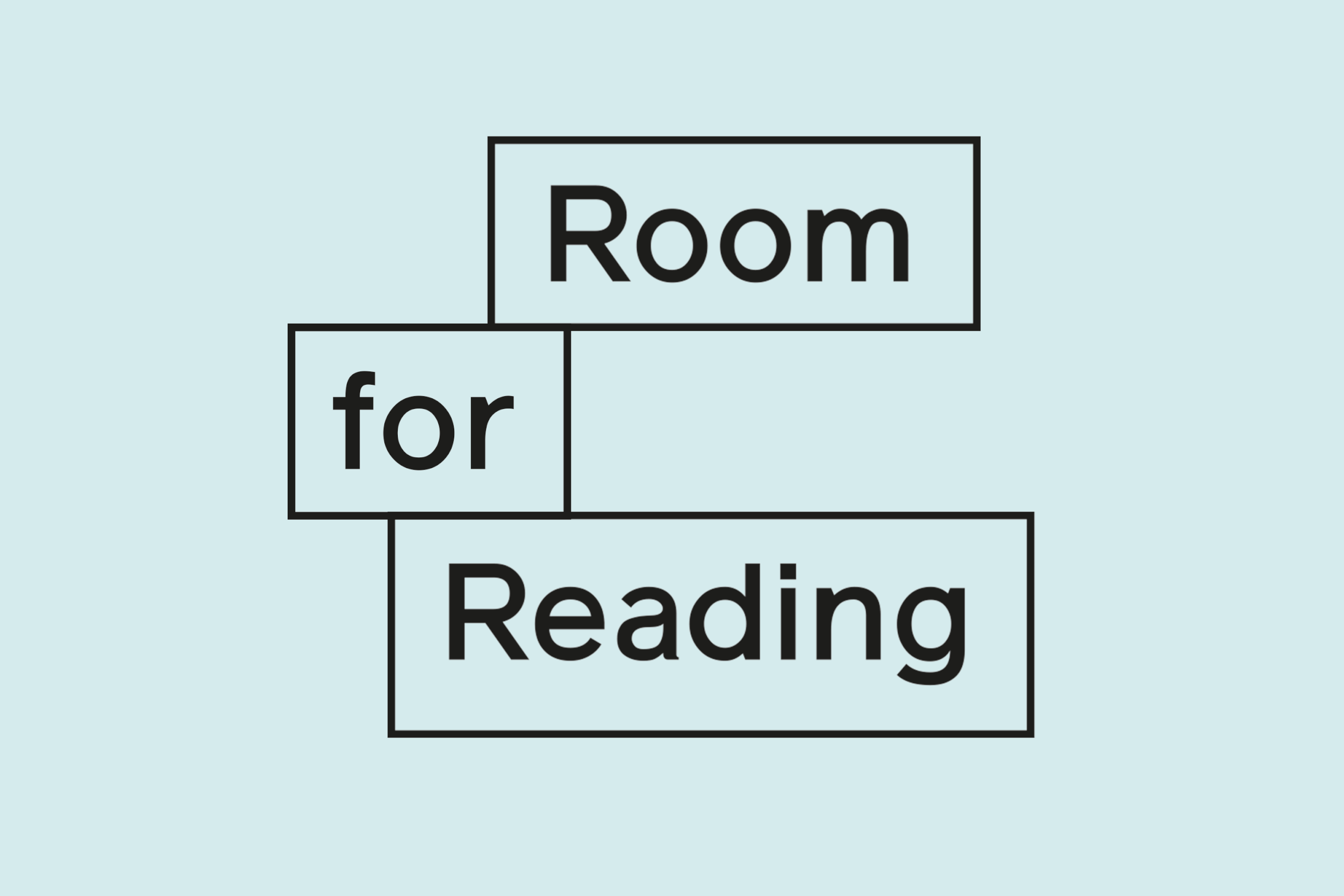
Room for Reading / Orsod Malik
Design: Maeve Redmond
Orsod Malik is a curator, researcher, writer and director of the Stuart Hall Foundation. Malik’s Library Session talk, ‘Insisting on Another Horizon’, was presented on 27 November. To accompany the talk, Malik shares a collection of texts that centre the foundational relationships and ideas that continue to shape his curatorial practice.
bell hooks, ‘Art on My Mind: Visual Politics” (2025).
“I know contributors to the Room for Reading don’t normally pose a theme, but I thought I’d base my recommended texts on some cherished relationships and their impact on my work.”
Art on My Mind: Visual Politics (2025) by bell hooks.
“Emmy Yoneda is an editor and artist who I regularly collaborate and think with through our curatorial collective, Minor Key. Yoneda led the way in republishing this bell hooks text while she was working at Penguin Random House, and it is one of the foundational texts that guides our work together and individually. Emmy is also my wife.
“Here is an excerpt from the essay ‘Workers for Artistic Freedom’, which I think captures the core ideas and interventions hooks offers in this critical collection of essays”:
Art should be, then, a place where boundaries can be transgressed, where visionary insights can be revealed within the context of the everyday, the familiar, the mundane. Art is and remains such an uninhibited, unrestrained cultural terrain only if all artists see their work as inherently challenging to those institutionalised systems of domination (imperialism, racism, sexism, class elitism, etc.) that seek to limit, co-opt, exploit, or shut down the possibilities for individual creative self-actualisation.
Read a pdf of ‘Art on My Mind: Visual Politics’ here.
Shiera S. el-Malik and Isaac A Kamola, ‘Politics of the African Anticolonial Archive’ (2017).
Politics of the African Anticolonial Archive (2017) by Shiera S. el-Malik and Isaac A Kamola.
“Shiera El-Malik is an Associate Professor in the Department of International Relations at DePaul University, Chicago. El-Malik was my first creative and intellectual mentor, and she continues to offer me guidance as a deeply cherished interlocutor. Shiera is also my sister and eldest sibling.
Shiera handed me this text when it was published. It remains a foundational resource for my curatorial practice and guides my approach to working with archives. Here is an excerpt I return to often:
What might happen if we universalise, in a grounded way, the experience of African anticolonial thought? What if we suggest that the fight against colonialism in Africa was not only a particular and exceptional experience, but also a universalising articulation of the human condition – an experience with insights that might be shared by all people?”
David A. Bailey and Allison Thompson, ‘Liberation Begins in the Imagination’ (2021)
Liberation Begins in the Imagination (2021) by David A. Bailey and Allison Thompson.
“David A. Bailey, the co-editor of this collection, has played a critical role in nurturing my curatorial practice. Bailey is a world-renowned curator, writer and cultural facilitator. He is a dear mentor and was the first elder who offered me the space to pursue the cultural and political questions that preoccupied me through exhibition-making. Working closely with him and Jessica Taylor at the International Curators Forum between 2021–2024 gave me the confidence to contribute to contemporary discourses that are reshaping the sector.
‘Liberation Begins in the Imagination’ gathers the work of creative and intellectual practitioners, some of whom I have the privilege to know and learn from through my work at the Stuart Hall Foundation, including Gilane Tawadros, Roshini Kempadoo, and Françoise Vergès. The collection continues Bailey’s work of stretching the limits of what is considered “British art” by exploring the co-constitutive relationship between the Caribbean and Britain.”
Silencing the Past: Power and the Production of History (1995) by Michel-Rolph Trouillot.
Silencing the Past: Power and the Production of History (1995) by Michel-Rolph Trouillot.
“I don’t know Michel-Rolph Trouillot personally! However, this book has been a critical companion to my practice and is a foundational text for many who are concerned with questions about the relationship between power, the production of history, and collective identities.
‘Silencing the Past’ helped shape my work on the Prince Claus Fund’s Moving Narratives Programme this year. It stimulated many of the conversations I had with the 12 artists on the programme, all of whom engage with history through their practices.
We thought with Trouillot to consider how we were working with and against historical narratives - individually and collectively. I feel very privileged to have worked with each of the artists this year and to call them friends. I’ll end with an excerpt from Trouillot:
Thus between the mechanically ‘realist’ and the naively ‘constructivist’ extreme, there is the more serious task of determining not what history is – a hopeless goal if phrased in essentialist terms – but how history works. For what history is changes with time and place, or, better said, history reveals itself only through the production of specific narratives. What matters most are the processes and conditions of production of such narratives. Only a focus on that process can uncover the ways in which the two sides of historicity intertwine in a particular context. Only through that overlap can we discover the differential exercise of power that makes some narratives possible and silences others.’”
Read a pdf of ‘Silencing the Past’ here.
Details
In conjunction with our projects, exhibitions and events, Room for Reading offers artists we work with an opportunity to contribute to The Common Guild library and share the books and resources that have influenced their artistic practice.
Every artist’s selection is added to The Common Guild’s expansive reference library of artist books, catalogues, and cultural and critical theory.
Visit
The Library is open Wednesday – Saturday from 12–5pm during exhibitions.
Free refreshments, including tea and coffee are available.
Browse
Browse our library catalogue online here.
Related
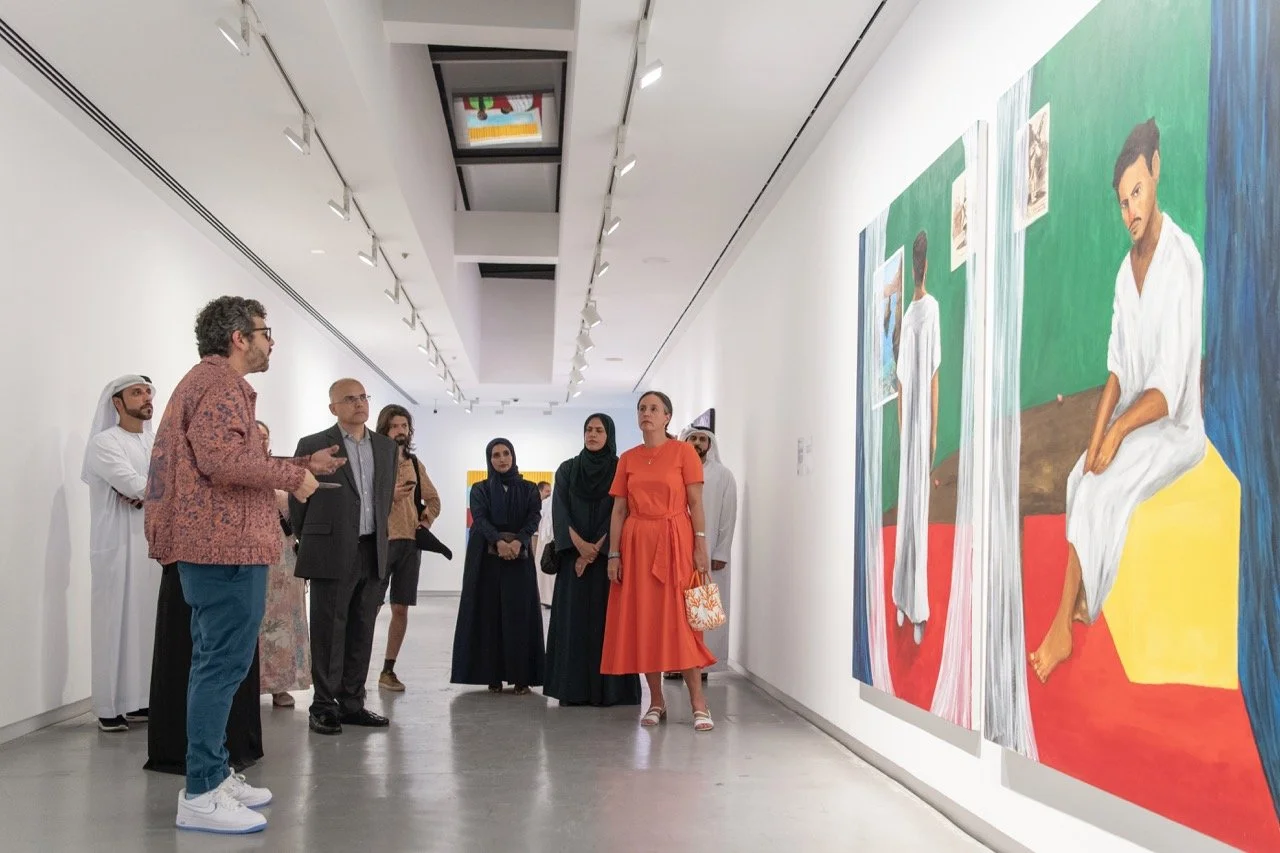
Detours / Omar Kholeif
Opening event for the exhibition In the Heart of Another Country: The Diasporic Imagination Rises curated by Omar Kholeif, Sharjah Art Foundation, 2023
Photo courtesy of Sharjah Art Foundation, UAE. Photo: Moataz Nasr.
Featured artwork: Anuar Khalifi, Talwin Tamkin, 2022. Diptych: Acrylic on Canvas. Sharjah Art Foundation Collection, UAE.
This event marks the return of our ‘Detours’ series, in which leading curators are invited to speak about their work, and its relationship to place or context. The series resumes with author, curator, historian, and museum director, Omar Kholeif and their first public talk in Scotland, where they were recently appointed Professor of Global Art Theory and Practice at The Glasgow School of Art.
Dr Kholeif will tour audiences through a freewheeling journey from Glasgow, where they grew up and studied, to Cairo, downward through Khartoum to Chicago, from Jeddah to Los Angeles, via London to Sharjah, and back again. Composed as an epistolary score, Kholeif has titled this journey, ‘Dreaming Out of Blue’ referencing a 1997 exhibition that they witnessed at GoMA curated by their friend, Anne Barlow. (They would come to meet Anne on a dhow in Sharjah during the Sharjah Art Foundation’s 2012 March Meeting).
Happenstance and friendship collide as the author tours through their distinct imagination, linking the two port cities in which they have lived longest — Glasgow and Sharjah. Through aesthetic encounters, one resounding notion comes to bloom: Kholeif’s approach to the creolised “diaspore”. Drawing from ancestral knowledge and critical fabulation one is ennobled to reclaim their diasporic identity. The very state of exile, here, becomes a site of resilience, of survivance.
The event will culminate with a focus on books and Kholeif’s most recent publication, Huguette Caland: imagine/otherwise ‘a hybrid biography and memoir’ of the Lebanese-French-American artist Huguette Caland (1931 – 2019), one of the most significant figures in late modernism, and the subject of an epic survey at the Reina Sofia in Madrid. The book is published by Sternberg Press 2025 and will be available for sale on the evening.
About the speaker /
Omar Kholeif, PhD was born in Egypt to mixed race parents and has lived in a reclaimed diaspora ever since. Dubbed a "Game Changer" by British GQ, a "Force of Culture" in the New York Times, an author of "compulsively readable stories" in the LA Review of Books, who also has the potential to send readers "...down a David Foster Wallace death spiral" as noted in the New York Journal of Books, Kholeif is an award-winning British author, artist, curator and cultural historian. For two-decades, Dr. Kholeif has pushed the boundaries of oral, literary and visual culture with "breathtaking...compelling...path-breaking" exhibitions (FT, NYT, The National) at some of the world's leading museums of modern and contemporary art, where they have served as both curator and director.
In 2012, they founded artPost21, a not-for-profit platform for artists and their “dreamwork”. Their 2023 hybrid memoir, Internet_Art published by Phaidon made them a Sunday Times bestselling author. Kholeif has sold more than 150,000 books in the English language, which have been translated into 17 languages. For 20 years, they have self-funded their studio practice and have created an open-access collection and research facility to support marginalised artistic voices of the African diaspora. They are a carer and have recently resolved to move back home with their parents.
Event Details
This event took place in the Library and event space on the ground floor of 5 Florence Street.
Listen a recording of Omar Kholeif’s Detours talk here –
Related
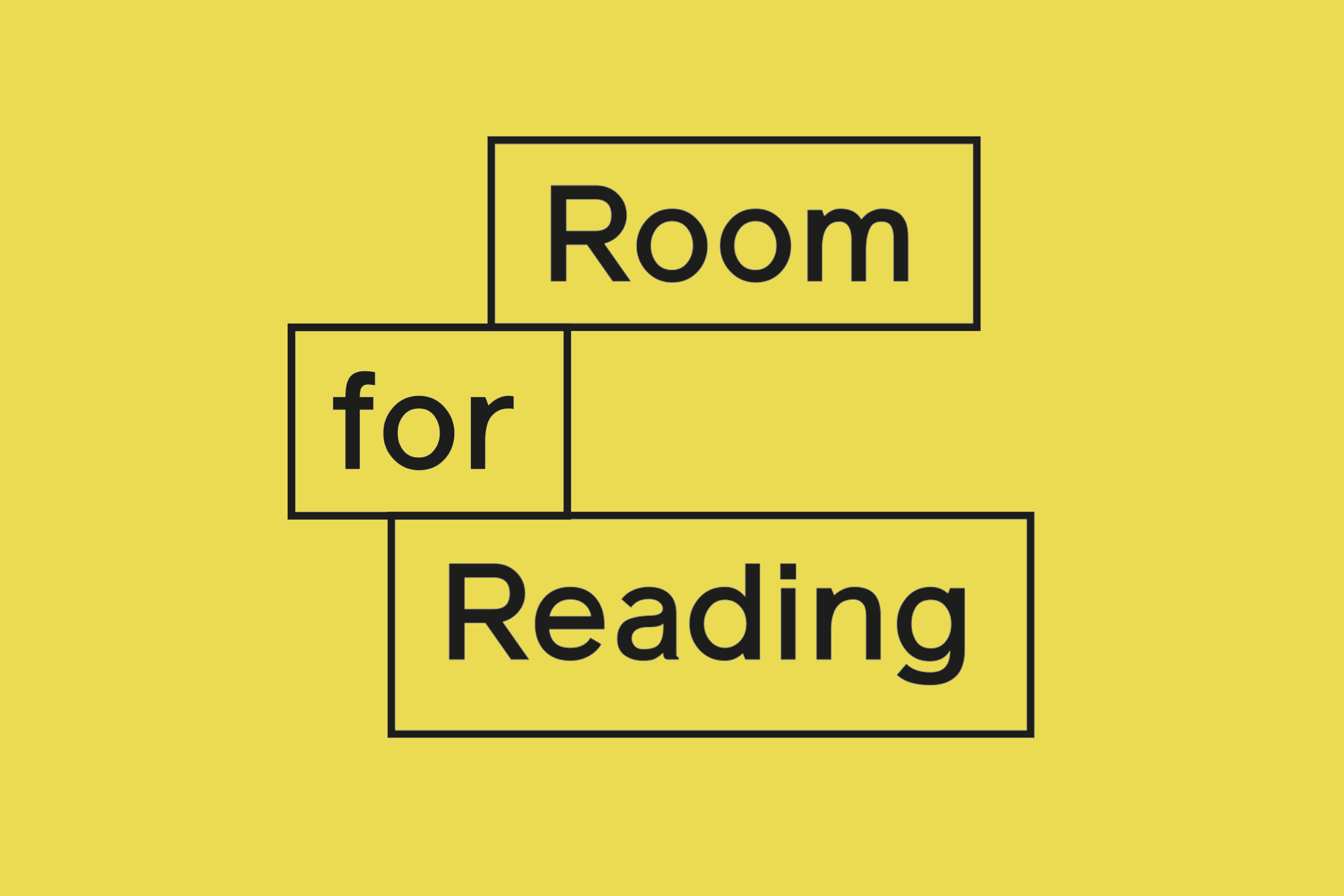
Room for Reading / Omar Kholeif
Design: Maeve Redmond
Following our ‘Detours’ event with author, curator, historian, and museum director, Omar Kholeif, they share a selection of books for our Room for Reading.
Kholeif, who has recently joined The Glasgow School of Art as Professor of Global Art Theory and Practice, selects books by Etel Adnan, Raymond Antrobus and Jean Fisher.
Etel Adnan, ‘In the Heart of a Heart of Another Country’ (2004).
Professor Kholeif notes, “I carry poetry everywhere. I believe it is akin to oxygen. Etel Adnan, who is known to many now as a painter, is someone whose words have deeply shaped my social imagination.”
Dr Kholeif has introduced Adnan’s influential poetry book titled, In the Heart of a Heart of Another Country published by City Lights of San Francisco. The volume served as a seat of inspiration for one of Kholeif’s largest group shows, In the Heart of Another Country, which began its journey at the Deichtorhallen, Hamburg in 2022.
Watch a short film of Kholeif speaking about the exhibition here.
Raymond Antrobus, ‘The Quiet Ear: An Investigation of Missing Sound’ (2025).
On recent influences —
“There has been an unwavering stimulus over the last five years or so and that is the poet, Raymond Antrobus. His book, The Quiet Ear: An Investigation of Missing Sound is a hybrid memoir and social history of deafness as it intersects with the performance of speech, race, class, and the politics of code-switching. It is as if he unspooled that book from deep within me. I won’t go into the personal details as to how his experiences interleave with my own here, but this volume is a testament to his talents. It is an act of resistance against ableism and erasure, as much as it is evidence of how the most harrowing facts of life can read so beautifully on the page.”
Watch Raymond Antribus perform a poem here.
Jean Fisher, ‘Vampire in the Text’ (2003).
On feeling one’s way through history —
‘“We live in an age of feeling, of an emotional politics. I have found myself for the last two decades concerned with how human expression is articulated between the interstices of time—experience through light, via fields of abstract colour. Two anthologies have guided me in this regard recently, painter Sean Scully’s incredibly generous book of writing, Inner, published by Hatje Canz and Jean Fisher’s collection, Vampire in the Text, published by Iniva. Both figures have much in common. They both studied fine art at Newcastle University a year apart; they both hold a strong interest with indigenous knowledge—Native American and African art history and literary forms, and finally, both served as kind and unexpected mentors to me.”
Read a selection of Jean Fisher’s essays here.
Details
In conjunction with our projects, exhibitions and events, Room for Reading offers artists we work with an opportunity to contribute to The Common Guild library and share the books and resources that have influenced their artistic practice.
Every artist’s selection is added to The Common Guild’s expansive reference library of artist books, catalogues, and cultural and critical theory.
Related

Room for Reading / Peng Zuqiang
Design: Maeve Redmond
For his Room for Reading selections, Peng Zuqiang shares a book of short stories, poetry and feminist sociology, all of which have influenced his practice and research in different ways. These publications and others selected by artists we work with, are available to read in our Library during exhibitions.
Jennifer S. Chang, ‘House A’ (2016).
‘House A’ by Jennifer S. Cheng
“Dear Mao,…”—every poem from the ‘Letters to Mao’ chapter begins with this impossible address. But what follows are intimate reflections: falling asleep in a sun-bathed Texan car; the sound of a hand shadow; and history that, like coastlines, “change shape every so often.” These are letters both to and not to him at the same time, and he can be the you-know-who, or a long-lost friend. It reminds me of the need to write letters.”
Read three poems by Jennifer S. Cheng here.
Eileen Chang, ‘Love in a Fallen City’ (1943:2007).
‘Sealed Off’ from ‘Love in a Fallen City’ by Eileen Chang
“I came to Eileen Chang late; perhaps it took time to understand the complexity of the human psyche she is so skilful at portraying. In ‘Sealed Off’, two people encounter each other on a tram that halts when a Shanghai street is temporarily sealed off due to a wartime air-raid alarm in the 1940s. History repeats eighty years later in a different way. Who do you talk to, and how do you feel, when a city is sealed off, and cleared up later again?”
Read ‘Sealed Off’ here.
Gail Hershatter, ‘The Gender of Memory: Rural Chinese Women and the 1950s’ (2011).
‘The Gender of Memory: Rural Chinese Women and the 1950s’ by Gail Hershatter
“What people remember is the product of a continual process of reworking, recitation, invention, and sometimes carefully guarded silences that help shape what is said.”
“This book was important to my process while working on the piece: it taught me how to pay attention to the inaccuracies, misremembering, and forgetting within the research.”
Watch Gail Hershatter discuss her book here.
‘If You Love Me, Please Let Me Know’ by Michelle Chen (1994)
This song by the Taiwanese artist Michelle Chen is one that Peng referred back to when developing the three channel work ‘Autocorrects’ (2023). This pop song from 1994 features a downtempo beat style, a genre popular in the early 1990s Chinese music scene, and perhaps partially influenced by British Street Soul, explaining the particular references contained in this karaoke music video.
Details
In conjunction with our projects, exhibitions and events, Room for Reading offers artists we work with an opportunity to contribute to The Common Guild library and share the books and resources that have influenced their artistic practice.
Every artist’s selection is added to The Common Guild’s expansive reference library of artist books, catalogues, and cultural and critical theory.
Visit
Visit our Library space Thursday-Saturday, 12–5pm and Sunday 12–4pm, where Peng Zuqiang’s Room for Reading selection will be available to read.
Related
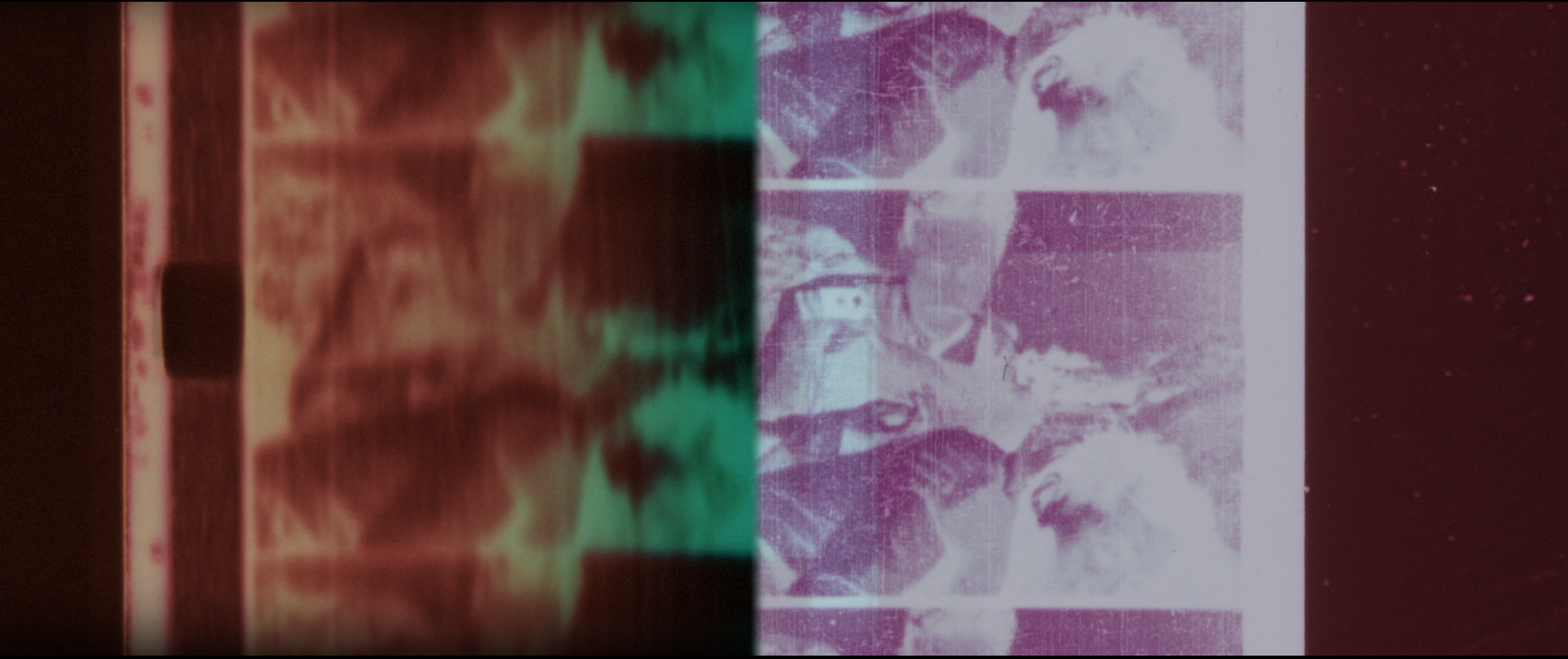
Peng Zuqiang – ‘Afternoon Hearsay’
Peng Zuqiang, ‘Afternoon Hearsay’, 2025 (film still). Super 8mm, 16mm and 35mm transferred to digital, with 5.1 surround sound. Commissioned by The Common Guild, Glasgow and the Rockbund Art Museum, Shanghai. Courtesy of the artist and Antenna Space.
‘Afternoon Hearsay’, the first solo exhibition by Peng Zuqiang in Scotland, centres on a new three-channel film installation of the same name, co-commissioned by The Common Guild and the Rockbund Art Museum, Shanghai.
The film, ‘Afternoon Hearsay’ (2025), is concerned with the nature of image-making and the ways in which cultural, historical and political narratives are shared and disseminated. It evokes a partial history of 8.75mm film stock: a film format unique to China, manufactured between the 1960s and 1980s.
Peng Zuqiang, ‘Afternoon Hearsay’, 2025. Installation view, The Common Guild, Glasgow, 2025. Photo: Ruth Clark.
A lightweight, portable film, exactly one quarter the width of 35mm stock, 8.75mm was used as a projection medium around remote and rural regions where mobile projection units (makeshift cinemas) brought educational and propogandist entertainment to communities beyond the city. A dedicated camera device was never created for the 8.75mm film, instead, this format relied on transfers from 35mm film, raising the central question of Peng’s work: What is a film without a camera?
Cameraless filmmaking techniques and legacies of structural filmmaking are at the centre of ‘Afternoon Hearsay’. Archival 8.75mm prints are photogrammed onto 16mm and 35mm colour negative print stock and woven together with contemporary Super 8 footage shot by Peng. By doing so, Peng creates images of film strips that merge, burn, and tear through chromatic space. Interlayered and overlapping images coalesce with fragments of optical sound and narratives from unnamed interlocutors. The installation conjures an ambiguous and expansive temporal space in which the boundaries of fact and fiction are indistinguishable and immaterial, whilst the solidity of memory is foregrounded through the sensorial materiality of film.
Peng Zuqiang, ‘Afternoon Hearsay’, 2025. Installation view, The Common Guild, Glasgow, 2025. Photo: Ruth Clark.
‘Afternoon Hearsay’ is pieced together from hearsay, rumour and the imagination. It is as much a story of alternative cinema spaces as a record of significant places and people erased by history and rapid change. Through his research and meditations on cameraless image-making and photochemical abstraction, Peng reflects on the violence, tragedy and suppression of truthful image circulation.
Accompanying ‘Afternoon Hearsay’ is ‘Déjà Vu’ (2023), an installation combining 16mm film projection, text, sound, and a small clay sculpture; ‘Autocorrects’ (2023), a video installation that plays with the format of a pop music video; and a new chromatic photographic print, ‘Untitled (second press #2)’ (2025).
Peng Zuqiang, ‘Déjà vu’ (2023). Installation view, The Common Guild, Glasgow, 2025. Photo: Ruth Clark.
About the artist /
Peng Zuqiang (b. 1992, Changsha, China) works with film, video and installation. Recent solo presentations include Fondazione Sandretto Re Rebaudengo, Turin (2023); Kevin Space, Vienna (2023); Cell Project Space, London (2022); E-Flux screening room, New York (2022); and Antenna-Tenna, Shanghai (2021). Group exhibitions and screenings include UCCA Beijing (2024); Times Museum, Guangzhou (2024); 22nd Biennial Sesc_Videobrasil, São Paulo (2023); The Physics Room, Christchurch (2023); CCA Berlin (2023); Alchemy Film and Moving Image Festival, Hawick, UK (2022) Schirn Kunsthalle, Frankfurt, Germany (2022); OCAT x KADIST Emerging Media Artist Program, OCAT, Shanghai (2022); Macalline Art Center (MACA), Beijing (2022); Times Art Center, Berlin (2021); and the International Documentary Film Festival Amsterdam (2020).
Peng graduated from the Rijksakademie van Beeldende Kunsten, Amsterdam in 2024, the School of the Art Institute of Chicago in 2017 and Goldsmiths, University of London in 2014. He is a recipient of the Present Future Prize at Artissima (2022), and the Dialog Award from EMAF Osnabrück (2023–24). Residencies and fellowships include Art Explora, Paris; Skowhegan, Maine; and the Core Program, Texas. He lives and works in between Amsterdam and Paris.
Further Info
Exhibition Details
‘Afternoon Hearsay’ took place at 5 Florence Street, G5 0YX.
Exhibition Guide
View the exhibition guide here
Read the Commentary by May Adadol Ingawanij –
Listen to an artist talk by Peng Zuqiang here -
‘Afternoon Hearsay’ is supported by the British Council’s Connections Through Culture grant programme. The work was produced by Lo schermo dell’arte with Centro per l’Arte Contemporanea Luigi Pecci with the support of the VISIO Production Fund.
Additional links
‘Afternoon Hearsay’ Exhibition Guide
Toby Üpson, ‘Afternoon Hearsay’, émergent magazine.
Bianca Stoppani, Review: ‘Peng Zuqiang “Afternoon Hearsay” The Common Guild Glasgow’, Flash Art.
Artforum China – Critics Picks, 28 October 2025.
‘Position Spaces __ Peng Zuqiang’, interview by Kinoki magazine, 22 August 2025.
‘Afternoon Hearsay’, E-flux Announcement, 8 October 2025.
Lai Fei, ‘Peng Zuqiang’, ArtReview Asia, winter 2025 issue.
Peng Zuqiang “Afternoon Hearsay” at The Common Guild, Glasgow, MOUSSE Magazine, 19 November 2025.
Related
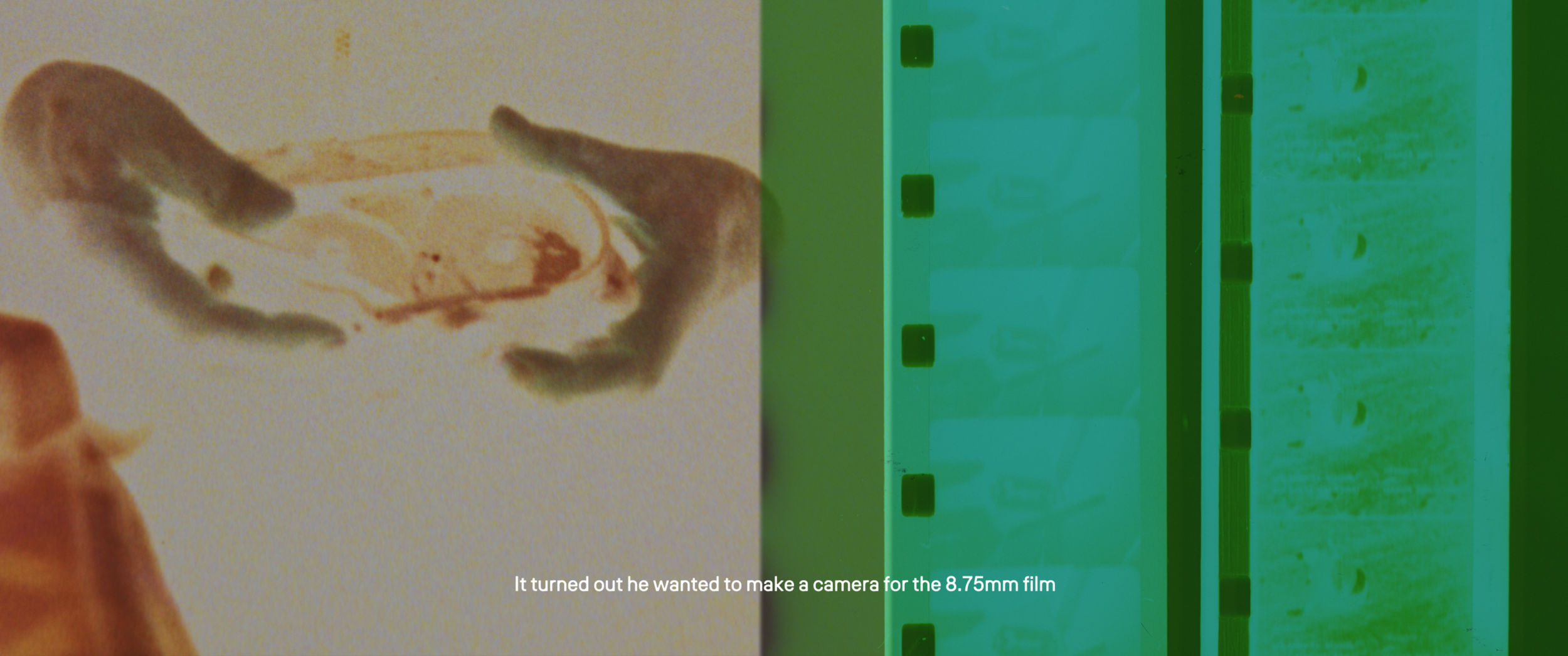
Artist Talk / Peng Zuqiang
Peng Zuqiang, ‘Afternoon Hearsay’ (2025). Film still. Courtesy of the artist and Antenna Space.
On the occasion of his first exhibition in Scotland, Peng Zuqiang will discuss his new film installation, ‘Afternoon Hearsay’ (2025), the accompanying exhibition of the same name, and the artist’s wider practice.
‘Afternoon Hearsay’ evokes a partial history of 8.75mm film stock: a film format unique to China, manufactured between the 1960s and 1980s. The film is concerned with the nature of image-making and the ways in which cultural, historical and political narratives are shared and disseminated.
Accompanying ‘Afternoon Hearsay’ is ‘Déjà Vu’ (2023), an installation combining 16mm film projection, text, sound, and a small clay sculpture; ‘Autocorrects’ (2023), a video installation that plays with the format of a pop music video; and a new chromatic photographic print, ‘Untitled (second press #2)’ (2025). The exhibited works meditate on cameraless filmmaking techniques, photochemical abstraction, and the legacies of structural filmmaking, raising the central question of Peng’s work: What is a film without a camera?
About the artist /
Peng Zuqiang (b. 1992, Changsha, China) works with film, video and installation. Recent solo presentations include Fondazione Sandretto Re Rebaudengo, Turin (2023); Kevin Space, Vienna (2023); Cell Project Space, London (2022); E-Flux screening room, New York (2022); and Antenna-Tenna, Shanghai (2021). Group exhibitions and screenings include UCCA Beijing (2024); Times Museum, Guangzhou (2024); 22nd Biennial Sesc_Videobrasil, São Paulo (2023); The Physics Room, Christchurch (2023); CCA Berlin (2023); Alchemy Film and Moving Image Festival, Hawick, UK (2022) Schirn Kunsthalle, Frankfurt, Germany (2022); OCAT x KADIST Emerging Media Artist Program, OCAT, Shanghai (2022); Macalline Art Center (MACA), Beijing (2022); Times Art Center, Berlin (2021); and the International Documentary Film Festival Amsterdam (2020).
Peng graduated from the Rijksakademie van Beeldende Kunsten, Amsterdam in 2024, the School of the Art Institute of Chicago in 2017 and Goldsmiths, University of London in 2014. He is a recipient of the Present Future Prize at Artissima (2022), and the Dialog Award from EMAF Osnabrück (2023–24). Residencies and fellowships include Art Explora, Paris; Skowhegan, Maine; and the Core Program, Texas. He lives and works in between Amsterdam and Paris.
Further Info
Event Details
The event took place in The Common Guild Library on the ground floor.
Listen a recording of the artist talk by Peng Zuqiang here -
‘Afternoon Hearsay’ is supported by the British Council’s Connections Through Culture grant programme. The work was produced by Lo schermo dell’arte with Centro per l’Arte Contemporanea Luigi Pecci with the support of the VISIO Production Fund.
Related

Library Session / Noor Abed with Natasha Soobramanien and Luke Williams
Book cover of Noor Abed’s 'Stars at Midday’ (2024).
Noor Abed will be joined in conversation with authors Natasha Soobramanien and Luke Williams on Abed’s book نجوم الضهر 'Stars at Midday’ (2024).
Stars At Midday, first published in October 2024, is Noor Abed’s personal diary from the production phase of 'A Night We Held Between’, the film she made in Palestine in 2023 with family and friends, screening at The Common Guild from Friday 26 to Saturday 27 September.
Compiling visual and poetic notes, Abed’s book, like her film, interweaves narrative fragments, song and diaristic observations, creating a fusion of spontaneous and choreographed sequences of movement, with documentary and fictional elements. Through a choreography of bodies, sites, stories, and temporalities, Abed’s work prompts contemplation on the manifestations of social action and resistance in everyday life in Palestine.
Luke Williams (left) and Natasha Soobramanien (right). Photo: Tori Ferenc.
To mark the book’s 2nd printing, writers Natasha Soobramanien and Luke Williams will be in conversation with Abed about her book, the role of writing in her practice, and storytelling as an act of resistance.
'Stars at Midday’ is published by Occasional Papers. Copies will be available during the event.
Natasha Soobramanien and Luke Williams are the authors of 'Diego Garcia’ (Fitzcarraldo Editions/ Semtiotext(e), which won The Goldsmiths Prize in 2022. In 2017, their chapbook, ‘Enn Gramaten’ was published by The Common Guild and Book Works as part of ‘Dialecty', a series conceived by Maria Fusco.
Event Details
Access
This event took place in the library and event space on the ground floor of 5 Florence Street.
Related

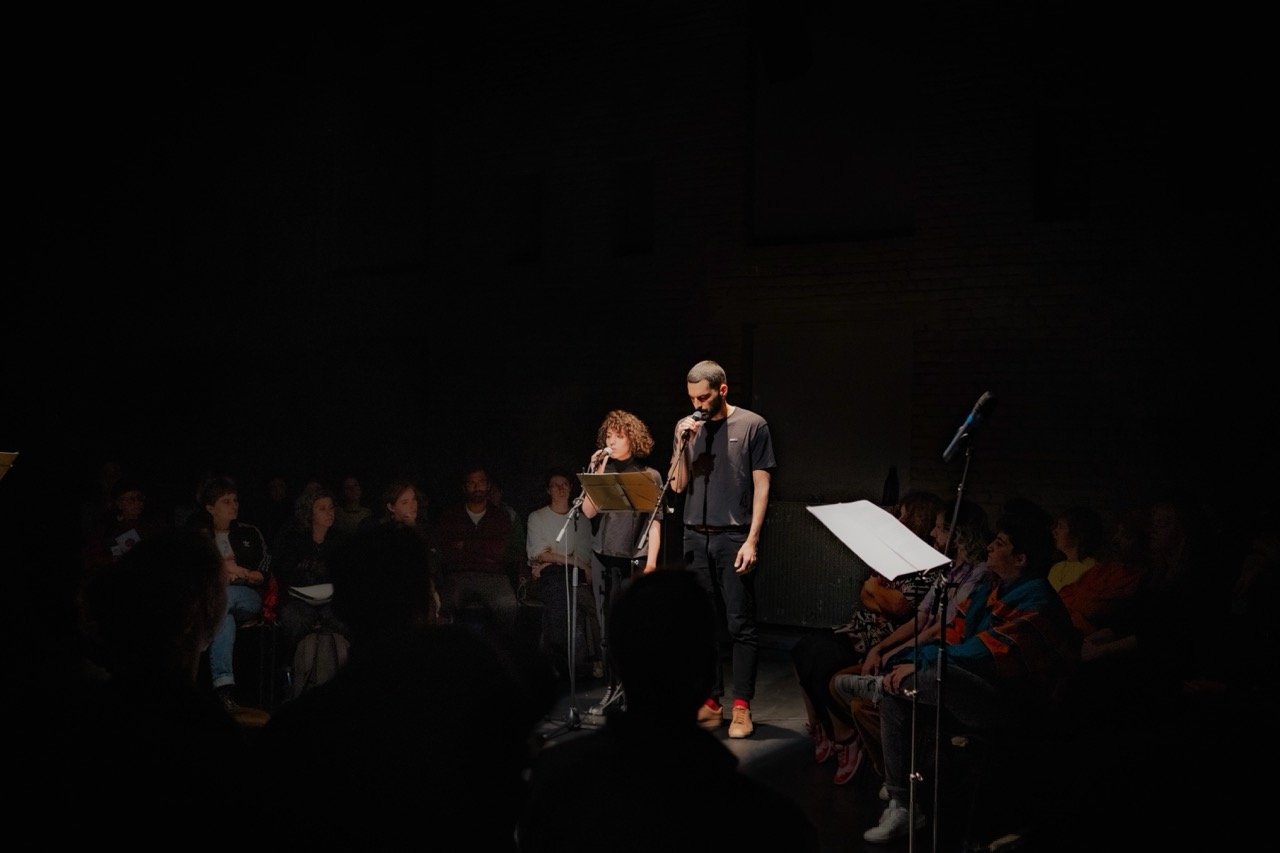
Noor Abed and Haig Aivazian – ‘Nothing will remain other than the thorn lodged in the throat of this world’
Noor Abed and Haig Aivazian, Mophradat Read the Room Festival, Kaaitheatre, Brussels. Photo credit: Rita Habib, 2024
"Don’t be sad. No one will manage to get rid of us. Palestine is a fish bone lodged in the world’s throat. No one will manage to swallow it. Don’t worry.”
– The last words of Wadih Sanbar, spoken to his son, the Palestinian historian and poet Elias Sanbar.
Noor Abed and Haig Aivazian enact a score composed of sound, text, and movement. Through a series of guttural sounds; gasps, coughs, hums and hisses, the pair organise the central themes of the text through various parts of their noses, mouths, larynxes, tracheae and lungs, each organ embodying and introducing a series of affective and textual registers.
Noor Abed and Haig Aivazian, ‘Nothing will remain other than the thorn lodged in the throat of this world’. Performance at The Common Guild, Glasgow (25 September, 2025). Photo: Alan Dimmick. Courtesy of the artists.
In an ongoing correspondence, Abed and Aivazian continue to exchange reflections including quotidian anecdotes, readings, poems, recordings of songs, and recitations. The performance enacts the active labour of remembering, re-enacting, restructuring, and reassembling elements from their correspondence as a way to grapple with a heightened historical moment, which is characterised by a peak in the constant hum of genocidal violence that has structured the artists’ respective trajectories.
Periodically prompting spectators to join in the sonic experience, Abed and Aivazian attempt to create a space of synchrony and action, where the audience becomes a vibrating resonance chamber, transformed into a disparate choir.
About the artists /
Noor Abed (Palestine) works at the intersection of performance and film, combining forms of the ‘staged’ and the ‘documentary’. Her practice examines notions of social choreographies and collective formations, searching through the connection between the notion of ‘synchrony’ and social action. In 2020, she co-founded, with Lara Khaldi, the School of Intrusions, an independent educational collective in Ramallah, Palestine. Abed was an assistant curator in documenta fifteen, Kassel (2021 – 22), and an artist in residence at the Rijksakademie in Amsterdam (2022 – 24). She was awarded the Han Nefkens Foundation/ Museu Tàpies Film Production Grant in 2022, and her film 'A Night We Held Between' was selected as a first-prize winner of the e-flux Film Award (2024). Abed's book 'Stars at Midday' was published by Occasional Papers in October 2024.
Haig Aivazian’s practice grapples with the metamorphic nature of 3 technologies: artificial light, computation and law. He examines ways in which the administration of light and darkness makes and unmakes persons and transforms material conditions of architecture and geography —how they are inhabited and moved through by humans, animals, objects, machines and other strange creatures. Aivazian was Artistic Director of Beirut Art Center (BAC) from 2020 to 2022, where he founded and edited thederivative.org.
Further Info
‘Nothing will remain other than the thorn lodged in the throat of this world’ was initially commissioned by Mophradat for Read the Room Festival, Kaaitheatre, Brussels 2024.
Event Details
Access
5 Florence Street has step free access and a lift.
Accessible toilets are available.
The nearest subway station is Bridge Street, a 14 minute walk away.
Due to the nature of the performance and the subjects covered, live captions will not accompany this event.
Related
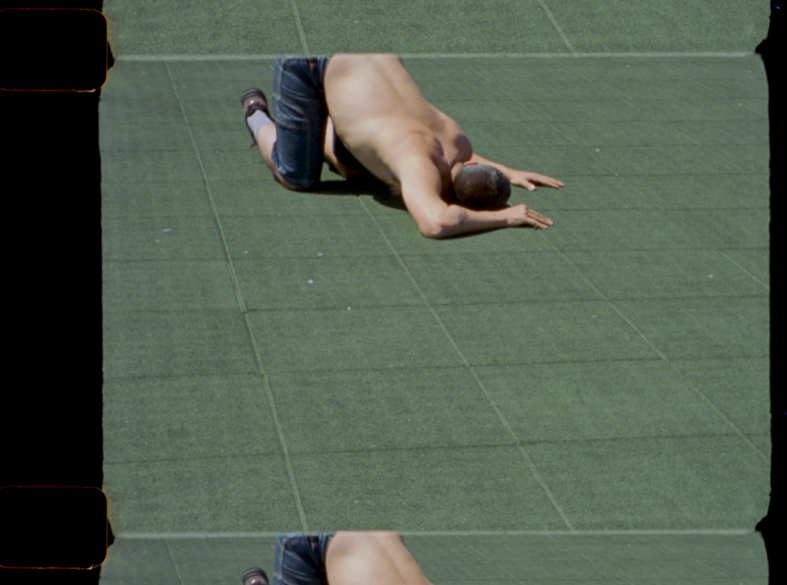
Hannan Jones and Samir Kennedy – ‘Relay’
Hannan Jones and Samir Kennedy, ‘Relay’ (2025). Performance at The Common Guild, Glasgow (13 September, 2025). Photo: Alan Dimmick. Courtesy of the artists.
‘Relay’ is the first iteration of a new live performance by Hannan Jones and Samir Kennedy using movement, sound and improvisation. Developed during a recent residency at Triangle, Marseille, ‘Relay’ explores edges and absence, and continuation and exhaustion through sonic looping, sound collage and combinations of improvised and choreographed gesture.
The performance meditates on the artists’ shared Algerian-British identities, testing ways in which to articulate and embody multiplicity and intersecting psychological states. Through movement and sound, Jones and Kennedy map temporal, sonic and geographical space, connecting points between Marseille and Glasgow (twinned cities), and shared histories that extend beyond the present.
Hannan Jones and Samir Kennedy, ‘Relay’ (2025). Performance at The Common Guild, Glasgow (13 September, 2025). Photo: Alan Dimmick. Courtesy of the artists.
Working with analogue equipment - specifically elongated reel-to-reel tape loops that are stretched through the space - Jones builds a multilayered soundscape that rhythmically returns, drops out and repeats on itself. Using contact microphones, Kennedy samples sounds made by the body in motion. In recurrent movements, and choreographic abstraction, Kennedy builds bodily narratives and an emotional progression that eventually reaches exhaustion. Together, the pair develop a cyclical exchange between sound and choreography, relaying back and forth within sonic space.
‘Relay’ articulates a sense of a constantly searching present: infinitely shifting, endlessly adrift and always propelling forwards. The performance tests the ways in which liveness can reveal thresholds of both vulnerability and resistance.
Ahead of the performance, Jones shares her recent sonic research developed during residencies in an Artist Talk on Wednesday 10 September.
Hannan Jones and Samir Kennedy, ‘Relay’ (2025). Performance at The Common Guild, Glasgow (13 September, 2025). Photo: Alan Dimmick. Courtesy of the artists.
About the artists /
Hannan Jones is an artist of Algerian and Welsh origin raised on Whadjuk Noongar Boodja, Western Australia, now based in Glasgow. Research-led and process driven, she practices at the intersections of moving-image, installation and sound.
Jones deep-dives into concepts of hybridity, language, and rhythms that are associated with cultural and social migration, and psychogeography. Sonically, Jones’ approach is rooted in improvisation, electronics, music concrète, and analogue recordings. Using samples and layering of audio material to create alternate possibilities, reclaim parallel histories, and reimagine connections between them. She is a graduate of the Sculpture and Environmental Art department at The Glasgow School of Art, and from 2020-2021 she was an Associate Artist of Open School East.
Previous presentations include Triangle, Marseille; Artes Mundi and the National Roman Legion Museum, Caerleon; CCA Annex; Cafe Oto, London; Edinburgh Art Festival; New Radicalisms, Rotterdam; Tate Lates, Tate Modern, London and REWIRE, The Hague and La Chunky, Glasgow. Hannan is a 2023 Oram Award winner and at present she is resident at Wysing Arts Centre.
Samir Kennedy is a queer British/Algerian artist based in Marseille working at the intersections of choreography, performance, sound and video. He discovered performance through a choir concert at primary school, when a voice came out of his mouth that seemingly wasn’t his own. He quickly moved on to musical theatre, finding contemporary dance where he finished his studies at Laban, UK in 2013, eventually graduating from the MA EXERCE programme at the Centre Chorégraphique National de Montpellier in 2023.
Since then Kennedy has established a diverse, interdisciplinary practice, working internationally across a range of contexts and roles: as performer, choreographer, director, sound designer and dramaturg working in established theatre venues, underground, experimental spaces, clubs and galleries.
His work engages critically with themes of class, race, otherness, queerness, and abjection, centring the body as a site from which to explore and subvert the deployment of archetypal figures—such as the devil, the zombie, and the clown. He interrogates collective consciousness and cultural symbolism, using these figures as frameworks to examine intersectional identities. His approach blends aestheticised sociological markers with speculative narratives, destabilising conventional representations and proposing alternative realities in which queer existentialism and liminal identities can be explored and reimagined. His formal interests are diverse and reflect the needs of each project but can be always understood as choreographic in their treatment of aural, visual and temporal fields.
Further Info
‘Relay’ is supported by Wysing Arts Centre.
Event Details
Access
The performance took place on the ground floor.
5 Florence Street has step free access and a lift.
Accessible toilets are available.
The nearest subway station is Bridge Street, a 14 minute walk away.
Related

Artist Talk / Hannan Jones
Hannan Jones. Courtesy of the artist. Photo: Camille Ramanana Rahary.
Hannan Jones works with electronic sound and rhythm to create sonic environments connected to plural identity, shared and personal history, and psychogeographic locatedness.
Ahead of her performance ‘Relay’ with Samir Kennedy, Jones shares her recent sonic research, developed during residencies at both Triangle, Marseille and Wysing Arts Centre, Cambridgeshire, a continued line of enquiry that was initiated by an invitation to participate in a 2022 Roundtable Conversation at The Common Guild.
Hannan Jones is an artist of Algerian and Welsh origin raised on Whadjuk Noongar Boodja, Western Australia, now based in Glasgow. Research-led and process driven, she practices at the intersections of moving-image, installation and sound.
Jones deep-dives into concepts of hybridity, language, and rhythms that are associated with cultural and social migration, and psychogeography. Sonically, Jones’ approach is rooted in improvisation, electronics, music concrète, and analogue recordings. Using samples and layering of audio material to create alternate possibilities, reclaim parallel histories, and reimagine connections between them. She is a graduate of the Sculpture and Environmental Art department at The Glasgow School of Art, and from 2020-2021 she was an Associate Artist of Open School East.
Previous presentations include Triangle, Marseille; Artes Mundi and the National Roman Legion Museum, Caerleon; CCA Annex; Cafe Oto, London; Edinburgh Art Festival; New Radicalisms, Rotterdam; Tate Lates, Tate Modern, London and REWIRE, The Hague and La Chunky, Glasgow. Hannan is a 2023 Oram Award winner and at present she is resident at Wysing Arts Centre.
Event Details
Access
The talk took place in The Common Guild’s library space on the ground floor of 5 Florence Street.
5 Florence Street has step free access and a lift.
Accessible toilets are available.
The nearest subway station is Bridge Street, a 14 minute walk away.
Related
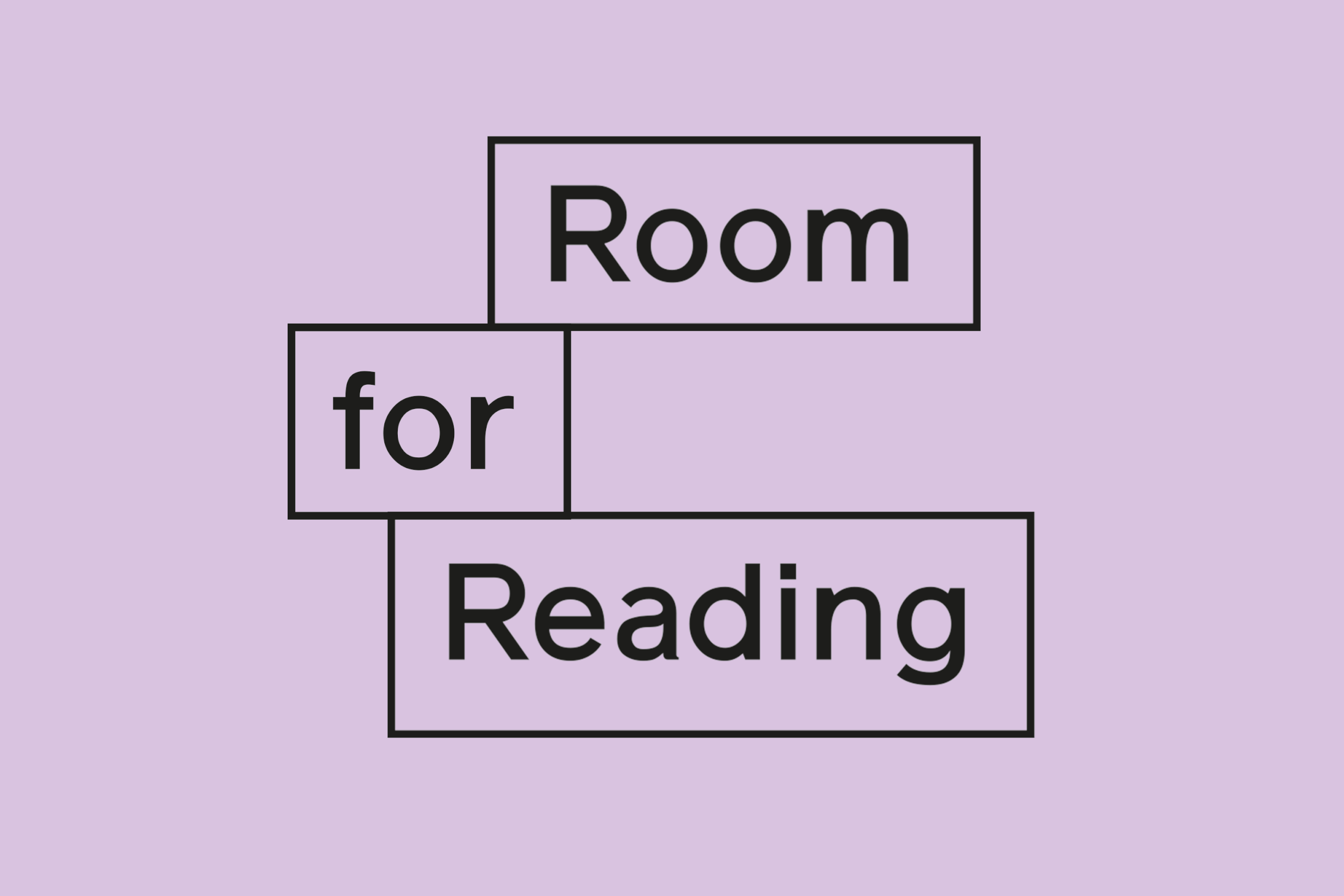
Room for Reading / Hannan Jones and Samir Kennedy
Design: Maeve Redmond
Our Room for Reading offers further reading and recommendations directly from the artists included in our September events programme. Visit our library at Florence Street to browse their selections.
Hannan Jones
‘Acoustic Justice: Listening, Performativity and the Work of Reorientation’(2020)by Brandon LaBelle
‘Acoustic Justice: Listening, Performativity and the Work of Reorientation’ by Brandon LaBelle
“Recently, since I have been travelling, it has been somewhat light magazines, and zines but also moving slowly through this book, I really have enjoyed having these with me. A recent read, with my favourite chapters being Poetic Ecologises: Resonance, Imagination, Repair and Skin-Work: Queer Acoustics, Borderspaces, Economies of Desire."
Listen to Brandon LaBelle on Acoustic Justice here.
The Funambulist Magazine, Issue 58.
The Funambulist Magazine
“A magazine of Politics of Space and Bodies is an essential publication, it is compelling and full of multiple voices. This source I return to constantly, as part of specific research interests that map cultural and social migration but simultaneously because it is relevant, consistently challenging and expanding assumptions by drawing lines between complex power structures and humanities in a live, and responsive format.
The magazine hopes to 'provide a useful platform where activist/academic/practitioner voices can meet and build solidarities across geographical scales. Through articles, interviews, artworks, and design projects, we are assembling an ongoing archive for anticolonial, antiracist, queer, and feminist struggles', ”
Listen to The Funambulist’s podcast here.
“It's 6:18 In the morning, I got woken up by the Adhan a few minutes ago” (2024) by Nesrine Salem and "Un Scorpion Dans L'Épicerie" (2025) by Lydia Amarouche
“It's 6:18 In the morning, I got woken up by the Adhan a few minutes ago” (2024) by Nesrine Salem and "Un Scorpion Dans L'Épicerie" (2025) by Lydia Amarouche
"Ṣabr does not mean surrendering to life as it is, but accepting our realities while confronting them in a way that is possible on our scale, with the conviction that positive things will result. Ṣabr is an indispensable principle of activism in the current state of the world, a capitalist and white imperialist world."
“I chose these specific titles because they hold intimacy and depth, they are free flowing and feel as if you are entering a diary or a fragmented conversation collapsing in time. Nesrine Salem meditates on the textures of everyday tasks, prayer, family, thoughts, her relationship with Algeria and moments that are timely in her thoughts, the relation to geography, colonialism, especially in Gaza and Algeria. It traces moments with a specific pace and tempo of thoughts I can relate too, somewhat drifting between constellating inner worlds and outer realities.
I met with Nesrine, at a book fair in Marseille whilst on residency. She explained how she began this series of SABR Collection by inviting artists, practitioners to express themselves through creative writing. In Lydia Amarouche's writing she is mapping multiple moments interweaving the Scorpion as a driving force between territories, time and places. Beautiful!”
Samir Kennedy
‘Out of the Shadows: The Psychology of Gay Men’s Lives’ (2019) by Walt Odets
Kennedy’s first recommendation is ‘Out of the Shadows: The Psychology of Gay Men’s Lives’ by Walt Odets. Drawing on a lifetime's work as a clinical psychologist, Walt Odets uses the stories of his patients as well as the stories of his own deep relationships with other gay men to illuminate the difficulties gay men face and how they may be overcome.
Listen to Odets speak about his book here.
‘The Weird and the Eerie’ (2016) by Mark Fisher
In this book of essays, noted cultural critic Mark Fisher argues that a proper understanding of the human condition requires examination of transitory concepts such as the Weird and the Eerie. Using examples drawn from a wide range of literature, film, and music references—from H.P. Lovecraft and Daphne Du Maurier to Stanley Kubrick and Christopher Nolan, Fisher invites us to think beyond the realm of Horror in our understanding of these concepts.
Read a pdf of ‘The Weird and the Eerie’ here.
Details
In conjunction with our projects, exhibitions and events, Room for Reading offers artists we work with an opportunity to contribute to The Common Guild library and share the books and resources that have influenced their artistic practice.
Every artist’s selection is added to The Common Guild’s expansive reference library of artist books, catalogues, and cultural and critical theory.
Visit
The Library is open Wednesday – Saturday from 12–5pm during exhibitions.
Free refreshments, including tea and coffee are available.
Browse
Browse our library catalogue online here.
Related

Room for Reading / Noor Abed and Haig Aivazian
Design: Maeve Redmond
Our Room for Reading offers further reading and recommendations directly from the artists included in our September events programme. Visit our library at Florence Street to browse their selections.
Noor Abed
Noor Abed, ‘Stars at Midday’, 2024
Published by Occasional Papers, Stars at Midday (2024) is a personal production diary in which artist and filmmaker Noor Abed compiles visual and poetic notes from the production phase of her film A Night We Held Between, filmed in Palestine in 2023 with family and friends. Like the film whose production it chronicles, the book interweaves narrative fragments, song and diaristic observations, creating a fusion of spontaneous and choreographed sequences of movement, with documentary and fictional elements. Through a choreography of bodies, sites, stories, and temporalities, Abed’s work prompts contemplation on the manifestations of social action and resistance in everyday life.
Details
In conjunction with our projects, exhibitions and events, Room for Reading offers artists we work with an opportunity to contribute to The Common Guild library and share the books and resources that have influenced their artistic practice.
Every artist’s selection is added to The Common Guild’s expansive reference library of artist books, catalogues, and cultural and critical theory.
Visit
The Library is open Wednesday – Saturday from 12–5pm during exhibitions.
Free refreshments, including tea and coffee are available.
Browse
Browse our library catalogue online here.
Related

Library Session / Onyeka Igwe – ‘June Givanni: The Making of a Pan-African Cinema Archive’ Book Launch
Artist Onyeka Igwe is launching her first book, ‘June Givanni: The Making of a Pan-African Cinema Archive’, published by Lawrence Wishart.
The book is a journey through the archive of curator and film programmer, June Givanni, a key figure in Pan-African and Black British cinema. Using original oral history research, Igwe uncovers the important role women festival organisers have played in Pan-African cinema history, conceptualising Givanni’s practice as a radical feminist counter archive. Igwe – one of the artists whose work featured in our ‘anywhere in the universe’ project across public libraries in 2023 – will be in conversation with film programmer Abiba Coulibaly.
Photo: Yasmin Akim
Onyeka Igwe is a London-born and based, moving image artist and researcher. Her work is aimed at the question: “how do we live together?”, not to provide a rigid answer as such, but to pull apart the nuances of mutuality, co-existence and multiplicity. Igwe’s practice figures sensorial, spatial and counter-hegemonic ways of knowing as central to that task.
Abiba Coulibaly is an independent film programmer with a background in critical geography, interested in exploring the intersection of ethics and aesthetics. She has previously worked as Programming Assistant at the BFI, is currently part of the programming team for Open City Documentary Festival and has facilitated the UK premiere of several radical and experimental documentaries from the African continent. She is the founder of Brixton Community Cinema and film cooperative Atlas Cinema, two ongoing experiments in what democratising access to cinema – as both a medium and space – could look like. In September 2024 she joined the Royal College of Art's School of Architecture as an Associate Lecturer, continuing to integrate her film practice with questions of spatial and civic equity.
Event Details
Access
This event took place in the library and event space on the ground floor of 5 Florence Street.
The building has step free access and a lift.
Accessible toilets are available.
The nearest subway station is Bridge Street, a 14 minute walk away.
Related

Room for Reading / ‘Myths of the new future’
Design: Maeve Redmond
Our Room for Reading offers further reading and recommendations directly from the artists included in ‘Myths of the new future’. Visit our library at Florence Street during the exhibition to browse their selections.
Taysir Batniji
Taysir Batniji, ‘Disruptions’(2024)
In ‘Disruptions’ (2024), Taysir Batniji collects fragmented screenshots taken between 24 April 2015 and 23 June 2017 during several WhatsApp video conversations with his mother and family in Gaza. Settled in Europe and unable to return to his homeland for years, this digital commons provided a crucial meeting ground for Batniji and his family: a digital space nonetheless shaped and destabilised by the same forces affecting the artist’s relatives in everyday life.
Hans Belting, ‘Florence and Baghdad: Renaissance Art and Arab Science’(2011) and Andrey Tarkovsky, ‘Time Within Time: Diaries 1970-1986’(2019).
By Palestinian poet Mahmoud Darwish, Taysir Batniji selects ‘Memory of Forgetfulness’ (1982, English translation, 1995) “I always had the feeling that he was the poet who expresses in words what I try to express with forms” says Batniji.
Read ‘Memory of Forgetfulness’ here.
He also selects Palestinian novelist, Akram Musallam’s ‘The Dance of Deep-Blue Scorpion’ (2021). “There is a lot of “(auto)derision in this book” says Batniji, “and a strong artistic dimension through the figure of the father who has lost his leg accidentally. This missing leg, and emptiness / absence in general, becomes a metaphor for Palestinian loss and dispossession.”
In French, Batniji selects ‘Diplopie’ (2009) by curator and photograhy historian, Clément Chéroux and Arlette Khoury-Tadié, 'Une enfance à Gaza (1942-1958)' (2002). Batniji says "the author describes a period which ends few years before my birth. Reading this story captured the reality of Gaza with far more clarity than I had understood it in my mind before".
Also in French, is Edward W. Saïd and Seloua Luste Boulbina, 'Dans l'ombre de l'Occident / Les Arabes peuvent-ils parler?' ('In the Shadow of the West / Can Arabs Speak?') (2011). Watch ‘The Shadow of the West’ written by Edward Said and directed by Geoff Dunlop here and read an interview with Seloua Luste Boulbina here.
By Hans Belting, ‘Florence and Baghdad: Renaissance Art and Arab Science’ (2011) and ‘Time Within Time: Diaries 1970-1986’ by Andrey Tarkovsky (2019). Belting’s book examines the use of perspective in Renaissance painting and its mathematical origins in Baghdad in the eleventh century, exploring the ramifications this has had on how we as viewers look at art in the present day.
‘Time within Time’ is both a diary and a notebook, maintained by Tarkovsky from 1970 until his death. Intense and intimate, it offers reflections on Dostoyevsky, Tolstoy, Hermann Hesse, Thomas Mann, and others. Batniji describes Tarkovsky’s diaries as “powerful testimony full of poetry…and the strong determination to pursue writing and filming despite censorship, restrictions and disease”. Read it here.
Dora Budor
Dora Budor,‘Continent’ (2023).
Dora Budor’s ‘Continent’ (2023) assembles materials relating to the exhibition of the same name at Kunsthaus Bregenz in 2022. The publication provides different perspectives on the project while also acting as an autonomous object within Budor’s broader body of work. Central to the book are four texts that elaborate on the exhibition in different ways by curator and writer Richard Birkett, Amelia Groom, architect and historian Robin Evans Budo, and the director of Kunsthaus Bregenz, Thomas D. Trummer.
Jesse Darling
Jesse Darling, ‘VIRGINS’ (2021)
‘VIRGINS’ (2021)is Darling’s first chapbook, a collection of poetry published by London based publishers Monitor Books. Described by Anne Boyer as “poems [that] sing from the scrappy corners where life still lives”, ‘VIRGINS’ brings stories of a cast of characters and presents them here as snappy vignettes.
M.E. O’Brien & Eman Abdelhadi,‘Everything for Everyone: An Oral History of the New York Commune 2052-2072’ (2022) and John Berger, ‘Hold Everything Dear: Dispatches on Survival and Resistance’ (2005).
Darling also recommends two books for our Room for Reading: ‘Everything for Everyone: An Oral History of the New York Commune 2052-2072’ (2022) by M.E. O’Brien & Eman Abdelhadi and ‘John Berger’s – Hold Everything Dear: Dispatches on Survival and Resistance’ (2005).
‘Everything for Everyone’ is a speculative fiction novel, imagining interviews with revolutionaries in a not-so distant future. Their stories outline how ordinary people's efforts to survive in the face of crisis contain the seeds of a new world.
A collection of essays by the English writer and painter John Berger, ‘Hold Everything Dear’ reflects on the political at the core of artistic expression and at the centre of human existence . The essays ponder the traumas of various conflicts at the start of the 21st century, meditating on the far extremes of human behaviour.
P. Staff
Derek Jarman, ‘Chroma’(1994), Johanna Hedva, ‘On Hell’ (2021) and Rosie Stockton, ‘Fuel’ (2025).
“Nocturnal sick bed missives, oil fields, Dungeness, black tar, broken bodies, feathers, hacking, freedom, domination, longing; domesticity and love, and the third house to the ninth house, kissing, sexting; colours of grief, blushes of apocalypse, blindness; i need unbroken speech. revolutionary letters. first hand accounts, temoignage, martyrs. violent systems of love.”
P. Staff
P. Staff selects Derek Jarman’s ‘Chroma’ (1994); ‘On Hell’ by Johanna Hedva (2021) and ‘Fuel’ by Rosie Stockton (2025).
Written a year before Jarman’s death, and as his eyesight was failing, ‘Chroma’ is an intensely personal work exploring the uses of colour from the medieval to the modern, with evocative memories from Jarman’s life. ‘On Hell’ by Johanna Hedva tells the story of an ex-con whose body is broken by American empire. It is a novel about escaping and the myths that trick and resist totalitarianism. In ‘Fuel’, Rosie Stockton showcases capitalism’s quiet shaping of our day-to-day lives. Exploring themes of labor, desire, gender, and loss, Stockton’s poems trace the emotions and structures that define us.
Read Johanna Hedva on P. Staff here.
P. Staff, ‘The Foundation’ (2015).
Published following Staff’s installation ‘The Foundation’ (a touring exhibition at Chisenhale Gallery, London; Spike Island, Bristol; Contemporary Art Gallery, Vancouver; and the Institute of Modern Art, Brisbane), this book, published in 2015, documents the eponymous work by Staff - a film installation exploring queer intergenerational relationships negotiated through historical materials and shot at the Tom of Finland Foundation in Los Angeles.
Details
In conjunction with our projects, exhibitions and events, Room for Reading offers artists we work with an opportunity to contribute to The Common Guild library and share the books and resources that have influenced their artistic practice.
Every artist’s selection is added to The Common Guild’s expansive reference library of artist books, catalogues, and cultural and critical theory.
Visit
The Library is open Wednesday – Saturday from 12–5pm during exhibitions.
Free refreshments, including tea and coffee are available.
Browse
Browse our library catalogue online here.
Related

‘Myths of the new future’ – Taysir Batniji, Dora Budor, Jesse Darling, Agnieszka Kurant, P. Staff
Design: Tom Joyes
“Blessings are difficult to imagine. More palpable is our technofuture bleeding rapidly into the technopresent”.
‘Myths of the new future’ is an exhibition that brings together the work of five artists who, in varying and distinct ways, address psychosocial tensions in present-day urban life. Identifying a particularly anxious, unstable, and incoherent texture to our late-capitalist period, ‘Myths of the new future’ circulates around the question of how it feels to be alive now, through experimental and conceptual works in sculpture, video, drawing, poetry and photography. The artists involved offer propositions that explore affective states, emotional intensities and the unsettling character of our urban social sphere today.
‘Myths of the new future’ installation view (including Agnieszka Kurant and Jesse Darling) The Common Guild, Glasgow, 2025. Photo: Ruth Clark.
Drawing on the title of a 1982 short story by J. G. Ballard (1930–2009), the exhibition evokes many ‘Ballardian’ tropes: hostile architectures, corporate control, maleficent technologies, civil collapse, a social body motivated by brutality and desire – making connections with the material conditions of the present.
With an awareness of the forces that shape our psychic experience, artists point towards a host of mental aggressors that fuel nervous states: ecological crises and war; volatile sociopolitical contexts and faltering neoliberal democracies; competing digital hegemonies and the bewildering immediacy of the ‘technopresent’. Artists make visible their feelings of estrangement within this continuum, and by doing so, call into question normative ways of living and being. Exposing the deepening cracks appearing across society, their work demonstrates the precariousness of the constructed urban world whilst opening up space for the emergence of other possible trajectories and innumerable futures.
P.Staff, ‘In Ekstase’ (2023). Presented as part of ‘Myths of the new future’, The Common Guild, Glasgow, 2025. Courtesy of the artist. Photo: Ruth Clark.
‘Myths of the new future’ unfolds across familiar territories: privatised urban landscapes, mediated commercial environments, bureaucratic centres, and disembodied digital platforms. Artists work to subvert these frictionless spaces, deploying dark humour, asserting bodily sensation and cultivating a heightened sense of surrealism. By performing minor acts of vandalism or else picking through the man-made debris of the Anthropocene, artists find new, defiant ways of disrupting the rhythms of normal life and revelling in the generative potential of collapse. In this way, ‘Myths of the new future’ may be understood as a speculative mythology for a fast-approaching new future.
Dora Budor, ‘Lifelike’ (2024). Installation view ‘Myths of the new future’, The Common Guild, Glasgow, 2025. Courtesy of the artist. Photo: Ruth Clark.
About the artists /
Taysir Batniji's practice draws on the artist's personal biography and the turbulence of history and the present. His multidisciplinary practice – drawing, installation, sculpture, performance, photography and video – has a metaphorical, poetic dimension. Through his exploration of the private and the public spheres, of displacement and obstruction, memory and disappearance, Taysir Batniji presents a shifting definition of his own identity, which has been shaped geographically and culturally by both the Middle East and the West.
Batniji (b. Gaza, Palestine) has presented solo exhibitions at Mathaf, Qatar (2022); MAC VAL, Paris (2021); Les Rencontres d’Arles (2018); Aperture Foundation, New York (2018); Contemporary Art Space André Malraux, Colmar (2016); and Marseille/Provence (2013). Selected group exhibitions include: Lyon Biennale (2024); Berlin Biennale (2022); MAC VAL and Jeu de Paume, Paris (2019); Center Pompidou (2014); Istanbul Biennale (2011); and the Venice Biennale (2011, 2009, 2003). Batniji graduated from at Al Najah University, Nablus, Palestine, and the School of Arts, Bourges, France.
Jesse Darling (b. Oxford, UK) is an interdisciplinary artist, poet, theorist, curator, mentor and teacher. One of the most influential British artists working today, he is best known for his disruptive, humorous and empathetic sculptural installations which repurpose familiar objects, creating strange and uncanny encounters. Recent works stand as the ruined relics of crumbling empires, picking up on how the (aesthetic and symbolic) pillars of (what understands itself as) western civilization converge around ideologies of the border and exclusion.
Selected solo exhibitions include Petit Palais, Art Basel Paris (2024); Turner Prize, The Towner, UK (2023); Camden Arts Centre, London (2022), Modern Art Oxford, UK (2022), Kunstverein Freiburg, Germany (2022), Triangle France Astérides (2019), and Tate Britain (2018—2019). Recent group exhibitions include Palais de Tokyo (2023), CAPC Bordeaux (2022), Schirn Kunsthalle Frankfurt (2022), and Staatsgalerie Stuttgart (2021). Darling also participated in the 58th Venice Biennale (2019), and was the winner of the Turner Prize 2023.
Through context-specific sculptures and installations, Dora Budor positions our built environment as system with complex inner workings. She approaches these psychosocial complexities of architecture and institutions as structures that metabolize their political, cultural, and historical contexts. As such, her work is often concerned with homing in on the border between interiority and exteriority and choreographing slippages and reversals of this partition.
Budor (b. Zagreb, Croatia) is an artist and writer based in New York. She has presented solo exhibitions at Nottingham Contemporary, UK (2024); Galerie Molitor, Berlin (2023); Kunsthaus Bregenz, Austria (2022), GAMeC Bergamo (2022), Progetto (2021) and Kunsthalle Basel, Switzerland (2019). Recent group exhibitions include Centre Pompidou, Kunstmuseum Liechtenstein, Bergen Kunsthall, Norway, and MoMA PS1, New York. Her work has been featured in major international exhibitions, most recently the Whitney Biennial, New York (2024), the 15th Gwangju Biennale (2024), and the 59th Venice Biennale (2022).
Through her experimental and conceptual work, Agnieszka Kurant draws on new technologies, scientific research, economics and digital capitalism to explore forms of late capitalism and examine notions of futurity and risk. Working with artificial intelligence, data analysis and the fields of climatology, microbiology, finance and statistics, Kurant creates works that are intrinsically unstable, and undermine any notions of human determinism.
Kurant (b. Łódź, Poland) has presented solo exhibitions at Mudam, Luxemburg (2024); Kunstverein Hannover (2023); Castello di Rivoli, Turin (2022) and at the Sculpture Center, New York (2013). Her work was featured in the Gwangju Biennial (2024), Sydney Biennial (2024); Centre Pompidou, Paris (2024); Gropius Bau, Berlin (2024); Louisiana Museum, Denmark (2023); Museum of Modern Art, New York (2021); and Istanbul Biennial (2019). In 2021–22 Kurant realised a permanent commission for the MIT List Visual Arts Center, Cambridge and in 2015 a commission for the façade of the Solomon R. Guggenheim Museum, New York.
At the intersection of film, installation, and poetry, P. Staff’s interdisciplinary practice weaves theoretical phenomena, experimental media, and staged environments, through which they dissect themes ranging from biopolitics to trans-poetics, astrology, dance, and end-of-life care. Their work pulses with a fascination for how bodies – particularly those of people who are queer, trans, or disabled – are interpreted, regulated, and disciplined within societies.
P. Staff (b. Bognor Regis, UK) received their BA from Goldsmiths College, London and participated in the LUX Associate Artist Programme, London. Staff has presented solo exhibitions at Ordet, Milan (2024); Kunsthalle Basel (2023); Commonwealth and Council, Los Angeles (2022); LUMA, Arles (2021); Institute of Contemporary Art, Shanghai (2020); Serpentine Galleries, London (2019). They have been featured in group exhibitions at Del Vaz Projects, Santa Monica (2025); the Whitney Biennial, New York (2024); 59th Venice Biennale (2022); 13th Shanghai Biennale (2021); Walker Art Center, Minneapolis (2019); and Hammer Museum, Los Angeles (2018).
Related

EVENT CANCELLED / Artist Talk / Taysir Batniji
Image: Taysir Batniji, ‘Just in Case #2’, 2024. Courtesy of the artist and Sfeir-Semler Gallery Beirut/Hamburg
We are sorry to advise that this talk is cancelled.
This is due to recently introduced EU-UK travel requirements, which meant he was not able to travel as planned. We hope to bring Taysir to Glasgow at a later date, so please look out for details in our newsletter.
In the context of new exhibition ‘Myths of the new future’, artist Taysir Batniji will introduce his multi-media practice, in relation to ‘Disruptions’ (2015–17) on display in the exhibition.
Taysir Batniji's practice draws on the artist's personal biography and the turbulence of history and the present. His multidisciplinary practice – drawing, installation, sculpture, performance, photography and video – has a metaphorical, poetic dimension. Through his exploration of the private and the public spheres, of displacement and obstruction, memory and disappearance, Taysir Batniji presents a shifting definition of his own identity, which has been shaped geographically and culturally by both the Middle East and the West.
Batniji (b. Gaza, Palestine) has presented solo exhibitions at Mathaf, Qatar (2022); MAC VAL, Paris (2021); Les Rencontres d’Arles (2018); Aperture Foundation, New York (2018); Contemporary Art Space André Malraux, Colmar (2016); and Marseille/Provence (2013). Selected group exhibitions include: Lyon Biennale (2024); Berlin Biennale (2022); MAC VAL and Jeu de Paume, Paris (2019); Center Pompidou (2014); Istanbul Biennale (2011); and the Venice Biennale (2011, 2009, 2003). Batniji graduated from at Al Najah University, Nablus, Palestine, and the School of Arts, Bourges, France.
Event Details
Saturday 17 May, 12–1pm
Tickets
Free, book in advance here
Access
This event takes place in the library and event space on the ground floor of 5 Florence Street.
The building has step free access and a lift.
Accessible toilets are available.
The nearest subway station is Bridge Street, a 14 minute walk away.
Related

Library Session / Gracie Mae Bradley and Hannah Proctor
‘Grenfell’, Steve McQueen, Installation view.Photo by Richard-Ivey
Following the recent screening of Steve McQueen’s ‘Grenfell’ in Glasgow, this session brings together perspectives on how art can act as a memorial, support visibility, and make demands for justice. Starting from McQueen’s intention that the Grenfell tragedy would not be forgotten, this event seeks to reflect on how art engages with real world tragedies and how it might offer spaces for grief, mourning and remembrance.
Gracie Mae Bradley is a writer and human rights expert. She is the co-author of ‘Against Borders’ (Verso 2022) and the essay ‘From Grenfell to Windrush’ (OpenDemocracy/Pluto Press), among other writings. She is former Director of ‘Liberty’ and ‘Grenfell Testimony Week’, and a James McCune Smith scholar at the University of Glasgow.
Hannah Proctor holds a Wellcome Trust University Award at the University of Strathclyde in Glasgow. Her book ‘Burnout: The Emotional Experience of Political Defeat’ (2024) is published by Verso. She is a member of the editorial collective behind Radical Philosophy, is contributing editor at Parapraxis and in addition to those publications has been published in Tribune', Art Review, The Baffler, Boston Review, Another Gaze and elsewhere.
Additional Links
Gracie Mae Bradley ‘From Grenfell to Windrush, state racism kills – sometimes quickly, sometimes slowly’, Open Democracy, 19 June 2019.
Event Details
Access
This event took place in the library and event space on the ground floor of 5 Florence Street.
The building has step free access and a lift.
Accessible toilets are available.
The nearest subway station is Bridge Street, a 14 minute walk away.
Related

Library Session / Charlie Porter – ‘Nova Scotia House’ Book Launch
Join us for the launch of ‘Nova Scotia House’ by Charlie Porter, the writer’s first work of fiction.
'Nova Scotia House' takes us to the heart of a relationship, a community and an era. It is both a love story and a lament; bearing witness to the enduring pain of the AIDS pandemic and honouring the joys and creativity of queer life. Intimate, visionary, and profoundly original, it marks the debut of a vibrant new voice in contemporary fiction, and a writer with a liberating new story to tell.
Porter will be joined in conversation by Steven Grainger.
Image Credit: Sarah Lee
Charlie Porter is a London-based writer, fashion critic and curator. He is the author of 'Bring no Clothes: Bloomsbury and the Philosophy of Fashion' (2023) and 'What Artists Wear' (2021) both published by Penguin. Porter co-runs the London queer rave Chapter 10, and is a trustee of the Friends of Arnold Circus, where he is also a volunteer gardener.
Steven Grainger is an artist, researcher, and lecturer in Fine Art at City of Glasgow College. His site-specific project, ‘Power from Things Not Declared’ mapping significant locations in Glasgow’s queer cultural history, is currently presented in locations around the city.
Event Details
Thursday 3rd April, 6-8pm
Related

Room for Reading / Grenfell Foundation
Design: Maeve Redmond
This month’s books for our ‘Room for Reading’ have been recommended by the Grenfell Foundation, in conjunction with the presentation of Steve McQueen’s ‘Grenfell’ (2019) at Tramway from 8th – 23rd March.
‘Gold & Ashes’ (2022) by Feruza Afewerki
‘Gold & Ashes’ (2022) by Feruza Afewerki
‘Gold & Ashes’ is a collection of photo stories of the local community of survivors and bereaved from Grenfell. Shot over 2 years, this affecting and poignant book - released on the 5th anniversary of the tragedy - highlights the true stories, the humanity and courage of the Grenfell community. All profits from book sales go to the Grenfell Foundation.
‘Show Me the Bodies: How We Let Grenfell Happen’ (2022) by Peter Apps
‘Show Me the Bodies: How We Let Grenfell Happen’ (2022) by Peter Apps
Peter Apps meticulously exposes how a steady stream of deregulation, corporate greed and institutional indifference caused a tragedy. 72 people did not need to die, as the Grenfell Tower Inquiry makes clear. Here is the story of a grieving community forsaken by our government, a community still waiting for justice.
The book won the 2023 Orwell Prize for Political Writing.
Further Info
For more about the work of the Grenfell Foundation, see here.
Details
In conjunction with our projects, exhibitions and events, Room for Reading offers artists we work with an opportunity to contribute to The Common Guild library and share the books and resources that have influenced their artistic practice.
Every artist’s selection is added to The Common Guild’s expansive reference library of artist books, catalogues, and cultural and critical theory.
Related

Steve McQueen – ‘Grenfell’
‘Grenfell’ (2019). Film still © Steve McQueen. Courtesy the artist.
Over the next three years, ‘Grenfell’ by Steve McQueen will be shown in public art galleries in six major cities across England, Scotland, Wales and Northern Ireland. It will open at Tramway in Glasgow this spring, after which it will travel to Chapter in Cardiff, The MAC in Belfast, The Box in Plymouth, Tate Liverpool, and Midland Arts Centre in Birmingham through 2025, 2026 and 2027.
In December 2017, artist and filmmaker Steve McQueen (b. 1969, London, UK) made an artwork in response to the fire that took place earlier that year on 14 June at Grenfell Tower, North Kensington, West London. 72 people died in the tragedy. Filming the tower before it was covered with hoarding, McQueen sought to make a record so that it would not be forgotten.
Following the fire, a Government Inquiry was launched that was conducted in two phases. The findings of the first and second phase of the Inquiry have been reported, the recommendations of which are yet to be implemented, meaning a similar tragedy could happen again. There is an ongoing criminal investigation.
McQueen said, “I knew once the tower was covered up, it would start to leave people’s minds. I was determined that it never be forgotten.”
‘Grenfell’ was first presented in 2023 at Serpentine in London’s Kensington Gardens, following a period of private viewings, prioritising bereaved families and survivors. The work was then placed in the care of Tate and the London Museum.
The national tour is being coordinated by Tate in collaboration with the partner venues and is made possible thanks to support using public funding by the National Lottery through Arts Council England and from Art Fund. Each presentation is free to visit and will be accompanied by a public engagement programme.
The film contains close-up imagery of the tower six months after the fire. Please let a member of our team know if you need space to pause, rest and reflect afterwards.
About the artist
Steve McQueen was born in West London in 1969 and studied Fine Art at Goldsmiths College where he first became interested in film. Over the last 30 years, Steve McQueen has been influential in expanding the way in which artists work with film. He has made several feature films with many accolades, including the Academy Award for Best Film for 12 Years a Slave (2013). In 2020, he made ’Small Axe’, an anthology film series about London's West Indian community. As an artist, McQueen won the Turner Prize in 1999 and represented Great Britain at the Venice Biennale in 2009. McQueen's work is held and exhibited in public museums around the world. He lives and works in London and Amsterdam.
Project Details
‘Grenfell’ in Glasgow is a co-production by The Common Guild and Tramway and part of a UK-wide tour co-ordinated by Tate.
For details of other venues and dates, please visit Tate.
How to book
Screenings are every hour daily between 12 and 5pm
They are free to attend but booking is recommended to guarantee a place at your preferred time.
Access
Screenings take place in the main theatre at Tramway, which is reached via the first floor. There is lift access to the first floor and accessible toilets.
There is a limited amount of accessible seating for these events. Please contact Tramway box office directly.
Read
‘Never Again Grenfell’, an essay by professor and author Paul Gilroy, written to accompany Steve McQueen’s ‘Grenfell’.
Listen to Colin Salmon read ‘Never Again Grenfell’ -
Thanks
The national tour is supported by:
Art Fund, Arts Council England
Related
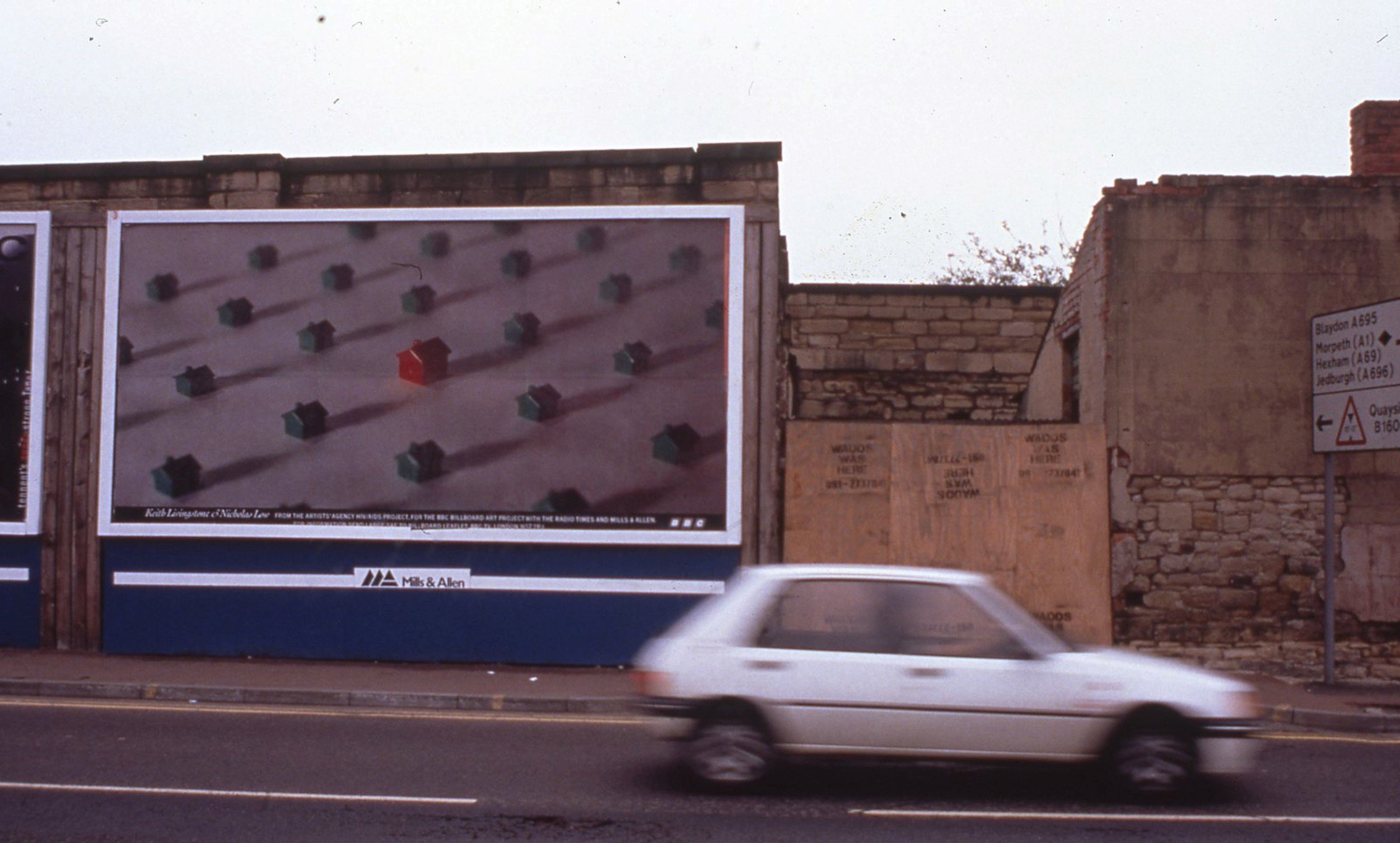
Library Session / Laura Guy – ‘Imagining a City’
Image: Photograph produced in a Living Proof workshop by Keith Livingstone and Nicholas Lowe, shown here in Newcastle as part of the Mills and Allen, BBC, and Radio Times Billboard Project, May 1992. Photo: Keith Pattison.
‘Imagining a City’ is a series of events developed by Laura Guy as part of the research project ‘Remapping the ‘City of Culture’ through LGBTQ+ Cultural Production', supported by Glasgow School of Art.
'Imagining a City’ looks back across two decades of queer and trans cultural activity in Glasgow from 1980 to 2000, a period bookended by the Sexual Offences Act 1980 (which partially decriminalised homosexuality in 1981), and the repeal of Section 28 (2A in Scotland) in 2000, three years before England and Wales. Marking the midway point between these dates is Glasgow’s designation as European Capital of Culture in 1990, a pivotal moment in the city’s history, which instigated a period of confident, culture-driven regeneration, and shaped the character of the city’s civic identity.
Guy’s research reexamines this period of cultural growth through the lens of concurrent queer and trans cultural production. Much of this activity deployed arts and culture to respond directly to the onset of crises surrounding HIV and AIDS, and advocated for the needs and rights of the LGBTQ+ community.
Guy is working with invited collaborators who include artist and researcher Steven Grainger, Senior Lecturer in Art History at Newcastle University Fiona Anderson, curator and writer Taylor Le Melle, and researcher, writer and artist Evelyn Whorrall-Campbell to bring this material into conversation with the present, exploring current queer and trans infrastructure, self-organising and its impact on contemporary civic identities.
Image: Steven Grainger, Detail from ‘Power from Things Not Declared’ (2025).
With The Common Guild, ‘Imagining a City’ unfolds initially through a closed discursive session in December 2024 with Fiona Anderson, Taylor Le Melle, Evelyn Whorrall-Campbell, who respond to the idea of queer and trans infrastructure through discussion of their own research and practice alongside invited participants. Through provocations focusing on archives of HIV/AIDS cultural production in the North East of England (Fiona Anderson), practices of building just infrastructure in the arts (Taylor Le Melle) and trans political horizons through returns to the1990s (Evelyn Whorrall-Campbell), the informal group discussion will reflect on how infrastructure limits, is worked into, and is reimagined through queer and trans practice.
A public session, ‘Inventing vocabularies’ with Laura Guy and Steven Grainger, will follow on 27 February 2025. In parallel, Grainger’s site-specific poster project ‘Power from Things Not Declared’ which maps significant locations in Glasgow’s queer cultural history will be situated across the city from 27 February – 27 March. Finally, a display of ephemera, archival material and selection of publications that trace queer and trans interventions within Glasgow’s public realm will be presented in The Common Guild library from 27 February – 27 March.
Contributors
Laura Guy is a Reader in Gender, Sexuality and Culture at the Glasgow School of Art. She is editor of Phyllis Christopher’s artist monograph Dark Room: San Francisco Sex and Politics, 1988-2003 (Book Works, 2022) and co-editor, with Glyn Davis, of Queer Print in Europe (Bloomsbury, 2022). With Fiona Anderson, Flora Dunster and Theo Gordon, she is co-editor of a special issue of British Art Studies dedicated to ‘Queer Art in Britain since the 1980s’ (Spring, 2025). Between 2023-24, she was the project lead for ‘Remapping the ‘City of Culture’ through LGBTQ+ Cultural Production’.
Fiona Anderson is an art historian based in the Fine Art department at Newcastle University. Her work explores queer art histories from the 1970s to the present, particularly in the context of the ongoing HIV/AIDS epidemic and in relation to preservation and archiving practices, in the USA and Europe. She is the author of Cruising the Dead River: David Wojnarowicz and New York’s Ruined Waterfront (University of Chicago Press, 2019). Her writing has also been published in Third Text, Journal of American Studies, and Oxford Art Journal. From 2016-2019, she was UK lead for Cruising the Seventies: Unearthing Pre-HIV/AIDS Queer Sexual Cultures (CRUSEV), a collaborative research project which explored and reconstructed aspects of LGBTQ+ social and sexual cultures of the 1970s and examined their significance for LGBTQ+ people, queer organising, and queer artmaking across Europe in the present and future.
Taylor Le Melle works as a curator (of sorts) and certainly as a writer of ante-modern and anti-modern criticism; off-kilter catalog essays and more artistic subgenres of fiction; as an editor and publisher of several collections of science fantasy, theory and poetry; as a researcher into plants, property and physical experience — bodies, the social kind with reluctance, and the flesh kind with enthusiasm — cultivating perception and proprioception through experimentation. Taylor Le Melle is one of several co-directors of London-based workers cooperative not/nowhere, whose primary occupation is with building a just infrastructure for artistic practice via the circulation and distribution of 8mm and 16mm moving image formats. Previous presentations include: Deviant Research, Van Abbe Museum (cur. Yolande van der Heide, N Aikens); Research Fellowship (org. F Dodzan/A Groten), Sandberg Instituut; Amant Foundation Residency, Brooklyn (cur. J Berrios); Text Exercises, Felix Gaudlitz, Vienna (cur. Richard Birkett); Wysing Arts Centre, Cambridge (cur. Amanprit Sandhu). Recent Writing: Anthea Hamilton: Mash Up, Triangle Books; Otobong Nkanga: Unearthed, Kunsthaus Bregenz; Renee Green: Inevitable Distances, Hatje Cantz; DNA6: Carrier Bag Fiction, Spector.
Evelyn Whorrall-Campbell is a researcher, writer and artist. They completed their PhD in Film and Screen Studies at the University of Cambridge in 2024, with a thesis on British trans cultural production and trans theory in the 1990s. In 2024-25 they are a Postdoctoral Fellow at The Institute for Advanced Studies in the Humanities at the University of Edinburgh. Their PhD combined historical and theoretical approaches to demarcate this as a period of radical practice and epistemic change, and to argue that the difficulty of thinking trans in the present originates with the political horizons of the 1990s. Informed by their creative work, Evelyn’s research attempts to develop strategies of trans theorising and practice that challenge the foreclosure of gender transition as material reality. Their writing has been published or is forthcoming in British Art Studies, world picture journal, Art Monthly, and Cambridge Literary Review, amongst others. Evelyn is also the author of Memoirs of a Child Plot Hole: How to Escape Yourself Without Even Trying, a work of experimental fiction published in 2022 by Sticky Fingers Publishing. Their work has been shown, performed, read at TACO!, Kaunas Artists’ House, Auto Italia, Kupfer Project and Kingsgate Project Space.
Further Info
‘Imagining a City’ is supported by a Carnegie Research Incentive Grant and by the Glasgow School of Art as part of the research project ‘Remapping the ‘City of Culture’ through LGBTQ+ Cultural Production’.
Event Details
Steven Grainger – ‘Power from Things Not Declared’ –
27 February – 27 March
A site-specific poster project mapping significant locations in Glasgow’s queer cultural history over a twenty-year period.
‘Inventing Vocabularies’ –
Library Session took place on 27 February 2025
About Library Sessions
Centred around books, readings, discussion and the sharing of research, Library Sessions take place in TCG’s library space and include one-off sessions and events in series led by invited artists, writers, academics and researchers. Sessions might use the library as a catalyst, or contribute something new to be added to our evolving library collection.
Related
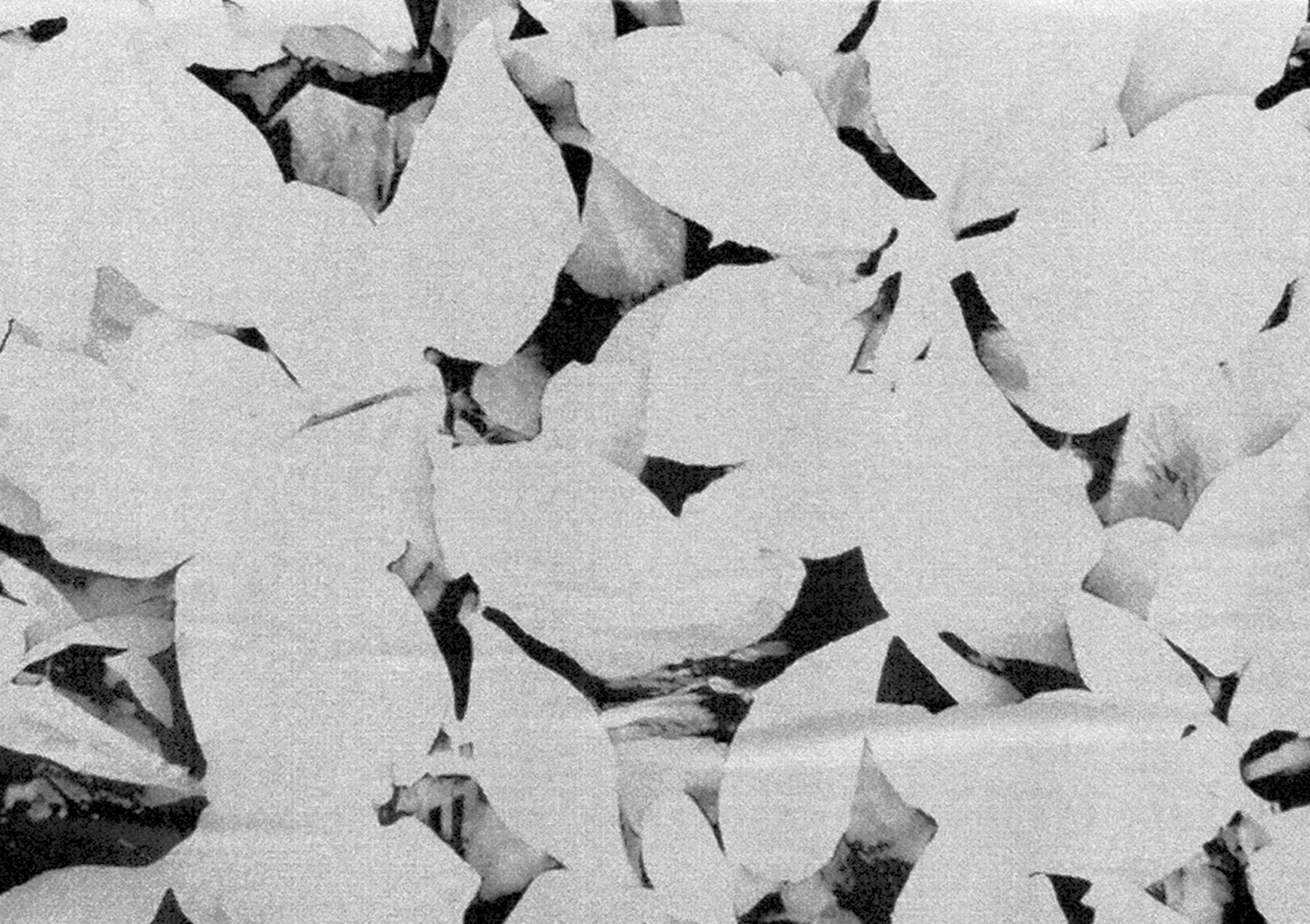
Steven Grainger – ‘Power from Things Not Declared’
Image: Steven Grainger, Detail from ‘Power from Things Not Declared’, 2025.
‘Power from Things Not Declared’ is a site-specific poster project that maps significant locations in Glasgow’s queer cultural history over a twenty-year period bookended by the Sexual Offences Act (1980) and the repeal of Section 28 in Scotland (2000).
The posters recall Edwin Morgan’s poem ‘Glasgow Green’ (1963) and incorporate abstracted elements from a photograph taken at this location in 2024. Through their layered, abstract images, the posters function as marker points for geographic locations and as forms of coded language.
Echoing the spirit of the exhibition ‘Read My Lips: New York AIDS Polemics’, curated by Nicola White at Tramway in 1992, which responded to the AIDS crisis through polemical artworks that activated locations across the city, ‘Power from Things Not Declared’ presents a series of interventions in public space. More fleeting than the polemical tone of AIDS activist graphics, the posters reconsider visibility, memory, and the relationship between Glasgow’s queer past and present.
Steven Grainger is a Glasgow-based artist, researcher, and lecturer in Fine Art at City of Glasgow College whose sculptural and collage based practice is engaged with ideas of visibility, invisibility and queer history. Between 2023-24, he was the research assistant for ‘Remapping the ‘City of Culture’ through LGBTQ+ Cultural Production’.
Further Info
‘Power from Things Not Declared’ is supported by a Carnegie Research Incentive Grant and by the Glasgow School of Art as part of the research project ‘Remapping the ‘City of Culture’ through LGBTQ+ Cultural Production’.
Event Details
A map of poster locations can be found below.
Related

Library Session / Laura Guy & Steven Grainger – ‘Inventing Vocabularies’
Image: Albert Drive near Tramway, Glasgow, 1992. Courtesy of Simon Watney.
Led by writer Laura Guy and artist Steven Grainger, this session introduces a year-long project that explored recent histories of the city of Glasgow through queer and trans cultural practice. Framed by the idea of ‘inventing vocabularies’ – Ann Cvetkovich’s description of telling lesbian stories through oral history approaches – the session will focus on the methods and materials that the project explored.
Coinciding with Grainger’s ‘Power of Things Not Declared’, a poster project across the city, the event will be accompanied by a small display of ephemera that traces queer and trans interventions within Glasgow’s public realm. 'Inventing Vocabularies’ will invite attendees to think through these partial documents alongside practices of storytelling, making, and organising in the present.
Laura Guy is a Reader in Gender, Sexuality and Culture at the Glasgow School of Art. She is editor of Phyllis Christopher’s artist monograph Dark Room: San Francisco Sex and Politics, 1988-2003 (Book Works, 2022) and co-editor, with Glyn Davis, of Queer Print in Europe (Bloomsbury, 2022). With Fiona Anderson, Flora Dunster and Theo Gordon, she is co-editor of a special issue of British Art Studies dedicated to ‘Queer Art in Britain since the 1980s’ (Spring, 2025). Between 2023-24, she was the project lead for ‘Remapping the ‘City of Culture’ through LGBTQ+ Cultural Production’.
Steven Grainger is a Glasgow-based artist, researcher, and lecturer in Fine Art at City of Glasgow College whose sculptural and collage based practice is engaged with ideas of visibility, invisibility and queer history. Between 2023-24, he was the research assistant for ‘Remapping the ‘City of Culture’ through LGBTQ+ Cultural Production’.
Further Info
This event is supported by a Carnegie Trust Research Incentive Grant and by the Glasgow School of Art as part of the research project ‘Remapping the ‘City of Culture’ through LGBTQ+ Cultural Production’.
Event Details
This event took place on Thursday 27th February.
Listen to Laura Guy and Steven Grainger -
About Library Sessions
Centred around books, readings, discussion and the sharing of research, Library Sessions take place in TCG’s library space and include one-off sessions and events in series led by invited artists, writers, academics and researchers. Sessions might use the library as a catalyst, or contribute something new to be added to our evolving library collection.
Related

Room for Reading / Laura Guy
Design: Maeve Redmond
In conjunction with Laura Guy and Steven Grainger’s event ‘Inventing Vocabularies’, Guy shares a selection of writing that has shaped the research project ‘Imagining a City’ for our Room for Reading.
Guy selects 'Leaving the Auld Toon' in Nothing Personal: Pilot Issue (2021) by Neil Clements; ‘All Shadows are Alive’ (2023) by Esther Draycott; 'Teneu’ (2024) by Rosie's Disobedient Press; ‘Ingress’ (2023) by Kate Morgan and ‘Apparitions (Nines)’ (2024) by Nat Raha.
'Leaving the Auld Toon' in Nothing Personal: Pilot Issue (2021) by Neil Clements.
'Leaving the Auld Toon' in Nothing Personal: Pilot Issue (2021) by Neil Clements
“I moved to Glasgow ten years ago, in 2015. I was working on my PhD, which looked at how queer feminist publics had been imagined by artists and activists through ephemeral print cultures, focusing on the manifesto form. Through this research, I was interested to come across the exhibition ‘Read My Lips: New York AIDS Polemics’, curated by Nicola White at Tramway in 1992. Histories of queer art and culture are often framed through notions of scarcity. Though it’s important not to understate the backdrop of homophobic legislation and government inaction against which ‘Read My Lips’ took place, it also happened at a time of relative abundance. The exhibition was well supported by public funding in the period immediately following Glasgow’s designation as ‘European City of Culture’.
Thinking about the implications of this exhibition for narratives of art and culture in the early 1990s, I have also been thinking about the cultural scene that I have participated in since 2015. This period has seen the emergence of a new institutional - or infrastructural, as the late Marina Vishmidt identified - critique. Neil Clements’ essay ‘Leaving the Auld Toon’, published in the pilot issue of Nothing Personal (2021), was instructive for me in this respect. Addressing Glasgow International and the story of the city it reinforces, Neil’s essay also provides a useful overview of transformations within the city’s funding landscape over the last two decades. Here paucity is not something that belongs to the past but the present. Yet he also identifies a ‘patchwork infrastructure’ of local practice. He writes, “if the city is to function in service of its local practitioners, we must pay closer attention to its internal rhythms”.”
‘All Shadows are Alive’ (2023) by Esther Draycott.
‘All Shadows are Alive’ (2023) by Esther Draycott
“‘All Shadows are Alive’ is the outcome of Esther Draycott’s research project about the Glasgow drying green. The formal inventiveness of her approach to histories of the city is structured through multiple voices and was developed within her PhD. In her writing, Esther weaves different kinds of artefacts together in a process that could be likened both to excavation and to reconstruction. It reminds me of what Naomi Pearce calls a ‘forensic feminist methodology’, where evidentiary approaches are employed in ways that complicate the writing of history of women’s lives and work. It also brings to mind Glasgow-based writer and artist Shola von Reinhold’s ‘Lote’ (2020), which does amazing work in relation to the obfuscation and erasure of black figures in history. The poet Edwin Morgan is a figure who casts a shadow across Esther’s pamphlet. She writes about how he uses ‘the dirt that remains on billowing white sheets on the Green to speak to another obfuscated story, that of homosexual life in post-war Glasgow’.”
'Teneu’ (2024) by Rosie's Disobedient Press.
'Teneu’ (2024) by Rosie's Disobedient Press
“Adrien Howard and Lisette May Monroe founded Rosie’s Disobedient Press in 2020, to foreground writers working from perspectives that have historically been marginalised by both mainstream and artist publishing. Like Esther’s writing, Rosie’s recent collection ‘Teneu’ is a situated exploration of the city, one that invokes the deep histories and forgotten futures of the St Enoch Centre. Calling upon the eponymous saint, Teneu foregrounds non-linear, queer temporalities in ways that are reminiscent of Charlie Prodger’s video ‘Bridget’ (2016). Teneu is also a meditation on formal and informal infrastructures and in this way contributes to a broader landscape of practice investigating post-industrial and post-colonial lineages and legacies within the fabric of the city of Glasgow. Mason Leaver-Yap’s contribution to Teneu concludes with a question that seems to encircle much of this work. “Classing something as a ruin is less about the thing being labelled, and more a question of who has the power to manifest and name the ruination in the first place... A ruin for whom, ruined by whom?”.”
‘Ingress’ (2023) by Kate Morgan
“Both Kate and their writing came to me through sad circumstances and in those circumstances opened up material and tender descriptions of fractured intimacies. They wrote ‘Ingress’ from their tenement flat in Glasgow. It contains observations about living, working, relationships and architectures. Like other texts on this list, ‘Ingress’ helps me to think about infrastructure in ways that are both critical and expansive. The scaffolding for ‘Ingress’ is unsure, susceptible to leaks. Glasgow seeps into the text as an atmospherical state.”
‘Apparitions (Nines)’ (2024) by Nat Raha.
‘Apparitions (Nines)’ (2024) by Nat Raha
“For some time now, my research and writing has predominantly attended to archives of post-1960s feminist, queer and trans cultural activity. There has been a tension in this work: the tug of the past on the urgent demands of the present. Along with others, I have been interested in this tension, in thinking through and alongside practices that make returns in ways that might allow the present to appear other than its dominant and dominating forms. But recently I’ve found myself less convinced by this desire to return to the archive. In part a consequence of regarding the genocide in Gaza, it’s also, not unconnectedly, because I’m compelled to write in relation to the counter-institutional and counter-infrastructural practices that are present in this city, some of which I’ve recorded here. Nat Raha’s scholarship is remarkable partly for the way it enfolds histories within practice and doing so expands the horizons of past(s) and present(s). Her poetry, most recently published in her book ‘Apparitions (Nines)’, does this too but with the greater immediacy and urgency, accumulation and interruption her form allows.”
Details
In conjunction with our projects, exhibitions and events, Room for Reading offers artists we work with an opportunity to contribute to The Common Guild library and share the books and resources that have influenced their artistic practice.
Every artist’s selection is added to The Common Guild’s expansive reference library of artist books, catalogues, and cultural and critical theory.
Visit
Our library space is open every Thursday from 12-5pm between 27th February and 27th March.
Related
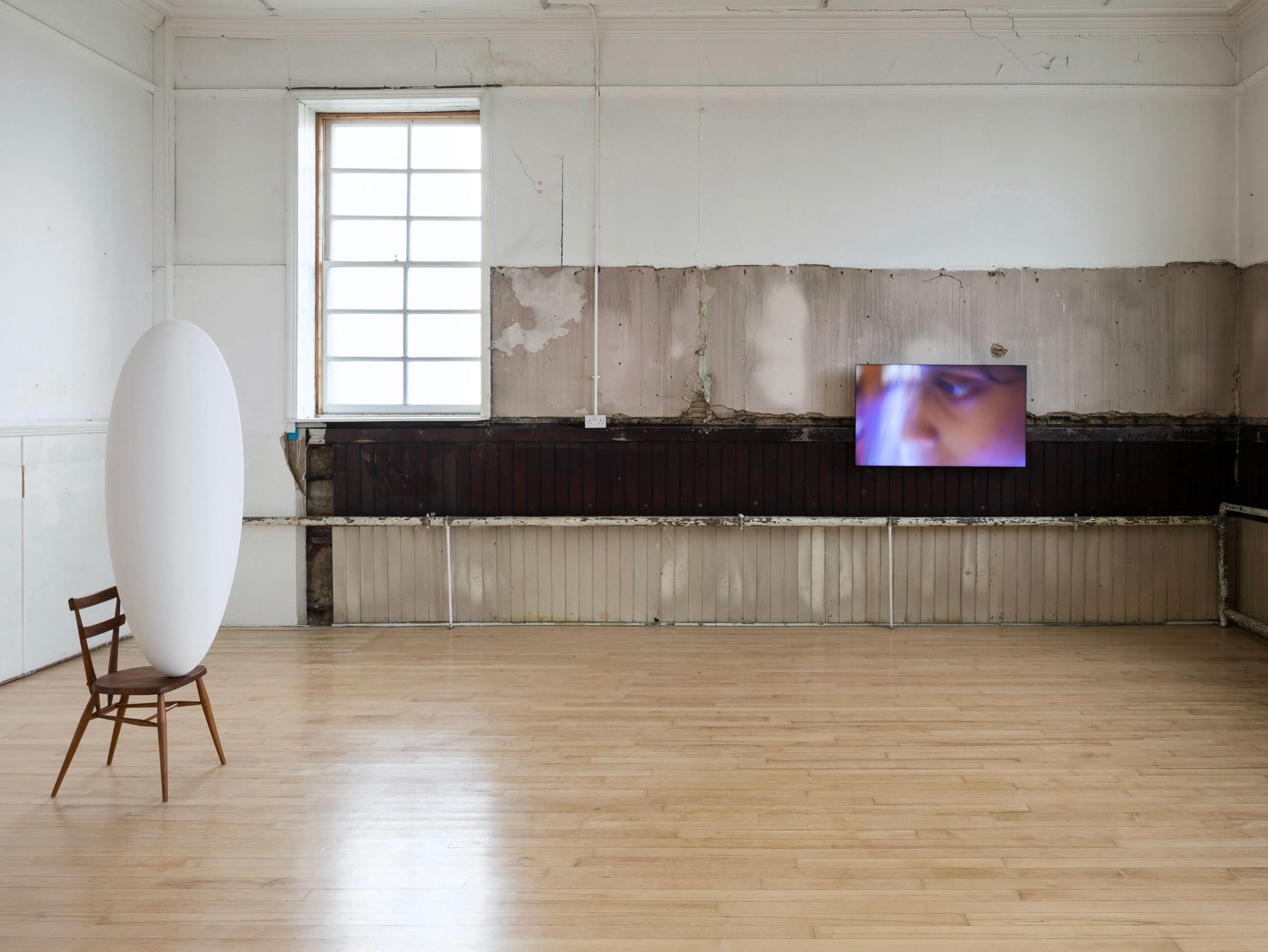
Library Session / Sunnah Khan
Tarik Kiswanson, ‘The Rupture’, installation view, The Common Guild, Glasgow, 2024. Photo: Ruth Clark.
Join award-winning Scottish-Pakistani poet Sunnah Khan in an active reading of the work of Tarik Kiswanson, engaging with the artist’s poetry.
Kiswanson has published books of poetry and writing including the artist’s book ‘Becoming’ (2023) and ‘The Window’ (2022). In his writing, the artist engages with the “poetics of métissage: a means of writing and surviving between multiple conditions and contexts”. Kiswanson’s bodies of work, including sculpture, film and poetry, can be understood as a cosmology of related conceptual families.
Khan will explore the poetics of sculptural objects through the exhibition 'The Rupture'. This will include selected readings from both Kiswanson and Khan’s poetry, and a reflective discussion on the artworks presented in the exhibition.
Sunnah Khan is an award-winning Scottish Pakistani poet, filmmaker and creative facilitator. Her debut pamphlet ‘I Don't Know How to Forgive You When You Make No Apology For This Haunting’ was published by Roughtrade Books in 2020. Her poems have appeared in Poetry London and The Rialto and she was shortlisted for the Aesthetic Creative Writing Award 2024.
Further Info
Event Details
Thursday 28 November, 6-8pm.
Free. Booking required as spaces are limited.
Access
This event takes place in the library and event space on the ground floor and the exhibition spaces on the second floor of 5 Florence Street.
The building has step free access and a lift to the second floor.
Accessible toilets are available.
The nearest subway station is Bridge Street, a 14 minute walk away.
Location
Related

Friday Event / Tarik Kiswanson
‘A Century’ installation view, Portikus, Frankfurt. Courtesy of the artist, carlier | gebauer, Berlin/Madrid, and Sfeir-Semler Gallery, Hamburg. Photo: Wolfgang Günzel.
The Common Guild is collaborating with The Glasgow School of Art to present artist Tarik Kiswanson for a Friday Event as part of the School of Fine Art’s long-running lecture series.
In October, The Common Guild presents Tarik Kiswanson, ‘The Rupture’, the artist’s first solo exhibition in the UK. ‘The Rupture’ is a significant exhibition of newly commissioned and recently conceived artworks, as well as the first exhibition to take place in our new permanent premises at 5 Florence Street, a former school building in Glasgow.
Tarik Kiswanson (b. 1986, Halmstad) is a visual artist and poet based in Paris. His work has been the subject of several solo exhibitions, most recently Portikus, Frankfurt, Oakville Galleries, Ontario (both 2024), Bonniers Konsthall, Stockholm (2023), Salzburger Kunstverein (2023), Museo Tamayo, Mexico City (2023), M HKA-Museum of Contemporary Art, Antwerp (2022), Hallands Konstmuseum, Halmstad (2022) and Carré d’Art-Musée d’art contemporain, Nîmes (2021).
In 2023, Kiswanson was awarded the Prix Marcel Duchamp, and has recently been awarded the 2024 Fondazione Henraux International Sculpture Prize. Kiswanson’s current exhibition, ‘A Century’ is presented at Portikus, Frankfurt until September 2024. .
The Friday Event is a visiting speaker series presented by the School of Fine Art (SoFA) at The Glasgow School of Art. With a long illustrious past and a bright future, the series hosts artists, writers, curators, academics, students and other cultural figures, welcoming and broadening dialogue and knowledge of local and international fields. Happening on campus and online, the Friday Event is always open to all.
Event Details
11am - 12.30pm, Friday 1 November 2024.
Free to attend. No booking required.
Location
Reid Building, Glasgow School of Art,164 Renfrew Street Glasgow G3 6RQ
Related

Publication Launch / Corin Sworn – ‘Moving in Relation’
Corin Sworn,‘A Fuzzy Set’ (video). Installation View, The Common Guild, 2023. Photo: Ruth Clark.
Corin Sworn’s project concludes with the launch of a new publication ‘Moving in Relation’. The publication brings together Sworn’s five-part investigative series of the same name, presented by The Common Guild from 2021–2023. Featuring research, performance, documentation, conversation and interview, the publication also brings together Sworn’s collaborators including nussatari, Louise Amoore and Cecilia Pavón.
‘Moving in Relation’ includes a newly commissioned essay by curator and writer on digital visual culture, Nora N. Khan, and new poems by Sworn presented here for the first time.
Sworn will read a selection of poetry or ‘micro-films’ during the launch event, where copies of ‘Moving in Relation’ will be available for a special launch price of £10. Our back-catalogue of publications will also be available for discounted prices, for visitors.
‘Moving in Relation’ is designed by Maeve Redmond and printed by Gomer in an edition of 300.
The publication is supported by Hope Scott Trust.
